|
AN EYE ON THE GLOBAL CONDITION
World's Largest Economies | CNNMoney
The World Top Incomes Database
US PIRG: United States Public Interest Research Group - The Federation of State Pirgs
U.S. PIRG is a consumer group that stands up to powerful interests whenever they threaten our health and safety, our financial security, or our right to fully participate in our democratic society.
Public Interest Research Group | Wikipedia
Includes directory of state PIRGS
The Prison Industrial Complex
H.R.3543: The Justice is Not For Sale Act | Congress.Gov
Justice is Not For Sale Act | PDF File - Senate.gov
Senator Bernard Sanders (I-VT) and Congressman Raúl M. Grijalva (D-AZ)
Justice is Not For Sale Act of 2015 | PDF File - Senate.gov
In the Senate of the United States Mr. SANDERS introduced the following bill ...
- The Prison Industrial Complex | Eric Schlosser - The Atlantic
This is Part one of a three part series; the other two are accessible from here.
- Private Prisons | ACLU
Over the past four decades, imprisonment in the United States has increased explosively, spurred by criminal laws that put more people in prison for longer sentences. At the same time, the nation has seen the rise of for-profit prison companies, which benefit from keeping more people locked up.
- Private Prisons | Corrections Project
- Human Rights Implications of Private Prisons | PDF File - Human Rights Advocates
- Prison in the United States of America | Ken Silverstein
Free-Enterprise slave labour, racial discrimination and human rights violation in the Gulags of the Land of the Free
- Privatization of Corrections: A Violation of U.S. Domestic Law, International Human Rights, and Good Sense
PDF File - Ira P. Robbins
- The Prison Industry in the United States: Big Business or a New Form of Slavery?
March 31, 2014 - Global Research
- Who’s Getting Rich off the Prison-Industrial Complex? | March 17, 2014 - Vice.com
- The Prison Industrial Complex
- Drug War Policy and the Prison Industrial Complex | by Lisa Hammond
- 'Profiteers of Misery': The U.S. Private Prison Industrial Complex | Nation of Change
- Protesters want Gates Foundation to stop investing in prison operator
April 10, 2014 - Seattle Times
- Why For-Profit Prisons House More Inmates Of Color | March 13, 2014 - NPR
- 6 shocking revelations about how private prisons make money
September 23, 2013 - Salon
Private prison companies are striking deals that guarantee high prison occupancy rates
- The Private Prison Racket | February 24, 2014 - Politico Magazine
Companies that manage prisons on our behalf have abysmal records, so why do we keep giving them business?
- The GEO Group, Inc.
The GEO Group, Inc. (GEO) is the world's leading provider of correctional, detention, and community reentry services with 98 facilities, approximately 77,000 beds, and 18,000 employees around the globe.
- CCA: Corrections Corporation of America
- Out of Control: The Coast-to-Coast Failures of Outsourcing Public Services to For-Profit Corporations
12/04/13 - In The Public Interest
- Wikipedia
McGraw-Hill Lessons In Economics:
“Big 6” Pesticide Corporations Top the List of Food Labeling Opponents | Oct. 11, 2012 - PAN: Pesticide Action Network
World’s six largest pesticide manufacturers and genetically engineered seed corporations donate more than $20 million to oppose Prop 37 labeling measure
Six largest pesticide corporations funding effort to try to defeat GMO labeling Proposition 37
Oct. 22, 2012 - Natural News
The World's Top 10 Pesticide Firms | GM Watch
"According to the UN, corporate concentration of the agricultural input market has far-reaching implications for global food security, as the privatization and patenting of agricultural innovation (gene traits, transformation technologies and seed germplasm) has been supplanting traditional agricultural understandings of seed, farmers' rights, and breeders' rights."ť
Below is a sub-section on Monsanto.
Syngenta and Doctor Tyrone Hayes
- Erin Brokovich Home Page
Economic & Financial Documentaries
- Robert Greenwald's "Koch Brothers Exposed" | 1 hour - YouTube
- Professor Richard D. Wolff
- David Harvey | "Reading Marx's Capital" | Several Videos
David W. Harvey is the Distinguished Professor of Anthropology and Geography at the Graduate Center of the City University of New York.
- "The Contradictions of Capital" | by David Harvey - 54 minutes - Video - YouTube
- David Harvey | Wikpedia
- "Four Horsemen" | Free Speech TV
Four Horsemen, the debut feature from director Ross Ashcroft, reveals the fundamental flaws in an economic system which has brought our civilization to the brink of disaster. The film pulls no punches in describing the consequences of continued inaction, but its message is one of hope. If more people can equip themselves with a better understanding of how the world really works, then the systems and structures that condemn billions to poverty or chronic insecurity can at last be overturned.
- "Inside Job" (2010) | YouTube - 1:44
2010 Oscar Winner for Best Documentary, 'Inside Job' provides a comprehensive analysis of the global financial crisis of 2008, which at a cost over $20 trillion, caused millions of people to lose their jobs and homes in the worst recession since the Great Depression, and nearly resulted in a global financial collapse. Through exhaustive research and extensive interviews with key financial insiders, politicians, journalists, and academics, the film traces the rise of a rogue industry which has corrupted politics, regulation, and academia. It was made on location in the United States, Iceland, England, France, Singapore, and China.
- Charles H. Ferguson - "Predator Nation - Corporate Criminals, Political Corruption, and the Hijacking of America"
Free Download from FileTurko
- Why No Wall Street CEOs Were Prosecuted For Causing The Financial Crisis | Decmber 25, 2013 - The Daily Kos
- "The Flaw"
- "The Secret History of the Global Financial Crisis" | 3 hours - Top Documentary Films
- "End of the Road: How Money Became Worthless" | 55 minutes - IMDb
- "The End of Poverty" | narrated by Martin Sheen | Top Documentary Films
Global poverty did not just happen. It began with military conquest, slavery and colonization that resulted in the seizure of land, minerals and forced labor. Today, the problem persists because of unfair debt, trade and tax policies - in other words, wealthy countries taking advantage of poor, developing countries.
- "The Take" A documentary film by Avi Lewis and Naomi Klein
- Connecting You To The World | Link TV
- "The Take" | Link TV
The Take is a political thriller that follows Argentina's radical new movement of occupied businesses: groups of workers who are claiming the country's bankrupt workplaces and running them without bosses. In suburban Buenos Aires, thirty unemployed auto-parts workers walk into their idle factory, roll out sleeping mats and refuse to leave. All they want is to restart the silent machines. But this simple act - The Take - has the power to turn the globalization debate on its head.
- "The Take" | Watch Free Documentary Online - 1 hour, 27 minutes
- "Shadows of Liberty" Home
- "Ethos: A Time for Change" | 1:08 - YouTube
- Video | Special: "Ethos - A Time for Change" | LinkTV
Hosted by twice Oscar nominated actor and activist Woody Harrelson, Ethos lifts the lid on a Pandora's Box of systemic issues that guarantee failure in every aspect of our lives, from the environment to our democracy and our own personal liberty.
- "Ethos - A Time for Change" | Watch Free Documentary Online | Knowledge of Today
Ethos, a powerful new documentary hosted by Woody Harrelson, is an investigation into the flaws in our systems, and the mechanisms that work against democracy, our environment and the common good. With a stunning depth of research and breadth of analysis, this film delves deep into the inter-connected worlds of Politics, Multi-National Corporations and the Media.
- "Ethos - A Time for Change" | Review | Don Simpson - Feb. 7, 2012
"Pete McGrain’s documentary, Ethos: A Time For Change examines the flaws in the U.S. political, financial, corporate and mass media structures — first and foremost, how these seemingly separate interests are intertwined in such a way that they work against our nation’s democratic and ecological interests."
- "Ethos - A Time for Change" | Review | Mark R. Leeper
"CAPSULE: ETHOS: A TIME FOR CHANGE is a fast-paced 69 minutes filled with charges of conspiracies of the rich and powerful in corporations and government in their plan to take freedom from the masses and plunge the world into a chaos of high prices and global warming."
- Watch "Heist: Who Stole the American Dream?" | 2:22 - Free Documentary TV
Heist: Who Stole the American Dream? reveals how American corporations orchestrated the dismantling of middle-class prosperity through rampant deregulation...
- "Heist: Who Stole the American Dream?" | Wikipedia
- "Heist: Who Stole the American Dream?" Movie Review | New York Times
"The filmmakers swiftly tick off legislation that they regard as concerted class warfare waged by corporations in collusion with corporate-controlled news media against the middle and working class: Starting in 1994, the North American Free Trade Agreement, which encouraged the outsourcing of cheap labor; the 1999 repeal of parts of the Glass-Steagall Act, which had separated commercial and investment banking; and the Commodity Futures Modernization Act of 2000, which deregulated over-the-counter derivatives, allowed financial institutions to run wild."
- "Forward 13: Waking Up the American Dream" | 1:37:00 - Watch Online - Dailymotion
Struggling to survive after the 2008 global financial crisis, Patrick Lovell embarks on a journey to discover how the pursuit of the American Dream could drive millions of people to financial ruin.
- Commodity Futures Modernization Act of 2000 (H.R. 5660)| PDF File
- Move to Amend
On January 21, 2010, with its ruling in Citizens United v. Federal Election Commission, the Supreme Court ruled that corporations are persons, entitled by the U.S. Constitution to buy elections and run our government. Human beings are people; corporations are legal fictions.
- Recommended Documentaries
"We suggest the following films as great educational resources on corporate power (many additional films are also listed on the website Films for Action)." Their tag line is: Films For Action Presents: The Top 100 Documentaries
Inspiring the Shift to a Sustainable Paradigm
- Videos | Move to Amend
- Campaign finance reform | Wikipedia
- The Corrosive Influence of Big Money | Occupy Natick
Robert Francis Kennedy, Jr. said, “Today, more than ever, it is critical for American citizens to understand the difference between the free-market capitalism that made our country great and the corporate cronyism that is now corrupting our political process, strangling democracy and devouring our national treasures."
- Government = Protection Racket for the 1 Percent
April 21, 2014 - by Bill Moyers & Michael Winship - Bill Moyers & Company
- Why We're in a New Gilded Age
April 16, 2014 - by Paul Krugman - Bill Moyers & Company
- Thomas Piketty is No.1 on Amazon Right Now | Includes 41 minute video | HuffPost
- Blog of Adam David Morton
- Hedrick Smith: "Who Stole the American Dream?"
- "Who Stole the American Dream" | Hedrick Smith | VIDEO - 1 hour - BookTV.org
- Top Nonfiction Authors and Books
- Producer Hedrick Smith | Frontline
- Working for the Few | January 20, 2014 - Oxfam Briefing Paper Summary - PDF File
IMAGE: How Rich are the Top 1%, Really? | Bloomberg Visual Data
Economic Inequality Chart | Pew Research Center
Bottom 40% of population own less than one percent of the wealth.
The tight link between unions, the middle class and inequality in two charts
May 26, 2014 - The Daily Kos
Is This American "Exceptionalism"? | October 14, 2014 - Truthout
"Today, the 400 wealthiest Americans own more wealth than the bottom 150 million Americans combined. Similarly, the wealthiest 1 percent of Americans now own more than 35 percent of the United States' wealth, while the bottom 50 percent of Americans own just 2.5 percent of this nation's wealth."
Tomgram: Ari Berman, The Politics of the Super Rich
| February 16, 2012 - TomDispatch.com
- Citizens United v. Federal Election Commission
- McCutcheon v. FEC: Federal Election Commission
- FEC: Federal Election Commission
- Federal Election Campaign Act of 1971 | Wikipedia
- McCutcheon v. Federal Election Commission | Wikipedia
-
MCCUTCHEON ET AL. v. FEDERAL ELECTION COMMISSION | PDF File - Supreme Court of the United States
- MCCUTCHEON v. FEDERAL ELECTION COMMISSION | Supreme Court of the United States Blog
"Holding: Because aggregate limits restricting how much money a donor may contribute to candidates for federal office, political parties, and political action committees do not further the government’s interest in preventing quid pro quo corruption or the appearance of such corruption, while at the same time seriously restricting participation in the democratic process, they are invalid under the First Amendment."
- MCCUTCHEON v. FEDERAL ELECTION COMMISSION | U.S. Supreme Court Media
- MCCUTCHEON ET AL. v. FEDERAL ELECTION COMMISSION | Case Summary - Federal Election Commission
- McCutcheon v. FEC | Brennan Center for Justice - New York University Law School
- The McCutcheon Case:The Legal and Political Consequences if the Supreme Court Strikes Down Overall Contribution Limits
By Fred Wertheimer | Democracy 21
- Everything You Need To Know About McCutcheon v. FEC
April 2, 2014 - The Washington Post
- Supreme Court Ruling Gives Small Number of Wealthy Donors New Ways to Drive Campaigns
April 3, 2014 - The Washington Post
- Supreme Court Strikes Down Overall Political Donation Cap
April 2, 2014 - The New York Times
- Supreme Court lifts ban on aggregate campaign donations
April 2, 2014 - USA Today
The decision represents another step toward easing decades-old restrictions on political contributions that were designed to combat corruption.
- The Supreme Court Just Struck a Blow to Individual Campaign Donation Limits
April 2, 2014 - Slate.com
- CPI: Center for Public Integrity | Investigative Journalism
A non-profit public interest group based in Washington, D.C.
- Campaign finance reform | Wikipedia
- The Government By The People Act | February 5, 2014 - Adam Lioz | DEMOS
"... our system often more closely resembles one dollar, one vote as wealthy donors enjoy vastly disproportionate influence over who runs for office, who wins elections, and what issues make it onto the agenda in Washington, DC."
- Anti-Politics and the 1% | August, 2014 - Truthout
"The electoral-representative institutions of contemporary democracies are arguably little more than instruments in the hands of corporations and of the super-rich, both of whom control electoral-representative structures through lobbying, the financing of electoral campaigns, the "revolving doors" between politics and business, etc."
- Globalization Research Center
- A Message from Us Rich Plutocrats To All You Little People | Nick Hannauer
- Testing Theories of American Politics: Elites, Interest Groups, and Average Citizens
PDF File - April 9, 2014 - Martin Gilens - Princeton University
- New America Foundation
- TomDispatch.Com
A Regular Antidote To The Mainstream Media
- Truth-Out.org
- Papantonio: Why The 1% Always Wins (VIDEO) | February 20, 2014 by Gary Bentley - Ring of Fire
- Matt Taibbi 's Blog | The Smirking Chimp
Glossaries & Explanations
- Business Dictionary
- Economy A-Z: Economics Terms, Topics and Jargon | "The Economist"
- A Glossary of Political Economy Terms | Dr. Paul M. Johnson of Auburn University
- Economics Glossary: Advanced and Basic Economic Terms Definitions
- Deardorff's Glossary of International Economics
- Currency Table: By Country
- Investopedia - Educating the world about finance
- The Economics of Derivatives | the National Bureau of Economic Research
- Options, swaps, futures, MBSs, CDOs, and other derivatives " | Khan Academy
This tutorial walks through option basics and even goes into some fairly sophisticated option mechanics.
- Collateralized debt obligation | Wikipedia
- CDOs or Collaterized Debt Obligation - Definition | About.com
- CDOs or Collaterized Debt Obligations: CNBC Explains
- How to Speak "Structured Finance" | Charles Davi - Derivative Dribble
- A Criticism of Derivatives | Khilafah.com
"Derivatives, what they have caused in the world and what they continue to cause in the world, are therefore nothing but a symptom of a much more fundamental issue facing the world today, which is that the benefits of a few in this world trump the benefits of the masses and even the whole of this world."
- How Derivatives, Collaterized Debt Obligations and Credit Default Swaps Crushed the World Economy | Vince Flaherty - Examiner.com
- How Derivatives Caused the Economic Crisis | Washington Public Bank Coalition
"Who Owns the U.S. Stock Market?" |
July 9, 2014 - Pam and Russ Martens - The Daily Kos
Wall Street On Parade - A Citizen Guide to Wall Street
- United Nations Development Program
- UNCTAD | United Nations Conference on Trade and Development
- Biggest Transnational Companies | "The Economist"
- FTC: Federal Trade Commission
To prevent business practices that are anticompetitive or deceptive or unfair to consumers; to enhance informed consumer choice and public understanding of the competitive process; and to accomplish this without unduly burdening legitimate business activity.
- U.S. Securities and Exchange Commission (SEC)
- U.S. Department of State
- U.S. Department of Labor - Bureau of Labor Statistics
- U.S. Commodity Futures Trading Commission (CFTC)
"The CFTC is an independent agency of the United States government that prohibits fraudulent conduct in the trading of futures contracts."
- Claiming Human Rights
- Hoover's Online
"The Business Information Authority"
- The International 500 -- Forbes
- Corporate Accountability Project
"Of the world's 100 largest economies, 51 are now global corporations, rather than countries."
- Corporate Accountability International
- Corporate Research Project
- CorpWatch
- CorpWatch: Spies for Hire: New Online Database of U.S. Intelligence Contractors
- What you should know about the intelligence community's contractors | June 10, 2013 - ThinkProgress
- Booz Allen Hamilton: 70% of the U.S. Intelligence Budget Goes to Private Contractors
- Outsourced Intelligence: How the FBI and CIA Use Private Contractors to Monitor Social Media | Truthout.org
- Top Stories: Most Analysis of Spy Data is Done by Private Contractors | AllGov
- Salon.com
- Latest corporate research | Crocodyl
- The Role of Private Corporations in the Intelligence Community | Belfer Center
John F. Kennedy School of Government
- Prying Private Eyes | June 19, 2013 - New York Times
- Corporate Watch (UK): Homepage: Latest News
- ALEC: American Legislative Exchange Council | Limited Government - Free Markets - Federalism
"At least four states have passed laws forcing public schools to teach climate denial -- and many more are considering similar legislation. This is all thanks to the American Legislative Exchange Council (ALEC), an extremist state-legislation factory backed by giant corporations like Exxon and Koch Industries. Their agenda also includes fighting for more dirty coal, repealing clean energy laws, attacks on our voting, and even "Stand Your Ground" laws."
--- Sierra Rise
- Inside Wealth | Edited by Robert Frank
- Robert Reich's Home Page
- The Official Paul Krugman Web Page
Krugman, a Professor of Economics and International Affairs at Princeton University, has written and edited more than 20 books and 200 papers on various issues. His reputation rests largely on his works of international trade and finance.
- Finance vs. Walmart: Why are Financial Services so Expensive?
PD File - Thomas Philippon - New York University
- The Tax Policy Center
- Tax Policy Center Topics Page - USA Today
- Right-Wing Media: The Tax Policy Center Is Nonpartisan Except When It Critiques Romney
- Urban-Brookings Tax Policy Center | Brookings Institution
- Spectrem Group
- Foreign Pharmacies | Foreign Online Pharmacy Watchdog since 1997
- NABP: National Association of Boards of Pharmacy
- Pharma News | Pharma Industry | Pharmaceuticals Industry | FiercePharma
FiercePharma is the pharma industry's daily monitor, with a special focus on pharmaceutical company news and the market development of FDA approved products.
- EvaluatePharma Ltd.
EvaluatePharma® is the leader in consensus forecasts of leading industry analysts and analysis of the pharmaceutical and biotechnology healthcare sectors providing exclusive and trusted market intelligence into global performance to 2020.
- Access to Medicines | WHO
"It is estimated that one-third of the developing world's people are unable to receive or purchase essential medicines on a regular basis."
- Press Release Distribution
- Whistle Blowers' Experiences in Fraud Litigation against Pharmaceutical Companies | May 13, 2010 | NEJM
- Pharmaceutical Whistleblowers
- Natural Health Information Articles and Health Newsletter by Doctor Joseph Mercola
- FDA: U.S. Food & Drug Administration
- Pharmaceutical Corporate Fraud | SEC Whistleblower Program
- US Drug Watchdog: Pharmaceutical and Drug Company Complaint Center
- Watchdog on Science
- Onesource|Business Information
- Free Company Information
The OneSource Company Directory provides the most complete and highest quality business information with access to millions of company and executive profiles.
- Company Profiles & Company Information
Search more than 63 million companies.
- Corporateinformation.com
Free corporate profiles on 31,000 global comapnies.
- Welcome to Transnationale.org: Analysis of the World's Largest Companies
- Multinational Monitor Online
"The Multinational Monitor tracks corporate activity, especially in the Third World, focusing on the export of hazardous substances, worker health and safety, labor union issues and the environment."
- Global Politician: Globalization's Watchdogs
- Consumer Watchdog
- Wal-Mart Watch | Fighting for Wal-Mart Workers
Walmart is the country's largest employer and boasts $16 billion in worker-generated-profits annually. Walmart's owners – the Waltons - hoard their fortune, equal to the combined assets of 42% of every man, woman, and child in the U.S. Walmart can well-afford to stop derailing our economy and treat its workers fairly.
- The Foundation for Taxpayer & Consumer Rights
- AABA | Association for Accountancy and Business Affairs
- Global Unions Home Page
- Citizen Works
"Citizen Works is a nonprofit, nonpartisan, 501 (c) (3) tax-exempt organization founded by Ralph Nader in April 2001 to advance justice by strengthening citizen participation in power. We give people the tools and opportunities to build democracy."
- Essential Information
Founded in 1982 by Ralph Nader, Essential Information is a non-profit, tax-exempt organization. We are involved in a variety of projects to encourage citizens to become active and engaged in their communities. We provide provocative information to the public on important topics neglected by the mass media and policy makers.
- Global Witness | Resources, Conflict and Corruption
- DATA.Gov | The home of the U.S. Government's open data
Here you will find data, tools, and resources to conduct research, develop web
and mobile applications, design data visualizations, and more.
- H.R.1: American Recovery and Reinvestment Act of 2009
Bill Text Versions - 111th Congress | Library of Congress - Thomas
- H.R.1: American Recovery and Reinvestment Act of 2009
PDF File - U.S. Government Printing Office
- Recovery.gov
The site, created by the American Recovery and Reinvestment Act of 2009, displays information about the Recovery Accountability and Transparency Board's activities, as well as data related to the $840 billion stimulus bill and information about the distribution and spending of Hurricane Sandy funds.
- Dollars and Sense: Real World Economics |
The Magazine of Economic Justice
- Is It Oil?
by Arthur MacEwan, Economics Professor at the University of Massachusetts-Boston
- "Alaska Thaws, Complicating the Hunt for Oil"
from New York Times by Andrew C. Revkin; Published: January 13, 2004
- Vincent Ferraro, Resources for the Study of International Affairs and Foreign Policy
Extensive list of links
- CTJ: Citizens for Tax Justice
Citizens for Tax Justice, founded in 1979, is a 501 (c)(4) public interest research and advocacy organization focusing on federal, state and local tax policies and their impact upon our nation. CTJ's mission is to give ordinary people a greater voice in the development of tax laws.
- Financial Bubbles, Real Estate Bubbles, Derivative Bubbles and the Financial and Economic Crisis
VIDEO from Videolectures.net
- YouTube -- Financial Derivatives -- What are they? -- Housing Bubble Collapse -- Unregulated Insurance
VIDEO | Michael Greenberger, University of Maryland Law School Professor
- NOVA | Mind Over Money | PBS --
Can markets be rational when humans aren't?
- Bubble Economics: The Illusion of Wealth | August 12, 2009 - Doug French
- Business - Slate Magazine
- Top Ten Economics Blogs You're Not Visiting (But Should Be)
- Transparency International
Transparency International, the only international non-governmental organisation devoted to combating corruption, brings civil society, business, and governments together in a powerful global coalition.
- Economic Policy Institute
"The Economic Policy Institute is a nonprofit, nonpartisan think tank that seeks to broaden the public debate about strategies to achieve a prosperous and fair economy."
- Economic Policy Institute
News about Economic Policy Institute, including commentary and archival articles published in The New York Times.
- OECD: Organization for Economic Co-Operation & Development
- Documents Relating to the Global Economy
- Economics and Business --> Economics --> International Economic Issues
- Brookings Institution
- Georgetown Public Policy Review
- Real-World Economics Review
Online Magazine
- The Group of 77
The Group of 77 is the largest intergovernmental organization of developing states in the United Nations.
- G20 Germany - 2017
- G7 Japan 2016
- G8 Summit 2012 at Camp David
The Group of Eight (G-8) is a forum for the leaders of eight of the world’s most industrialized nations, aimed at finding common ground on key topics and solutions to global issues.
- The World Economic Forum -- Home
- International Statistics Research Guides | Boston College
- Economics
Whatever economics knowledge you demand, these resources and study guides will supply. Discover simple explanations of macroeconomics and microeconomics concepts to help you make sense of the world.
- Information Clearinghouse
"News you won't find on CNN or Fox"
- CIBC - World Markets
- EDIRC: Economics Departments, Institutes and Research Centers in the World
Currently 11866 institutions in 230 countries and territories are listed.
- European University Institute - Economic and Data Information Services
- Internet FAQ Archive
- Open Directory -- Economics
- UNU_WIDER: World Institute for Development Economic Research
- Who Rules America: Wealth, Income and Power
Professor G. William Domhoff - Sociology Department, University of California at Santa Cruz
- Study: Most Americans want wealth distribution similar to Sweden | September 25, 2010
- Business Pundit
- Skewed Wealth Distribution and the Roots of the Economic Crisis | March 31, 2010
by David Barber, assistant professor of American History at the University of Tennessee
- The Wealth Report 2012 - A Global Perspective on Prime Property and Wealth | PDF File
- Levy Economics Institute of Bard College
Micro-Financing Organizations
- Opportunity International
We believe that microfinance is a sustainable means of poverty alleviation leading to lasting, holistic development. In fact, our 45 banks and financial institutions in 22 developing countries are currently dispersing 2.8 million active loans.
- Wokai -- Microfinance in China
Wokai is an organization that allows people to contribute directly to microfinance institutions in China, which in turn lend the money to entrepreneurs in rural China. It is a 501(c)(3) non-profit organization based in Oakland, with core operations in Beijing, supported by individual donors, corporate sponsors, fundraising events and grants.
- Kiva -- Loans that Change Lives
It is a 501(c)(3) non-profit organization[3] headquartered in San Francisco, supported by loans and donations from its users and through partnerships with businesses and other institutions.
- Rang De -- make a social investment
Rang De is a non-profit organisation that allows Indians to lend money to fellow Indians that require a small amount of money (microloans) to start or grow a business.
- Innovations for Poverty Action
Innovations for Poverty Action (IPA) is a nonprofit organization that creates and evaluates solutions to social and development problems, and works to scale up successful ideas through implementation and dissemination to policymakers, practitioners, investors, and donors.
- ACCION -- Microlending & Microfinance Organization
Established in 1961 and a leader in microfinance since 1973, ACCION has over 45 years of experience in the field of international economic development.
- Microfinance Organizations | Wikipedia
- CGAP > Advancing Financial Access for the World's Poor
- Microfinance Gateway
- Microfinance Organizations
Columbia University -- School of International and Public Affairs
PDF File
Central Banks
- International Central Banks
- Mark Bernkopf's Central Banking Resource Center
- Bank for International Settlements
- Banks, International Banks, Bank Directory, Banks Worldwide...
- YAHOO! Directory of Central Banks
- Global Banking Directory
- Asian Development Bank
"Fighting Poverty in Asia and the Pacific"
- The People's Bank of China
- Economy Watch
- China -- English -- People's Daily Online
- China's Trust Sector
PDF File
- Strategic Intelligence for CFOs, Finance Directors, Controllers and Treasurers
- ECB - European Central Bank Home Page
The European System of Central Banks (ESCB) is composed of the European Central Bank (ECB) and the National Central Banks (NCBs) of the European Union and International Organizations of all EU Member States.
- The European Central Bank
European Union Institutions and other Bodies
- International Monetary Fund Home Page
- World Bank Group
- World Databank
The World Bank's principal data source on the global economy. DataBank is an analysis and visualisation tool that contains collections of time series data on a variety of topics. You can create your own queries; generate tables, charts, and maps; and easily save, embed, and share them. More than 550 time series, 1960-present, on more than 200 countries and 18 country groups, covering demographic, social, economic, financial, natural resources, and environmental indicators.
- World Bank and IMF Libraries
- Countries & Regions
- Haiti
- World Bank/IMF Watch
- Joan Veon & The Women's International Media Group, INC.
- WIIS
Women In International Security (WIIS, pronounced "wise") is dedicated to increasing the influence of women in the fields of foreign and defense affairs by raising their numbers and visibility, while enhancing the dialogue about international security issues.
- Export-Import Bank of the United States
The Export-Import Bank of the United States (Ex-Im Bank) is the official export credit agency of the United States. Ex-Im Bank's mission is to assist in financing the export of U.S. goods and services to international markets.
- Inter-American Development Bank
The Inter-American Development Bank, the oldest and largest regional multilateral development institution, was established in December of 1959 to help accelerate economic and social development in Latin America and the Caribbean.
- U.S. FRB Federal Reserve Banks
The Twelve Federal Reserve Districts
- FDIC: Federal Deposit Insurance Corporation
- "The Next 433 banks That Could Fail
Article, August 24, 2010
Country Debt|International Development|Migrations
As of 06/22/13, the United Nations estimated that there are 43 million displaced people in the world.
- UNDP - United Nations Development Programme
- USAID: U.S. Agency for International Development
USAID is an independent federal government agency that conducts foreign assistance and humanitarian aid to advance the political and economic interests of the United States.
- DFID -- UK Department for International Development
- Australian Government | AusAID: Australian Agency for International Development
- Countries & Regions | Interactive Map
These pages provide information on Australia's bilateral and regional programs in those countries with which Australia has a development partnership.
- Embassy.Org: The Electronic Embassy
- OXFAM International
Oxfam International, founded in 1995, is an international confederation of 14 organizations working together in 99 countries and with partners and allies around the world to find lasting solutions to poverty and injustice.
- European Commission
- EURODAD: European Network on Debt and Development
- DebtChannel.org | The Global Portal on International Development
- HIPC: Heavily Indebted Poor Countries | World Bank
- Factsheet under the HIPC Initiative | IMF
- Doe/Moffitt Libraries: Government Information | UC Berkeley
- Migration Dialogue | UC Davis
- Migration and inclusive societies | UNESCO
- Country Debt - Development - Migrations -- Google Scholar
- Economic Development and International Migrations in Comparative Perspective
PDF File
- GDNet: Global Development Network: Promoting Development Research
- GDNet: Connect South
GDNet has launched Connect South to encourage members of the development research and policy communities to adopt a more inclusive approach to southern researchers’ knowledge.
- Foreign Aid for Development Assistance
- Center for Global Development
- OECD: Organization for Economic Co-Operation & Development - Statistics
- Institute of Development Studies
- Proposal Writing and Government Contracting
- ELDIS: The Gateway to Development Information
- IDE -- International Development Enterprises
- International Development Exchange
- Welcome to World Learning -- International Education and Development Programs
- South Africa's Official Gateway
- CABI
CABI is a not-for-profit international organization that improves people’s lives by providing information and applying scientific expertise to solve problems in agriculture and the environment.
- Directory of Development Organizations 2011 | listing 70,000 development organizations
This cutting-edge publication -- Eleventh Edition -- will give you hundreds (thousands) of useful sites where you can find the statistics, reports, regulations, best practices and other key information you need...when you need it.
- Jubilee Research
"This site hosts the work of Jubilee Research @ NEF - the international debt and finance programme of the highly respected, radical think-tank, the New Economics Foundation (NEF) , London. nef was founded in 1986 by the leaders of The Other Economic Summit (TOES) which forced issues such as international debt onto the agenda of the G7 and G8 summits."
- UW Libraries - Government Publications
- Kennedy School: Center for International Development at Harvard University
- CEIFO: The Centre for Research in International Migration and Ethnic Relations
CEIFO's field of work is international migration, ethnic relations and the development of multicultural/ multi-ethnic societies.
- Asylum Support Information
- Refugee Action -- Information -- Asylum Downloads
- IOM: International Organization for Migration
The International Organization for Migration (IOM) is committed to the principle that humane and orderly migration benefits migrants and society.
- ERCOMER WWW VL On Migration and Ethnic Relations
- Migration Information Source
- UNHCR | Refworld | Migration, Human Rights and the United Nations
- GCIM: Global Commission on International Migration
- Forced Migration Online: A World of Information on Human Displacement
- ICVA: International Council of Voluntary Agencies
The International Council of Voluntary Agencies (ICVA), founded in 1962, is a global network that brings together humanitarian and human rights NGOs as an advocacy alliance for humanitarian action.
Women's Rights/Movements/Organizations|Population Studies
- UNIFEM: United Nations Development Fund for Women
- UNFPA: United Nations Population Fund
- NGO Participation - United Nations Entity for Gender Equality and the Empowerment of Women
- Tibet, Activism and Information | Tibettruth
A not-for-profit network of individuals who support justice, human rights and independence for the peoples of Tibet and East Turkestan.
- UN Women | United Nations Entity for Gender Equality and the Empowerment of Women
- National Violence Against Women Prevention Research Center
- Office of Global Women's Issues | U.S. Department of State
- IVAWA: International Violence Against Women Act of 2013
- Gender, Sexuality, & Identity | Amnesty International
- NCPVAW: National Center for the Prosecution of Violence Against Women
The National Domestic Violence Directory
- The Advocates for Human Rights
- NGO Working Group on Women, Peace and Security
- Women's Rights Worldwide
Working Against the Oppression of Women Around the World
- Womens Bureau Home Page | U.S. Department of Labor
- Women's International League for Peace and Freedom
"WILPF works to acheive through peaceful means world disarmament, full rights for women, racial and economic justice, an end to all forms of violence, and to establish those political, social, and psychological conditions which can assure peace, freedom, and justice for all."
- Reaching Critical Will Initiative
"... is a new disarmament initiative that seeks, through education and imagination, to broaden the debate on the abolition of nuclear weapons."
- DAWN
Development Alternatives with Women for a New Era is a network of women scholars and activists from the economic South who engage in feminist research and analysis of the global environment and are committed to working for economic justice, gender justice and democracy.
- Women and Social Movements in the United States, 1600 - 2000
- GFWC - General Federation of Women's Clubs
- Equal Rights Amendment
- EMERALD: Research You Can Use
- British Library of Political and Economic Science
- Bora Laskin Law Library |
University of Toronto, Canada
- Sociologists for Women in Society
- MADRE::Demanding Rights, Resources & Results for Women Worldwide
- Free Grants for Women
Listed here are free grants and financial assistance programs hat help women with medication, housing, medical bills, rent, utility bills, child care, education, and mortgage, among others.
- Global List of Women's Organziations
- List of Women's Organizations Worldwide | Wikipedia
- Global Fund for Women
The Global Fund for Women is the largest grantmaking foundation in the world focusing exclusively on international women’s rights.
- Welcome to WEDO: Women's Environment & Development Organization
As a global women’s advocacy organization, WEDO envisions a just world that promotes and protects human rights, gender equality and the integrity of the environment.
- MINCAVA: Minnesota Center Against Violence and Abuse
- Financial Help for Women in Abusive Relationships | MoneyGeek
- VAWnet: Violence Against Women
National Online Resource Center for Violence Against Women
- Welcome to Women's Learning Partnership
For Rights, Development and Peace
- RAWA: Revolutionary Association of the Women of Afghanistan
- NOW: National Organization for Women
- Women of Uganda Network
- Palestinian Women's Organization
- Womens.Net: The Women's Network
- KIT - Books By, For And About Women
- SAWNET: South Asian Women's Net
- Feminist Majority Foundation
- NAF: National Abortion Federation
- History of Abortion
"The strongest force behind the drive to criminalize abortion was the attempt by doctors to establish for themselves exclusive rights to practice medicine. They wanted to prevent “untrained” practitioners, including midwives, apothecaries, and homeopaths, from competing with them for patients and for patient fees."
- NARAL: National Abortion Rights Action League
- All Above All
All* Above All unites organizations and individuals to build support for lifting the bans that deny abortion coverage. Our vision is to restore public insurance coverage so that every woman, however much she makes, can get affordable, safe abortion care when she needs it.
- Roe V. Wade | Wikipedia
- Justia.com: Law & Legal Information
- Library Resource Guide for Federal Government Information
- "Mother: Caring for 7 Billion" | Documentary
An award-winning film about the controversies surrounding a world of 7 billion, and one woman’s journey to make sense of it.
- IPPF: International Planned Parenthood Federation
- Planned Parenthood Federation | Sexual & Reproductive Health - Sex Education
- National Partnership for Women and Families
- Population Reference Bureau
- Population Action International
- Population Institute
- Population Institute Canada
- Population Connection
"More than a billion people live on less than $1.25 per day. One in every eight people is hungry. The 50 poorest countries on earth are also those with the highest fertility rates."
- Population Media Center
- Population Education
The leading source for K-12 curriculum and professional development to teach about human population trends and their effects on the environment and society.
- Office of Population Research | Princeton University
- POPLINE
POPLINE provides access to 350,000 carefully selected publications and resources related to family planning and reproductive health.
- K4Health
K4Health works to improve access to and sharing of global, regional, and country-specific public health knowledge, particularly about family planning and reproductive health (FP/RH).
- Parent and Family Resources
- United Nations Population Information Network
- UNFPA: United Nations Population Fund
- WOA! World Overpopulation Awareness
- Interactive Table of World Nations
- Population Connection
"The 50 poorest countries on earth are also those with the highest fertility rates."
- World Population: A Graphic Simulation Of The History Of Human Population Growth | YouTube Video
- Human Numbers Through Time | PBS
- Social Change and Population
- Population Reference Bureau
- U.S. Census Bureau Home
- U.S. Census Guide: How to get the most out of Census.gov
- World's 50 Most Populous Countries 2010
- List of Sovereign States and Dependent Territories by Population Density | Wikipedia
- The World at Six Billion | United Nations Introduction | PDF File
- UN News Centre: World passes 7 billion milestone
- World Population Clock: 7 Billion
- U.S. & World Population Clocks
- OPA: Office of Population Affairs | HHS
- Key Facts about the Uninsured Population | The Henry J. Kaiser Family Foundation
- Children's Health | Children's Defense Fund
- Authors - Health Policy Center | Urban Institute
- Opting in to the Medicaid Expansion under the ACA | PDF File
Who are the Unisured Adults who Could Gain Health Insurance Coverage?
- Health insurance coverage in the United States | Wikipedia
- Office of Population Research
- IUSSP: International Union for the Scientific Study of Population
- National Right to Life
- Women For Women International
Humanitarian Relief for survivors of crisis; helping women survivors of war rebuild their lives
- MiraMed
Helping Russia's Children and Youth
Slavery|Forced Labor|Human Trafficking
Slavery and human trafficking are obviously intimately related to Human Rights and Labor - Child Labor - Sweatshops. In fact, except for the positive effect of socially-aware labor organizations and those concerned with improving labor and working conditions worldwide, this section and the following could be merged.
For further research, I suggest doing a Google Image search on modern day slavery.
Each image or picture is associated with a web page or site.
Authorites break up international pedophile ring that streamed live child abuse in Phillipines
January 16, 2014 - Global News
Online child sex ring alarms palace | January 16, 2014 - ABS-CBNnews
- Office of Child Labor, Forced Labor, and Human Trafficking (OCFT) | US Department of Labor
- City of Gold, City of Slaves: Slavery and indentured Servitude in Dubai | PDF File - Journal of Strategic Security
The Prison Industrial Complex
H.R.3543: The Justice is Not For Sale Act | Congress.Gov
Justice is Not For Sale Act | PDF File - Senate.gov
Senator Bernard Sanders (I-VT) and Congressman Raúl M. Grijalva (D-AZ)
Justice is Not For Sale Act of 2015 | PDF File - Senate.gov
In the Senate of the United States Mr. SANDERS introduced the following bill ...
- The Prison Industrial Complex | Eric Schlosser - The Atlantic
This is Part one of a three part series; the other two are accessible from here.
- Private Prisons | ACLU
Over the past four decades, imprisonment in the United States has increased explosively, spurred by criminal laws that put more people in prison for longer sentences. At the same time, the nation has seen the rise of for-profit prison companies, which benefit from keeping more people locked up.
- Private Prisons | Corrections Project
- Human Rights Implications of Private Prisons | PDF File - Human Rights Advocates
- Prison in the United States of America | Ken Silverstein
Free-Enterprise slave labour, racial discrimination and human rights violation in the Gulags of the Land of the Free
- Privatization of Corrections: A Violation of U.S. Domestic Law, International Human Rights, and Good Sense
PDF File - Ira P. Robbins
- The Prison Industry in the United States: Big Business or a New Form of Slavery?
March 31, 2014 - Global Research
- Who’s Getting Rich off the Prison-Industrial Complex? | March 17, 2014 - Vice.com
- The Prison Industrial Complex
- Drug War Policy and the Prison Industrial Complex | by Lisa Hammond
- 'Profiteers of Misery': The U.S. Private Prison Industrial Complex | Nation of Change
- Protesters want Gates Foundation to stop investing in prison operator
April 10, 2014 - Seattle Times
- Why For-Profit Prisons House More Inmates Of Color | March 13, 2014 - NPR
- 6 shocking revelations about how private prisons make money
September 23, 2013 - Salon
Private prison companies are striking deals that guarantee high prison occupancy rates
- The Private Prison Racket | February 24, 2014 - Politico Magazine
Companies that manage prisons on our behalf have abysmal records, so why do we keep giving them business?
- The GEO Group, Inc.
The GEO Group, Inc. (GEO) is the world's leading provider of correctional, detention, and community reentry services with 98 facilities, approximately 77,000 beds, and 18,000 employees around the globe.
- CCA: Corrections Corporation of America
- Out of Control: The Coast-to-Coast Failures of Outsourcing Public Services to For-Profit Corporations
12/04/13 - In The Public Interest
- Wikipedia
- Documentary: "The Price of Sex" - An Investigation of Sex Trafficking | by Mimi Chakarova
- Watch "The Price of Sex" (2011) Free Online | OVGuide
- Watch "The Price of Sex" (2011) Online | TopMovies Free Stream Links
- The Price of Sex | The Center for Investigative Reporting
"The Price of Sex" is a feature-length documentary about young Eastern European women who've been drawn into a netherworld of sex trafficking and abuse.
- Going Undercover to Determine the Real Price of Sex | July 23, 2012 - In These Times Blog
- Nvader: Freedom from sex trafficking
- "Tainted Love" | Halogen
“Tainted Love” exposes the dirty little secret that America is enslaving hundreds of thousands of children as sex slaves.

- Slavery | Wikipedia
- Nearly 30 million people still victims of modern day slavery
October 17, 2013 - CNBC News
- Nearly 30 Million People Worldwide Live in Modern Slavery Conditions
October 18, 2013 - Ring of Fire
- The Economic Foundations of Contemporay Slavery | PDF File - by Justin Guay
- 2014 Global Slavery Index
- The Global Slavery Index Report 2013 | PDF File - 1.62mb
- The Global Slavery Index Report 2013 | PDF File - 1.62mb
- Walk Free
- UN rights expert joins call for concerted global action to fight human trafficking
October 18, 2013 - United Nations News Centre
- United Nations Global Initiative to Fight Human Trafficking - HUB
- Al Jazeera's programme on slavery
Al Jazeera's Rageh Omaar is on a quest to uncover the evils of modern day slavery, as he travels across the world exposing the horrors of the 21 st century slave trade. In this eight part series, Slavery: A 21st Century Evil, Omaar travels from the United States to India to reveal the multi-faceted industry of human trafficking.
- Global Report on Trafficking in Persons
UNODC: United Nations Office on Drugs and Crime
- ILO: International Labour Organization
- End Slavery Now :: Stop Human Trafficking
End Slavery Now is a 501(c)(3) charitable organization. We’re here to help you fight modern slavery and human trafficking with the best resources available.
- Connecting You To The World | Link TV
- MAITI Nepal: A Society Free From Trafficking Of Children & Women
- Maiti Nepal Against Human Trafficking - The Borgen Project
- Mothers Home Nepal | Australian website for Maiti Nepal
- Anuradha Koirala: The woman who fights human trafficking in Nepal and beyond | Human Dignity Forum
- WOREC Nepal - Preventing the trafficking of women from a human rights perspective
- GAATW: Global Alliance Against Traffic in Women
- KIOS - The Finnish NGO Foundation for Human Rights
- Human Trafficking -- Modern Day Slavery -- Forced Labor & Debt Bondage
Human Trafficking in the early years of the 21st Century, including reports of human trafficking for forced labor, forced prostitution, debt bondage, slavery and forced marriage, as well as the transfer of a child for purposes of exploitation.

- AK Rockefeller
- Promoting the Elimination of Bonded Labor in Pakistan | ILO
Amongst the variations of forced labour, the most prevalent form that exists in Pakistan is debt bondage. Economic sectors with incidences of bonded labour are brick kilns, agriculture, domestic service, construction and others.
- "The State of Bonded Labor in Pakistan"
By Shujaat Ali Shah Rahi, National Coalition Against Bonded Labor | Google Books
- Bonded and Forced Labour in Pakistan | Labour Watch Pakistan
- Bricked In by Debt, Pakistan's Child 'Slaves' | November 25, 2009 - CNN
- Crowd Voice - Tracking Voices of Protest
CrowdVoice tracks voices of protest by curating and contextualizing valuable data, such as eyewitness videos, photos, and reports as a means to facilitate awareness regarding current social justice movements worldwide.
- Bonded Labour in Pakistan
Much of Pakistan’s population resides and works in rural areas where 64% of the land is owned by a mere 5% of the wealthy
- Forced Labor in China
In China, hundreds of forced labor camps are part of the country’s penal system.
- Pakistan: 2012 Findings on the Worst Forms of Child Labor | U.S. Department of Labor
- Modern Day Slavery | Unchained Sorrow
Global Wildlife Decline Driving Slave Labor and Organized Crime
July 24, 2014 - by Sarah Yang - UC Berkeley Media Relations
- Soroptimist
- Slavery in the Modern World | Infoplease
Human bondage in Africa, Asia and the Dominican Republic
- Lisa Kristine: Photos that bear witness to modern slavery | SLIDESHOW - January, 2012
- Made By Survivors
Made by Survivors is an international nonprofit and social enterprise which employs and educates survivors of slavery and people at extreme risk, including many women and children living in extreme poverty.
- CAST: Coalition to Abolish Slavery & Trafficking
- The Future Group
- ATEST: The Alliance to End Slavery & Trafficking
- The Alliance to Stop Slavery & End Trafficking

- Polaris Project | Combatting Human Trafficking and Modern Day Slavery
- Slavery Today | National Underground Railroad Freedom Center
- Anti-Slavery International Homepage
Anti-Slavery International works at local, national and international levels to eliminate all forms of slavery around the world.
- RACE: Response Against Trafficking for Forced Criminal Exploitation
- Coalition Against Trafficking in Women
- NEWW: Network of East-West Women
- Fighting Against Sex Trafficking | TEXT File
- Trafficking in Women from Ukraine | PDF File - 7.0mb
- Captive Daughters - Abolish Sex Slavery
Captive Daughters is a Californian-based organization that focuses solely on ending the sexual bondage of women and children.
Labor|Child Labor|Sweatshops
This section is closely associated with Human Rights and Slavery|Forced Labor|Human Trafficking.
- Obama weighs in on contentious union vote at Volkswagen plant | February 14, 2014 - Reuters
- Union Defeated in the South | February 17, 2014 - Talking Biz News
- Tenn. Lawmakers Threaten to Block Subsidies if VW Plant Unionizes | February 11, 2014 - In These Times
- Union Drive Doesn’t Bother Management, but G.O.P. Fumes | February 11, 2014 - New York Times
Volkswagen is eager to have a German-style works council at the Chattanooga plant. The council would bring together managers and white- and blue-collar workers to help set factory policies and foster collaboration. Many labor experts say that to have a works council, employees first need to vote for a labor union to represent them. If the Chattanooga plant establishes a works council, it would be the first factory in the United States to do so.
“Our works councils are key to our success and productivity,” said Frank Fischer, Volkswagen Chattanooga’s chief executive and chairman. “It is a business model that helped to make Volkswagen the second-largest car company in the world. Our plant in Chattanooga has the opportunity to create a uniquely American works council, in which the company would be able to work cooperatively with our employees and ultimately their union representatives, if the employees decide they wish to be represented by a union.”
- UAW: United Auto Workers
- Directories of Labor and Trade Unions
- AFL-CIO
- ILO: International Labour Organization
- ITUC: International Trade Union Confederation
The ITUC’s primary mission is the promotion and defence of workers’ rights and interests, through international cooperation between trade unions, global campaigning and advocacy within the major global institutions.
- ETUC: European Trade Union Confederation
The ETUC aims to make Social Europe a key priority in European policy. The ETUC is working for a Europe with a strong social dimension, which focuses on workers' interests and well-being. It promotes the European social model that enabled Europe to become a prosperous, competitive region.

- Cesar Chavez
- CMW: Committee on Migrant Workers | United Nations Human Rights
- Forced Labor: What is Forced Labour?
- Boycot NIKE | Vietnam Labour Watch
- Human Rights Watch- Vietnam: Torture, Forced Labor in Drug Detention - December 07, 2011
- Primary NIKE/Anti-Sweatshop Campaign Network Sites | Center for Communication & Civic Engagement
- Labor and Human Rights Coalition Call for Suspension of Trade Discussion With Vietnam | Teamsters.org
- Labor Unions and the Internet: Cornell University Library Guides
- Promoting the Elimination of Bonded Labor in Pakistan | ILO
Amongst the variations of forced labour, the most prevalent form that exists in Pakistan is debt bondage. Economic sectors with incidences of bonded labour are brick kilns, agriculture, domestic service, construction and others.
- "The State of Bonded Labor in Pakistan"
By Shujaat Ali Shah Rahi, National Coalition Against Bonded Labor | Google Books
- Bonded and Forced Labour in Pakistan | Labour Watch Pakistan
Performing a Google Image search on bonded labor will return many pictures,
each of which is associated with a web page or site.
- Bricked In by Debt, Pakistan's Child 'Slaves' | November 25, 2009 - CNN

- Crowd Voice - Tracking Voices of Protest
CrowdVoice tracks voices of protest by curating and contextualizing valuable data, such as eyewitness videos, photos, and reports as a means to facilitate awareness regarding current social justice movements worldwide.
- Bonded Labour in Pakistan
Much of Pakistan’s population resides and works in rural areas where 64% of the land is owned by a mere 5% of the wealthy.
- Forced Labor in China
In China, hundreds of forced labor camps are part of the country’s penal system.
- Pakistan: 2012 Findings on the Worst Form of Child Labor | U.S. Department of Labor
- National Labor Committee
"The National Labor Committee's mission is to educate and actively engage the U.S. public on human and labor rights abuses by corporations. Through this education and activism, our goal is to end labor and human rights violations, ensure a living wage tied to a basket of needs, and help workers and their families live and work with dignity."
- US Retailers Responsible for Global Sweatshop Crisis | PDF File
- WalMart Watch
Walmart blocks Bangladeshi Garmet Workers from receiving a minimum wage of thirty-five cents an hour.
- NO SWEAT: Fighting Sweatshop Bosses Around The World
- Social Accountability International
"Promoting the human rights of workers around the world."
- SweatFree Communities - A Network for Local Action Against Sweatshops
- USAS: United Students Against Sweatshops

- The Child Labor Coalition | Stop Child Labor
The Child Labor Coalition (CLC) exists to serve as a national network for the exchange of information about child labor; provide a forum and a unified voice on protecting working minors and ending child labor exploitation; and develop informational and educational outreach to the public and private sectors to combat child labor abuses and promote progressive initiatives and legislation.
- Welcome to the Child Labor Public Education Project
Today, approximately 215 million children, many as young as five, are involved in child labor around the globe. Child labor is work that harms children or keeps them from attending school. It involves work by children under conditions that are hazardous, illegal, or exploitive.
- Child Labor | History.com Articles, Videos, Pictures, and Facts
- The History Place | Child Labor in America 1908 -1912 -- Photographs of Lewis W. Hine
- USLEAP: U.S. Labor Education in the Americas Project
"Fighting For Worker Justice in the Global Economy."
- International Labor Rights Forum
- Stop Child & Forced Labor
An estimated 211 million children between the ages of 5 and 14 are working around the world according to the International Labor Organization.
- The 10 Worst Countries for Child labor | October 15, 2013 - CNN
- U.S. Flouts it Own Advice in Procuring Overseas Clothing | December 22, 2013 - New York Times
- Women Thrive Worldwide: International Labor Rights Fund
- LaburNet
LABORNET WAS FOUNDED in 1991 to build a democratic communication network for the labor movement. LaborNet's directors believe that the new communication technology must be put to use to revitalize and rebuild the labor movement.
- LabourStart
- GEFONT
General Federation of Nepalese Trade Unions (GEFONT) is a Confederation of 15 National Federations dedicated to the rights, welfare and dignity of the workers as a whole. GEFONT represents over 300,000 workers.
- International Federation: terre des hommes
Terre des Hommes works for the rights of the child and promotes equitable development without racial, religious, cultural or gender-based discrimination.
- The Convention on the Rights of the Child | Encyclopedia - The Free Dictionary
- Global March Against Child Labor
- Malawi: Child's Rights Information & Documentation Center
- SACCS: South Asian Coalition on Child Servitude
SACCS, as it is commonly called, is a conglomeration of more than 400 organizations working on child labour related issues including child rights in the South-Asian region.
- Welcome To The National Consumers League
- Child Labor and the Global Village: Photography for Social Change
- Welcome to the International Justice Mission
Indigenous Peoples
Native American websites can also be found here in the Library.
- UNPFII: United Nations Permanent Forum on Indigenous Issues
- List of World's Indigenous/Aboriginal/Native People |
Wikipedia
- List of Ethnic Groups
- OHCHR: Office of the High Commissioner for Human Rights
- Human Rights Nightmare | UN Watch
- IWGIA: International Work Group for Indigenous Affairs
- Global Exchange
Global Exchange is a human rights organization dedicated to promoting environmental, political, and social justice around the world.
- Intercontinental Cry -- Reporting on the World's Indigenous Peoples
- The Human Rights Center
University of Minnesota
- Native American Law -- Guide to Minorities Law
- Aboriginal Law/Indigenous Peoples & Native Peoples Law
- Global Issues
- Welcome to Indigenous Peoples Literature
- The Peoples of the World Foundation
Education for and about Indigenous Peoples
- Cultural Survival
Partnering with Indigenous Peoples to Defend their Land, Languages and Cultures
- UNPO: Unrepresented Nations and Peoples Organization
- Indigenous People | Wikipedia
- AIPP: Asia Indigenous Peoples Pact
An Organization of Indigenous Peoples' Movement in Asia
- Asian Indigenous and Tribal Peoples' Network
- Asia Indigenous Portal
- The South Asian: Indigenous People Archives
- AIWN: Asian Indigenous Women's Network
- Web Guide for Native American Religions
- Best Indigenous Cultures Websites
- Central Institute of Indian Languages
- Endangered Languages
- Languages Directory
Alpha Dictionary Language Directory
- Ethnologue - Languages of the World
An encyclopedic reference work cataloging all of the world’s 6,909 known living languages
- Native American Languages Net
- Native American Home Pages - Music and Art
- American Indian Library Association Home
- Native American Home Pages
- Homework Links: Indian Tribes/Native Peoples
- American Indian Quotes
- Native American Wisdom, Sayings, Quotes, Philosophy
- Native American Quotes & Proverbs
- Information on Native Americans: FAQ for Kids
- Indigenous Knowledge and Peoples
IKAP Network in MMSEA
- Third World
Traveler
"THIRD WORLD TRAVELER publishes magazine articles and book excerpts that offer an alternative view to the mainstream media about the impact of the policies of transnational corporations, international financial and trade institutions, the corporate press, and the United States government and its national security establishment on democracy, human rights, social and economic justice and the environment, in the Third World, and in the United States."
- Welcome to the Third World
Network
- IPACC -- Indigenous Peoples of Africa Co-ordinating Committee
- People of Africa -- The Diversity of African People
- African People and Culture
- Wade Davis on endangered cultures | VIDEO
- Indigenous Peoples' Issues & Resources
- WORLD NEIGHBORS
World Neighbors works with the rural poor in 18 countries in Asia, Africa and Latin America to strengthen the ability of individuals and communities to solve their own problems of hunger, poverty and disease.
- CWIS: Center for World Indigenous Studies
"Access to knowledge and peoples' ideas reduces the possibility of conflict and increases the possibility of cooperation between peoples on the basis of mutual consent."
- Peoples | The WWW Virtual Library
- Aboriginal Studies WWW VL
- World Public Library: Fourth World Documentation Project
- Mythology's Mything Links: Indigenous Peoples -- Latin America
- Indigenous Portal
- LANIC: Latin America Network Information Center
- Into The Amazon @ National Geographic Magazine
- ISA :: Instituto Socioambiental
- Amazon Indian Native Tribes Photos | Videos
- Amazon Tribes - Indigenous People of the Rainforest
- Amazon Conservation Team | Protecting the Amazon in Partnership with Indigenous People
- Welcome To The Amazon -- Vicious Fishes and Other Riches
- Welcome To My Jungle -- Leslie Taylor's Personal Website
- COICA: Coordinator of the Indigenous Organizations of the Amazonian River Basins
- Amazon People | Mongabay
- Tribes of the Amazon
- Survival International
The Movement for Tribal Peoples
- NativeWeb
Resources for Indigenous Cultures Around the World
- American Indians of North America, Central America, and the Caribbean
- Maya, Aztec & Inca
- Web Sites Related to the Inca, the Aztecs & the Maya
- Hands Around The World
Native American Indian Cultures -- Mexico South America
- Indian Legends
- Native American Cultures
- Native American History and Culture
- Aboriginal Peoples of the Russian and European Norths
- Kamchatka, Native People Koryaks, Itelmens, Evens, and Evenky
- The Red Book of the Peoples of the Russian Empire
- Ethnicity in the Caucusus: Ethnic Relations and Quasi-Ethnic Conflicts
- CHECHNYA FREE RU: Chechen News, History, Traditions, Economics
- Center for Strategic Research -- Ministry of Foreign Affairs of the Republic of Turkey
- Indigenous Peoples of the World -- Australia's Cultural Portal
- Aboriginal Australia: History, Culture and Conflict
- Australian Aboriginal History
- Australian History: TIMELINE
- Impacts of WTO on the Environment, Cultures and Indigenous Peoples
- "Indigenous Peoples' Seattle Declaration"
On the occasion of the Third Ministerial Meeting of the WTO.
- "Indigenous Peoples' Seattle Declaration"
- Circumpolar People | The WWW Virtual Library
- Polar Conservation Organization
- The Arctic Council
- Encyclopedia of Earth
- Arctic Indigenous Peoples
-- Arctic Centre, University of Lapland
- Arctic Indigenous Languages
Food|Hunger|Agriculture|Sustainable Development
- Agriculture Reform, Food and Jobs Act of 2013
United States Senate Committee on Agriculture, Nutrition and Forestry
The Agriculture Act of 2014 passed the Senate with an overwhelming bipartisan majority of 68-32 on February 4th, 2014. The Farm Bill was signed into law on February 7th, 2014.
- Agriculture Reform, Food and Jobs Act of 2013 | Bill Text Versions - S.954 | Library of Congress - Thomas
- S.954: Agriculture Reform Food and Jobs Act of 2013 | Govtrack.us
- S.954: Agriculture Reform, Food and Jobs Act of 2013 | PDF File - 1.73mb - U.S. Printing Office
- H.R. 935, The Reducing Regulatory Burdens Act of 2013 | House Committee on Agriculture
- H.R. 935: Bill Text Versions | Library of Congress
- After Apparent Food Stamp Deal, Dairy Rift Moves to Fore in Farm Bill Talks
January 9, 2014 - The New York Times
- Cuts in House Leadership SNAP Proposal Would Affect Millions of Low-Income Americans
September 17, 2013 - Center on Budget and Policy Priorities
- H.R.3102: Nutrition Reform and Work Opportunity Act of 2013 | GOP.gov
- H.R.3102: Nutrition Reform and Work Opportunity Act of 2013 | Library of Congress - Thomas
- H.R.3102: Nutrition Reform and Work Opportunity Act of 2013 | PDF File
We Are What We Eat: Potential Health Hazards
- Food and Health Related Videos including "Killer At Large: The Obesity Epidemic"
Aaron and Kristen Percival - YouTube
- Reviews of Six Documentaries on American Food by Dan Schneider, June 17, 2012
- "Food, Inc." | 94 minutes - IMDb
Part 1: For most Americans, the ideal meal is fast, cheap, and tasty. Food, Inc. examines the costs of putting value and convenience over nutrition and environmental impact.
Director Robert Kenner explores the subject from all angles, talking to authors, advocates, farmers, and CEOs, like co-producer Eric Schlosser (Fast Food Nation), Michael Pollan (The Omnivore’s Dilemma), Gary Hirschberg (Stonyfield Farms), and Barbara Kowalcyk, who’s been lobbying for more rigorous standards since E. coli claimed the life of her two-year-old son.
Part 2: The filmmaker takes his camera into slaughterhouses and factory farms where chickens grow too fast to walk properly, cows eat feed pumped with toxic chemicals, and illegal immigrants risk life and limb to bring these products to market at an affordable cost. If eco-docs tends to preach to the converted, Kenner presents his findings in such an engaging fashion that Food, Inc. may well reach the very viewers who could benefit from it the most: harried workers who don’t have the time or income to read every book and eat non-genetically modified produce every day.
- "Food, Inc." (2009) | YouTube - 58 minutes
- "Food, Inc." | Amazon
The free full online version is difficult to find--I looked hard, believe me--so this might be your best bet. It's inexpensive and worthwhile and safe. However, if you're a DIRECTV customer, you can find it at: "Food, Inc.".
- Sustainable Table | Film Review - "Food, Inc."
- "Food, Inc." | Wikipedia
- Factory Farming Facts & The Food Industry
- Stop Factory Farming Pigs | Animal Petitions
According to People for the Ethical Treatment of Animals (PETA), “Impeccably clean by nature, pigs on factory farms are forced to live amid their own feces and vomit—and sometimes even amid the corpses of other pigs. Extreme crowding, poor ventilation, and filth cause rampant disease.” PEDv is spread through feces making it incredibly difficult to stop other pigs from being infected, seeing as how “many pigs on factory farms are forced to live on slatted floors above giant manure pits.”
- Office of Sustainability - Auburn University | Movies and Documentaries with Reviews
- "King Corn" Home
- Watch Free Documentaries Online | "King Corn" - 2:06 | Top Documentary Films
- Michael Pollan's Home Page
- Michael Pollan's: The Omnivore's Dilemma: A Natural History Of Four Meals | PBS
- Food & Water Watch
"We envision a world in which every person has access to healthy, sustainably grown and humanely raised food; water that is safe, clean, free and in public hands; a stable climate; and a democracy that works to protect the public good, not special interest profits. I'm outraged by the lengths that corporate interests will go to infringe on these rights, but I'm hopeful when I look at what we've built together." - Wenonah Hauter
- 'Foodopoloy' by Wenonah Hauter
"Foodopoly," Wenonah Hauter's fine contribution to the growing literature about our ailing food system, does a particularly good job of detailing both the methods and implications of this corporate takeover of food.
- Food Safety News
- USDA: U.S. Department of Agriculture
- WFP: United Nations World Food Programme
- FAO: Food and Agricultural Organization of the United Nations
- European Union - Sustainable Energy Week | June 18-22, 2012
- WSSD: World Summit on Sustainable Development | United Nations
- WSSD | Johannesberg, August 26 - September 4, 2002
- UNCSD 2012 Rio + 20 | United Nations Conference on Sustainable Development
- Sustainable Development Knowledge Platform | United Nations
- IISD: International Institute for Sustainable Development
- National Strategies for Sustainable Development and National Reports | Earth Summit 2002
The first Earth Summit in 1992 called for all governments to produce National Strategies for Sustainable Development (NSSD) by 2002. Here we provide links to those strategies as they come online, and link to other useful resources and networks. We have also provided links to Country National Reports available on the UN CSD's web-site.
- Organization for Economic Co-operation and Development
- USAID: U.S. Agency for International Development
- WHO: World Health Organization
- IFSQN: International Food Safety and Quality Network
The International Food Safety & Quality Network is the worlds leading website for Food Safety Standards information and discussion.

- USDA: United States Department of Agriculture
- Grazing Improvement Act of 2013
- CAFO: Concentrated Animal Feeding Operation | Wikipedia
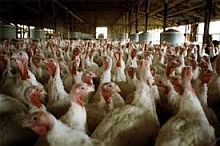
- Concentrated Animal Feeding Operations ( CAFOs) | What is a CAFO? - EPA
- Environmental Health Services Program - CDC
The problems created by such immense quantities of livestock include these:
- Wildlife: wild animals are killed for preying on livestock and are decimated to enable the expansion of agricultural lands, creating unstable ecosystems and extinction of local wildlife populations.
- Environment: livestock are responsible for 14.5% of global greenhouse gas emissions – more than every form of transport combined. In the U.S. around 5.5 million metric tons of methane, a greenhouse gas 25 times more harmful than carbon dioxide, comes from meat production operations.
- Water: almost 50% of water use in America is directed towards raising livestock. Animal agriculture has taken over almost half of the landmass of the lower 48 states, and has polluted 35,000 miles of rivers in 22 states, and groundwater in 17 states.
Force Change
- CAFO: The Tragedy of Industrial Animal Factories
- US-EPA: Environmental Protection Agency
- Food Dialogues: U.S. Farmers & Ranchers Alliance
- Grace Communications Foundation
- USDA: U.S. Department of Agriculture

- Nutrition Center | American Heart Association
- Diet and Nutrition 101 - Everydayhealth.com
- Bee Colony Collapse Disorder (CCD)
Bees are vital to our food and farming system, and they provide a critical service to our economy, supporting $20 to $30 billion in agricultural production annually. But the situation for our pollinators is dire: Last year beekeepers reported record-breaking losses of 40 percent to 90 percent, with some beekeepers losing 100 percent of their hives.
The European Union has placed a two-year moratorium on bee-killing pesticides, the UK’s top retailers have stopped selling them and the city of Eugene, Oregon, banned them, but the EPA has not. The bees are telling us we can’t wait any longer to take action, but the United States Environmental Protection Agency continues to ignore a growing body of science and has delayed action until 2018.
Acting like a nerve agent, Bayer and Monsanto's neonics compromise a bee's ability to feed and make its way back to the hive. This latest research joins other independent, unbiased studies that have linked this group of deadly chemicals to colony collapse disorder.
- Bee Informed
The Bee Informed Partnership is a collaboration of efforts across the country from some of the leading research labs and universities in agriculture and science to better understand honey bee declines in the United States.
- List of crop plants pollinated by bees | Wikipedia
- Pollination: Why are Bees Important? | Native Plants and Ecosystem Services | Michigan State University
- List of Foods We Will Lose If We Don't Save the Bees
"There are many arguments as to what is causing CCD, but the most logical and likely culprit is the increased usage of pesticides by the likes of Monsanto and others."
- 10 crops that would disappear without bees | Fox News
- Honey Bee Die-Off Caused By Multiple Factors Including Pesticides
May 2, 2013 by Theresa Riley -- Moyers and Company
- Legislation to restrict pesticide use proposed by Rep. Blumenauer | July 12, 2013 - The Oregonian
- Tell Your Member of Congress: Support the Save America's Pollinators Act | Beyond Pesticides
- H.R.2692: Saving America's Pollinators Act of 2013 - Bill Text 113th Congress (2013-2014) | Thomas (LOC)
- H.R.2692: Saving America's Pollinators Act of 2013 - Text as of July 16, 2013 - Govtrack.us
Feds to Phase Out GMO Farms and Neonicotinoid Pesticides at Wildlife Refuges | Aug. 6, 2014 - Truthout
- "Silence of the Bees" | 2007 - PBS Documentary - YouTube
In the winter of 2006, a strange phenomenon fell upon honeybee hives across the country. Without a trace, millions of bees vanished from their hives. A precious pollinator of fruits and vegetables, the disappearing bees left billions of dollars of crops at risk and threatened our food supply. The epidemic set researchers scrambling to discover why honeybees were dying in record numbers — and to stop the epidemic in its tracks before it spread further.
- Pesticide Industry Uses Big Tobacco Playback to Explain Why Bees Are Dying Off
May 17, 2014 - by Rebekah Wilce, PR Watch - Truthout.org
"Europe has implemented a continent-wide two-year suspension on the use of the three most-used neonicotinoids -- imidacloprid, clothianidin and thiamethoxam. Meanwhile, the U.S. Environmental Protection Agency (EPA) and U.S. Department of Agriculture (USDA) issued a joint report in May 2013 concluding in part that "pesticide exposure to pollinators continues to be an area of research and concern, particularly the systemic pesticides such as neonicotinoids." But although the EPA is currently required to review the use of neonicotinoids as pesticides, the review is not scheduled to be completed until at least 2018. And the EPA and USDA have stated that a U.S. neonicotinoid ban is unnecessary."
- Honey Bees and Colony Collapse Disorder | ARS - USDA
- Pollinator Protection: EPA Actions to Protect Pollinators | Pesticides: Environmental Effects | EPA
- New virus linked to bee colony collapse disorder | January 21, 2014 - LA Times
- How a Plant Virus May Help Cause the Beepocalypse | January 22, 2014 - TIMES Magazine
A new study finds that a plant pathogen could play a role in honeybee colony collapse disorder.
- Bee Colony Collapses Are More Complex Than We Thought | August 7, 2013 - US News & World Report
- Bee Colony Collapse Disorder | National Pesticide Information Center
- Insects, Bees and Entomology | National Agricultural Library
- Vanishing Bees | NRDC
Honey bees are disappearing across the country, putting $15 billion worth of fruits, nuts and vegetables at risk.
- Friends of the Earth
- Pesticide Issues in the Works: Honeybee colony collapse disorder | May 15, 2012 - Pesticides | US EPA
- Soaring Bee Deaths in 2012 Sound Alarm on Malady | March 28, 2013 - New York Times
- Bee protection: US in spotlight as EU bans pesiticides | The Guardian
European commission vote highlights threat to the world's food supply from the decline of bees and other pollinators.
- Some US Bumblebees See 96% Drop in Last Decades | January 4, 2011 - Treehugger
- Beekeeping Times
- PlantFiles: The Largest Plant Identification Reference Guide
- Botany.Com: Plant Encyclopedia to Identify Plants, Flowers, Trees & More
- National Institute of Food and Agriculture | USDA
- CRIS: Current Research Information System
The Current Research Information System (CRIS) provides documentation and reporting for ongoing agricultural, food science, human nutrition, and forestry research, education and extension activities for the United States Department of Agriculture.
- AGRIS International - Research Database Locator: Find Articles & More
The AGRIS International database serves as a comprehensive inventory of worldwide agricultural literature which reflects research results, food productions, and rural development to help users identify problems involved in all aspects of world food supply. Emphasis is non-US.
- NASDA: National Association of State Departments of Agriculture
NASDA is the National Association of State Departments of Agriculture founded in 1915, and is a nonprofit organization. It's members are made up of Commissioners, Secretaries, and Directors of Agriculture in all 50 states and the 4 U.S. territories.
- FDA: U.S. Food and Drug Administration
- Healthfinder.org
"Your source for reliable health information."
- ALEC: American Legislative Exchange Council
- ALEC: American Legislative Exchange Council - ALEC Exposed | Sourcewatch
- ALEC Exposed
"The American Legislative Exchange Council (ALEC) describes itself as the largest “membership association of state legislators,” but over 98% of its revenue comes from sources other than legislative dues, primarily from corporations and corporate foundations."
- "Ag Gag" Bills and Supporters Have Close Ties to ALEC | Green is the New Red
- Ag-Gag Bills at the State Level | ASPCA
"Ag-gag" or anti-whistleblower bills are appearing in state legislatures across the country. While crafted to appear reasonable, these measures are designed to prevent the exposure of troubling practices at agricultural facilities.
- Washington: Don't Let Farms Hide Cruelty, Fight the Ag-Gag Bill
- Bill that Bans Undercover Filming at Farms Enacted in Idaho | February 28, 2014 - NPR
- Idaho Gov. Signs Ag-Gag Bill into Law | February 28, 2014 - Aljazeera America
Law criminalizes secretly filming on farms; animal rights groups say abuse will now go unexposed
- Anti-Whistleblower Bills Hide Factory Farming Abuses from the Public
January 7, 2014 - The Humane Society of the United States
- Ag-gag | Wikipedia
- PR Watch | Reporting on spin and disinformation since 1993
- EFSA -- European Food Safety Authority
- EUFIC -- The European Food Information Council
- Foods Standards Agency -- UK
- Food Safety Authority of Ireland -- HOME
- French Agency for Food, Environmental and Occupational Health Safety
- Europa -- Food Safety: From the Farm to the Fork
DG Health and Consumers Overview
- IATP: Institute for Agriculture and Trade Policy
- LII | LII/Legal Information Institute | Cornell University
- World Economic Forum
- GM_Free Organic Agriculture to Feed the World
From The Institute of Science in Society
- UNESCO: United Nations Educational, Scientific and Cultural Organization
- Organic Food and Farming | Genetic Engineering
- Take action to ban GM foods
- Genetically Modified Foods: Harmful or Helpful
- Genetically Engineered Food
- Genetically Engineered Food - A Serious Health Risk
- Maize Fl-cDNA Outreach Project
- Organic Consumers Association
The Organic Consumers Association is a public interest organization dedicated to building a healthy, safe, and sustainable system of food production and consumption. We are a global clearinghouse for information and grassroots technical assistance.
[Typing "Monsanto" into the search window returns a very interesting list.]
- EPA's Regulation of Biotechnology for use in Pest Management | Pesticides
- USDA - Animal and Plant Health Inspection Service (APHIS) - Biotechnology
Monsanto
[61 other countries now label genetically modified foods (GMOs).]
- "The World According to Monsanto" | 108 minutes - Top Documentary Films
"Thanks to these intimate links between Monsanto and government agencies, the US adopted GE foods and crops without proper testing, without consumer labeling and in spite of serious questions hanging over their safety. Not coincidentally, Monsanto supplies 90 percent of the GE seeds used by the US market.
"Monsanto’s long arm stretched so far that, in the early nineties, the US Food and Drugs Agency even ignored warnings of their own scientists, who were cautioning that GE crops could cause negative health effects. Other tactics the company uses to stifle concerns about their products include misleading advertising, bribery and concealing scientific evidence."
- "The World According to Monsanto" | 1 hour, 49 minutes - YouTube
- A Harvest of Fear | PBS
- 3 Must-See Food and Ag Documentaries
- Food Evolution | narrated by Neil Degrasse Tyson
- "Monsanto Food Wars: GMO Seeds and Animals" | 33 minutes - YouTube
- "Seeds of Death" | 80 minutes - Top Documentary Films
Every single independent study conducted on the impact of genetically modified food shows that it damages organs, it causes infertility, it causes immune system failure, it causes holes in the GI tract, and it causes multiple organ system failure.
- GMOs: Respected Analyst Says They Could Destroy Life on the Planet | August 26, 2014
- Study linking GM maize to cancer must be taken seriously by regulators | The Guardian Environment Blog
- Monsanto UK, a food biotechnology company
- Monsanto Under Attack: Setbacks from Brazil, to Canada, to the UK
Published in In Motion Magazine November 9, 1998.
- Millions Against Monsanto | Organic Consumers Association
- Portal: Food Sovereignty
The Food Rights Network (FRN) is a non-profit, non-partisan research and advocacy project of the Center for Media and Democracy. FRN supports food sovereignty.
- Monsanto Watch
- Food & Water Watch
Food & Water Watch works to ensure the food, water and fish we consume is safe, accessible and sustainably produced.
- Monsanto: Corporate Crimes | Corporate Watch
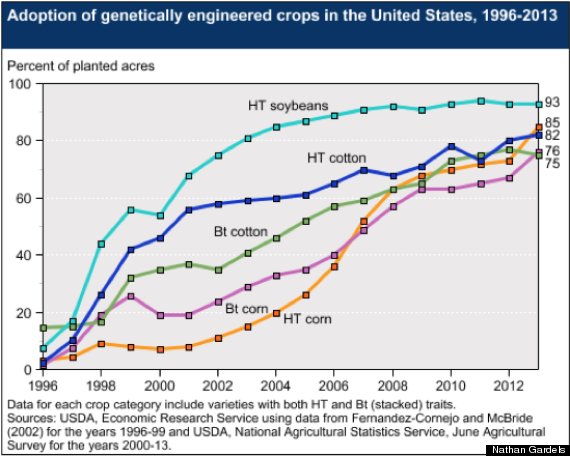
- The world’s top 10 seed companies: who owns Nature? | Monsanto Watch
- Genetic Engineering Companies | Biology Fortified
This is a short list of some of the commonly known private companies that are developing genetically engineered crops.
- A List of Food Companies that Hide GMO's
- Comprehensive List of GMO Products and Companies
- Seed Industry Structure Is Characterized by Growth and Consolidation | PDF File - USDA
- 5 GMO Myths Busted | Colbert Report
"Obama’s “Food Czar” Michael Taylor refuses to make FDA testing of GMO safety mandatory…I wonder if it’s because he used to be the Vice President of Monsanto?"
- Top 7 Myths About GMO Foods & Monsanto | Natural Society
- GMO Myths and Truths | PDF File - Earth Open Source
- GMO Myths and Truths | PDF File - Insitute for Responsible Technology
- Mindfully.Org
- Index of /Food
[This is a DIRECTORY listing that may take some intuition to navigate.]
- The True Food Network
The Center for Food Safety (CFS) provides leadership in legal, scientific, and grassroots efforts to address the increasing concerns about the impacts of our food production system on human health, animal welfare, and the environment.
- Can Agricultural Biotechnology Be Green?
- Bio-Tech Info Net
- ODI: The Overseas Development Institute
ODI is Britain's leading independent think-tank on international development and humanitarian issues.
- Proceedings of the National Academy of Sciences
- 8020 Vision - Analysis and insight on sustainable, business, government and community
- Soil Science Society of America | HOME
- Seafriends
- Soil Erosion Site
The Soil Erosion Site brings together reliable information on soil erosion from a wide range of disciplines and sources. It aims to be the definitive internet source for those wishing to find out more about soil loss and soil conservation.
- Conservation, biodiversity, sustainable environmental issues,...
- Drip Irrigation - Greenhouse - Agriculture Guide
- Agriculture and Rural Development - European Commission
- The Weather Doctor
- Soil Erosion - Causes and Effects
from the Canadian Ministry of Agriculture, Food and Rural Affairs
- Environmental History Timeline
- Food First/Institute for Food and Development Policy
- Earth Summit 2002
- Earth Network for Sustainable Development -- GOOGLE Scholar
- World Business Council for Sustainable Development
- Sustainable Table
Sustainable Table is a consumer program founded to celebrate the sustainable food movement, educate individuals on food-related issues, and builds community through sustainable food.
- Action Aid
ActionAid is a global movement of people working together to further human rights and defeat poverty for all.
- News > Science > Plants | The Guardian
- Seed banks in south Asia: building grassroots support for crop diversity | The Guardian
Seed banks improve food security and help preserve indigenous farming practices. How can they be better supported by development efforts?
- National Sustainable Agriculture Coalition | Conservation, Energy & Environment
- Sustainable Agriculture | National Geographic
- Earth Council Alliance
- FERA: Food and Environment Research Network
Our over arching purpose is to support and develop a sustainable food chain, a healthy natural environment, and to protect the global community from biological and chemical risks.
- The Envirolink Network
- Earth Day Network
- SRISTI: Society for Research and Sustainable Technologies and Institutions
- CSPI: The Center for Science in the Public Interest
CSPI is a consumer advocacy organization whose twin missions are to conduct innovative research and advocacy programs in health and nutrition, and to provide consumers with current, useful information about their health and well-being.
- CGIAR: Consultative Group on International Agricultural Research
- FAPRI: The Food and Agricultural Research Institute
- The International Development Research Center, Ottawa, Canada
is a public corporation created by the Canadian government to help communities in the developing world find solutions to social, economic, and environmental problems through research.
- Novartis Foundation for Sustainable Development (NSFD)
- World Water Council
- 5th World Water Forum | World Water Conference -- 16-22 March 2009 | PDF File
- 5th World Water Forum | Istanbul, 2009
The World Water Forum, organized every three years by the World Water Council in close collaboration with the authorities of the hosting country, is the largest international event in the field of water.
- 6th World Water Forum | Marseille, 2012
- 7th World Water Forum, Daegu & Gyeongbuk 2015 - Water for our future
The 7th edition of the world’s largest water event will gather participants from the international water community from 12 to 17 April 2015. The Forum will focus on the implementation of the solutions that were provided during the 6th edition, which was held in Marseille, France, in March 2012.
- Environment - OECD: Organization for Economic Co-operation and Development -- Got Water?
- Watch Free Online -- "Flow: For Love of Water" | 93 minutes - Top Documentary Films
Irena Salina's award-winning documentary investigation into what experts label the most important political and environmental issue of the 21st Century - The World Water Crisis. Salina builds a case against the growing privatization of the world's dwindling fresh water supply with an unflinching focus on politics, pollution, human rights, and the emergence of a domineering world water cartel.
- World Water Week in Stockholm - Official Site
- "Resurgence of Large Dams Threatens Tribal People Worldwide"
National Geographic Magazine Blog by David Braun
- Greenwashing Hydropower | Worldwatch Institute
- UN Economic Commission for Africa
- ADP: Asia Development Bank: Fighting Poverty in Asia and the Pacific
- Indo-Bangla Water Conflict/Cooperation | The Daily Star
- The Ganges Water Conflict | PDF File
- Sharing the Water of the Ganges | Wikipedia
- India's Tipaimukh dam: another Farakka for Bangladesh in the offing? | Bangla Praxis - June, 2009
- UN expert suggests regional river commission | Priyo News
- Risk of water wars rises with scarcity | Al Jazeera - August 26, 2012
- Pacific Institute: Water and Conflict
- Will Climate Change Cause Water Conflict | Science Daily - Dec. 12, 2012
- Water Conflicts in the Middle East
- Circle of Blue Water News
- GWSP: Global Water System Project
Water Documentaries
There is a separate page on Water Documentaries.
We, the undersigned, respectfully call upon the United Nations to add a 31st article to the
Universal Declaration of Human Rights,
establishing access to clean and potable water as a fundamental human right.
- Put Water Center Stage, says UN report | SciDevNet
"Unless water occupies a more central role in decisions regarding crises such as climate change and food security, a global water shortage could ensue — leading to political conflict and insecurity, says a new report."
- The Water Channel
Hi! TheWaterChannel is an open resource with lots of videos related to water.
- Watch Free Online -- "The Great Culling: Our Water" | 93 minutes - Top Documentary Films
The Great Culling of the human race already has begun. Covertly, insidiously, mercilessly, a global depopulation agenda has been launched. It is being done through chemicals added to our drinking water, food, medicines, and the air we breathe - chemicals that have the known effect of reducing fertility and shortening lifespan.
- Watch Free Online -- "Flow: For Love of Water" | 93 minutes - Top Documentary Films
Irena Salina's award-winning documentary investigation into what experts label the most important political and environmental issue of the 21st Century - The World Water Crisis. Salina builds a case against the growing privatization of the world's dwindling fresh water supply with an unflinching focus on politics, pollution, human rights, and the emergence of a domineering world water cartel.
- Global Water Supply Drying Up As Population Grows | ThoughtCo
- "Water on the Table" | Wikipedia
Water on the Table is a Canadian documentary film directed, produced and written by filmmaker Liz Marshall. The film explores Canada’s relationship to its freshwater resources and features Canadian activist Maude Barlow in her pursuit to protect water from privatization.
There is a separate page on The Bottled Water Industry.
Water Crisis News | National Geographic
- Top Documentary Films
- "Future Earth 2025: A Future of Water Shortages" | YouTube
Future Earth 2025 takes us on an extraordinary CGI journey into the future offering a vision of what the world might be like if we continue to deplete one of our primary resources – water.
- "Future Earth 2025" | IMDB
- Water Related Documentaries | The Water Project
- "The Colorado River: Flowing Through Conflict" | 59 minutes - YouTube
Native Coloradan Pete McBride has spent almost two decades studying the world with his camera. His most recent project took over two years documenting his local river — the Colorado. One of the most loved and litigated in the rivers in the world, it ceases to reach to sea. McBride's journey culminated in an acclaimed coffee table book: "The Colorado River: Flowing Through Conflict", and an award-winning short film, "Chasing Water".
- Water Conservation and Auxiliary Water Topics | The Water Nexus Blog
Note: lawn grass is supposed to go dormant in dry summer weather, and watering it a) wastes a lot of water, b) makes a lot of extra work for the homeowner, and c) wastes energy and causes a lot of pollution due to running the lawnmower all those extra, unnecessary times. Skip the unnecessary water, and you’ll both have a lot more time to enjoy doing other things and create less pollution.
- SDWF: Safe Drinking Water Foundation
Water Fact of the Week (Week of February, 24, 2014):
The World Health Organization (WHO) calls waterborne diseases the world’s greatest killer, estimating they cause 2.2 million deaths each year, more than half of them children. Worldwide, around 1.1 billion people lack access to improved water sources and 2.4 billion have no basic sanitation, WHO says.
More extensive coverage of the TSCA: Toxic Substances Control Act of 1976.
Quote from 'Moms Clean Air Force' Newsletter:
"As Richard Denison, an expert at EDF on chemical policy reform, points out, the latest spill brings "the failures of TSCA into sharp focus. TSCA is our main chemical safety
law--and it has not been updated since 1976. MCHM was allowed onto the market
with no evidence that it is safe.
"Worse, 62,000 chemicals were grandfathered by TSCA in the 70s. We have no information--from industry--about what these chemicals are doing to us. We know next to nothing
about their carcinogenic effect, their mutagenic effects, their teratogenic
effects, leading to congenital malformations, their developmental toxicity.
"But scientists and researchers are discovering a great deal of disturbing evidence that some of these chemicals--things we breathe as well as ingest every day--are harmful to
human health."
- The Water Page
"The mission of this page is to deliver information beyond just the properties of water. It is a website that covers all topics about water."
- Water: Science & Issues | Water Encyclopedia
- Food & Water Watch
Food & Water Watch works to ensure the food, water and fish we consume is safe, accessible and sustainably produced.
Fracking
Fracking, or hydraulic fracturing, is the act of drilling and injecting fluid into the ground at a high pressure so as to fracture shale rocks and release natural gases inside. Currently, there are more than 500,000 active natural gas wells across the United States. Every site needs roughly 400 tanker trucks carrying water and supplies to the area. Between 1-8 million gallons of water and 40,000 gallons of chemicals are used per fracture. Those chemicals can include up to 600 different harmful substances. A pipeline is drilled approximately 10,000 feet into the Earth, and the fluids are forced down to the shale rocks containing natural gases. The waste fluids are left behind to evaporate, although this is also a problem because the chemicals in these mixtures can leak into water sources or return as acid rain. - Force Change
There is a separate, more comprehensive page to be found at 'Fracking' - Hydraulic Fracturing.
- PR Watch | Reporting on spin and disinformation since 1993
- H.R.2728 - 113th Congress: Protecting States' Rights to Promote American Energy Security Act | Congess.gov
- Protecting States' Rights to Promote American Energy Security Act (H.R.2728) | Govtrack.us
- "Unearthed: The Fracking Facade" | 24 minutes - Top Documentary Films
- "Gasland" (2010) | 107 minutes - IMDb
- "Gasland" | Trailer - YouTube
- "Gasland II" -- Fracking FAQs
- Fracking & Unconventional Gas in the UK | Top Films
Extreme Energy Action Network
- LinkTV - ISSUE: Fracking | Videos "Fracking Hell: The Big Story"
This three-hour compilation special digs deep into the issues of hydraulic fracturing, or "fracking."
Fracking chemicals are linked to bone, liver and breast cancers, gastrointestinal, circulatory, respiratory, developmental as well as brain and nervous system disorders. Such chemicals are present in frack waste and may find their way into drinking water and air.
- Watch Free Online "The Sky is Pink" | by Josh Fox - Top Documentary Films
- Fracking hell? Photo series follows families who say their lives and communities have been destroyed by the industry
February 23, 2014 - Mail Online
- Fracking | The People's Virtual Library
"Below are links leading to information sources on “horizontal hydrofracking” or “fracking” and the anti-fracking movement."
- Hydraulic fracturing | Wikipedia
- Cancer-Causing Chemicals Used in 34 Percent of Fracking Operations
January 22, 2013 - Eco NEWS - EcoWatch
- Fracking Chemical Database | FracFocus Chemical Database Download | SkyTruth
- FracFocus | Chemical Disclosure Registry
Hundreds of companies, thousands of wells. Find a well site near you. Search for nearby well sites that have been hydraulically fractured to see what chemicals were used in the process.
- What Chemicals are Used in Fracking | PDF
- Health Effects of Chemicals Used in Fracking | Physicians for Social Responsibility
- The Endocrine Disruption Exchange
- Millions of Gallons of Hazardous Chemicals Injected into Wells | April 16, 2011 - New York Times
- Documents: Natural Gas's Toxic Waste
Over the past nine months, The Times reviewed more than 30,000 pages of documents obtained through open records requests of state and federal agencies and by visiting various regional offices that oversee drilling in Pennsylvania. Some of the documents were leaked by state or federal officials. Here, the most significant documents are made available with annotations from The Times.
- Learn about toxic chemicals used in hydraulic fracturing | ToxMap
- ProPublica - Journalism in the Public Interest
- Independent Water Testing
- The Halliburton Loophole | PDF File
- EPA | Water Home
- NIEHS: National Institute of Environmental Health Sciences
- Report of the National Energy Policy Development Group - May 16, 2001 - PDF File
- Clean Water Action
- Fracking | SourceWatch
- Earthworks
- Energy Policy Act of 2005 | Wikipedia
- Frackwire - Hydraulic fracturing news & information
- ICOLD: International Commission On Large Dams
- HydroWorld: Hydro project, Dam Construction
- Water: Science & Issues | Water Encyclopedia
- The World Wide Web Virtual Library: Sustainable Development
A comprehensive list of internet sites dealing with sustainable development, including organisations, projects and activities, electronic journals, libraries, references and documents, databases, directories or metadatabases.
- Global Ministries - United Methodist Church
- IRD: International Relief & Development
IRD’s mission: to reduce the suffering of the world’s most vulnerable groups and provide the tools and resources needed to increase their self-sufficiency.
- Hunger Relief Organizations in the Best of the Web Directory
- Burma: Starving in Chin State -- a set on Flicker | BBC World Service Collections
- America's Second Harvest
is the nation's largest hunger relief organization, distributing food to 26 million hungry Americans each year.
- Feeding America
- The Hunger Site
The Hunger Site provides simple, effective, feel-good ways to address an urgent, specific humanitarian need: the eradication of world hunger.
- World Hunger Notes Homepage
- Food for The Hungry
World Crisis Network
- YAHOO!: Issues_and_Causes
- The Hunger Project
Effective Action To End World Hunger
- Homelessness
Health|Epidemics|Humanitarian Aid
For specific Medical and Health issues and information, go to the Medical/Health Page of the library.
Also, Health is intimately connected to the Environment and Food & Agriculture; in the latter section can be found videos and informed articles on Monsanto.
Also, in the section on Energy there is a sub-section on the process known as Fracking which can contaminate soil and aquifers, as well as streams and rivers, with toxic chemicals that end up in the food we eat.
Fracking also pollutes the air with carcinogens, like benzene, when the chemicals evaporate, and along with air pollution from refineries and vehicles, contributes to the creation of an ozone layer at ground level.
"Results from the NIEHS-supported Harvard Six Cities Study, the largest available database on the health effects of outdoor and indoor air pollution, show a strong association between exposure to ozone, fine particles and sulfur dioxide, and an increase in respiratory symptoms, reduced lung capacity, and risk of early death."
--- NIEHS: National Institute of Environmental Health Sciences
Another health-related issue concerns the Bottled Water Industry in the Environment section. Also in that section--below--is a list of Water Documentaries.
Everything is connected, either interdependently or by cause-effect, to everything else.
|
Ebola Virus Disease - Ebola Update | CDC
The Wireless Environment and Its Potential Health Risks
- "Resonance: Beings of Frequency" | Top Documentary Films
We live an an ocean of electromagnetic radiation. It's all around us now, invisible, but we know it's there. Every time you lift up your mobile phone you know it's there. It is very hard to turn the clock back, in fact it is impossible, but we need to be aware of the adverse health effects so that we can have the choice of taking precautions against the exposures.
- "Resonance: Beings of Frequency" | Vimeo
- "Resonance: Beings of Frequency" | January 13, 2014 - Review - Static Mass Emporium
- ICNIRP: International Commission on Non-Ionizing Radiation Protection
- What is ICNIRP?
ICNIRP's principal aim is to disseminate information and advice on the potential health hazards of exposure to non-ionizing radiation to everyone with an interest in the subject. ICNIRP's information and advice covers all of the non-ionizing radiations including, the optical radiations (ultraviolet, visible and infrared - and lasers), static and time-varying electric and magnetic fields and radiofrequency (including microwave) radiation, and ultrasound.
- International Commission on Non-Ionizing Radiation Protection | Wikipedia
- Cell Phones Possibly Carcinogenic, WHO says | May 31, 2011 - Medscape Medical News
- WHO/IARC Classifies Radiofrequency Electromagnetic Fields as Possibly Carcinogenic to Humans
May 31, 2011 - Electromagnetic Health.org
- Cell Phones are as Carcinogenic as Coffee | Journal of Carcinogenesis - NCBI - NIH
Scientists from 14 countries met under the auspices of the International Agency for Research on Cancer (IARC) in Lyon, France, in May 2011, and assessed the carcinogenicity of radiofrequency electromagnetic fields (RF-EMF).
- IARC: Cell Phone Radiation is a Possible Human Carcinogen | June 3, 2011 - Microwave News
- The effects of extremely low-frequency magnetic fields on melatonin and cortisol, two marker rhythms of the circadian system
PDF File available - December, 2012 - NCBI - NLM - NIH
In the past 30 years the concern that daily exposure to extremely low-frequency magnetic fields (ELF-EMF) (1 to 300 Hz) might be harmful to human health (cancer, neurobehavioral disturbances, etc) has been the object of debate, and has become a public health concern.
- Depression and Magnetic Fields | Altered States
- Melatonin:
Fundamental Non-Ionizing Electromagnetic Settings for Optimal Human Performance | PDF File
By Katharina Gustavs - Environmental and Occupational Health Study Program, University of Victoria - August 2001
We Are What We Eat: Potential Health Hazards
- Food and Health Related Videos including "Killer At Large: The Obesity Epidemic"
Aaron and Kristen Percival - YouTube
- Reviews of Six Documentaries on American Food by Dan Schneider, June 17, 2012
- "Food, Inc." | 94 minutes - IMDb
Part 1: For most Americans, the ideal meal is fast, cheap, and tasty. Food, Inc. examines the costs of putting value and convenience over nutrition and environmental impact.
Director Robert Kenner explores the subject from all angles, talking to authors, advocates, farmers, and CEOs, like co-producer Eric Schlosser (Fast Food Nation), Michael Pollan (The Omnivore’s Dilemma), Gary Hirschberg (Stonyfield Farms), and Barbara Kowalcyk, who’s been lobbying for more rigorous standards since E. coli claimed the life of her two-year-old son.
Part 2: The filmmaker takes his camera into slaughterhouses and factory farms where chickens grow too fast to walk properly, cows eat feed pumped with toxic chemicals, and illegal immigrants risk life and limb to bring these products to market at an affordable cost. If eco-docs tends to preach to the converted, Kenner presents his findings in such an engaging fashion that Food, Inc. may well reach the very viewers who could benefit from it the most: harried workers who don’t have the time or income to read every book and eat non-genetically modified produce every day.
- "Food, Inc." (2009) | YouTube - 58 minutes
- "Food, Inc." | Amazon
The free full online version is difficult to find--I looked hard, believe me--so this might be your best bet. It's inexpensive and worthwhile and safe. However, if you're a DIRECTV customer, you can find it at: "Food, Inc.".
- Sustainable Table | Film Review - Food, Inc
- Food, Inc. | Wikipedia
- Daniel E. Lieberman, Professor of Human Evolutionary Biology, Harvard
"An evolutionary approach to human anatomy and physiology not only helps us to understand better why humans are the way they are, but also helps provide key insights on how to prevent many kinds of illnesses and injuries."
- "The World According to Monsanto" | 108 minutes - Top Documentary Films
"Thanks to these intimate links between Monsanto and government agencies, the US adopted GE foods and crops without proper testing, without consumer labeling and in spite of serious questions hanging over their safety. Not coincidentally, Monsanto supplies 90 percent of the GE seeds used by the US market.
"Monsanto’s long arm stretched so far that, in the early nineties, the US Food and Drugs Agency even ignored warnings of their own scientists, who were cautioning that GE crops could cause negative health effects. Other tactics the company uses to stifle concerns about their products include misleading advertising, bribery and concealing scientific evidence."
- "The World According to Monsanto" | 108 minutes - YouTube
- "Seeds of Death" | 80 minutes - Top Documentary Films
Every single independent study conducted on the impact of genetically modified food shows that it damages organs, it causes infertility, it causes immune system failure, it causes holes in the GI tract, and it causes multiple organ system failure.
- "Seeds of Death" | Full Movie - YouTube
- Food & Water Watch
- 'Foodopoloy' by Wenonah Hauter
"Foodopoly," Wenonah Hauter's fine contribution to the growing literature about our ailing food system, does a particularly good job of detailing both the methods and implications of this corporate takeover of food.
- Food Safety News
- USDA: U.S. Department of Agriculture
- Nutrition Center
- Diet and Nutrition
- Diet and Nutrition 101 - Everydayhealth.com
- WHO: World Health Organization
- The Water Page
"The mission of this page is to deliver information beyond just the properties of water. It is a website that covers all topics about water."
- Link Graphics
Includes list of WHO websites on infectious diseases.
- WMA: World Medical Association
The World Medical Association (WMA) is an international organization representing physicians. It was founded on 17 September 1947, when physicians from 27 different countries met at the First General Assembly of the WMA in Paris.
- AMA: American Medical Association
- Doctor Finder
DoctorFinder provides you with basic professional information on virtually every licensed physician in the United States. This includes more than 814,000 doctors.
- World Organization for Animal Health
- International Health Organization (IHO)
The International Health Organization, (IHO) is a non-profit organization dedicated to improving the health and well being of under-served people in rural South Asia.
- Global Health Council -- The Voice for Global Health
- Global Health Law Research Guide | Georgetown University Law Library
- USAID: U.S. Agency for International Development
- U.S. Department of Health and Human Services
The Department of Health and Human Services (HHS) is the United States government’s principal agency for protecting the health of all Americans and providing essential human services, especially for those who are least able to help themselves.
- HRSA: Health Resources and Services Administration
- OSHA: Occupational Safety and Health Adminstration - Dept. of Labor
- NIH: National Institutes of Health
They include the National Institute on:
Alcohol Abuse and Alcoholism; Aging; Allergy and Infectious Diseases; Arthritis and Musculoskeletal and Skin Diseases; Cancer; Child Health and Human Development; Dental Research; Diabetes and Digestive and Kidney Diseases;
Drug Abuse; Environmental Health Sciences; Mental Health; Nursing Research; and the National Center for Research Resources.
- Fogarty International Center
The Fogarty International Center is dedicated to advancing the mission of the National Institutes of Health by supporting and facilitating global health research conducted by U.S. and international investigators, building partnerships between health research institutions in the U.S. and abroad, and training the next generation of scientists to address global health needs.
- NCBI: National Center for Biotechnology Information
The National Center for Biotechnology Information advances science and health by providing access to biomedical and genomic information.
- MedlinePlus
You can use MedlinePlus to learn about the latest treatments, look up information on a drug or supplement, find out the meanings of words, or view medical videos or illustrations. You can also get links to the latest medical research on your topic or find out about clinical trials on a disease or condition.

- NHLBI: National Heart Lung and Blood Institute
- NIMH: National Institute of Mental Health
- CHID: Combined Health Information Database
CHID is a database produced by health-related agencies of the Federal Government. This database provides titles, abstracts, and availability information for health information and health education resources.
- CDC: Centers for Disease Control and Prevention
Performing a search on superbug returned 282 items [March 11, '13].
- National Poisons Information Database
- AAPCC: American Association of Poison Control Centers
- Superbugs
- Watchdog on Science
- CSPI: Center for Science in the Public Interest
- Home - ACSH: American Council on Science and Health
- Healthfinder.Gov
Links to more than 800 consumer health Web sites including more than 300 federal sites.
- The Shaman's Apprentice: A Documentary about Rainforest Medicine, Shamanism, and Ethnobotany in the Amazon
- The Institute for EthnoMedicine
The Institute for Ethnomedicine searches for new cures by studying plant medicine and patterns of wellness and disease among indigenous people.
- Journal of Ethnobiology and Ethnomedicine
- Ethnobotany Research and Applications | Journal of Plants, People and Applied Research
- Sacred Earth - Ethnomedicine, the Philospohy of Healing
- The Ethnomedicine Preservation Project
- Natural Health News
The Patient Protection and Affordable Care Act
- Medicaid.gov
- Children's Health Insurance Program Reauthorization Act of 2009 (CHIPRA) | Henry J. Kaiser Family Foundation
- InsureKidsNow.gov
- Children's Health Insurance Program Reauthorization Act of 2009 (CHIPRA)
PDF File - U.S. Government Printing Office
- H.R.1: American Recovery and Reinvestment Act of 2009
Bill Text Versions - 111th Congress | Library of Congress - Thomas
- H.R.1: American Recovery and Reinvestment Act of 2009
PDF File - U.S. Government Printing Office
- Recovery.gov
The site, created by the American Recovery and Reinvestment Act of 2009, displays information about the Recovery Accountability and Transparency Board's activities, as well as data related to the $840 billion stimulus bill and information about the distribution and spending of Hurricane Sandy funds.
- FDA -- U.S. Food and Drug Administration
- Search Results for Counterfeit Drugs | Fraud.org
- California State Board of Pharmacy - Information on E-Pedigree
California’s e-pedigree requirements for prescription drugs
- Phrma: Pharmaceutical Research and Manufacturers of America
PhRMA represents the country’s leading pharmaceutical industry research and biotechnology companies...
Women's Health
There is a more updated and comprehensive section on Womens Health on the Medical page.
- Top 6 Reasons Women Should Be Thankful Conservative Media Aren't Their Doctor
January 1, 2014 | Media Matters for America
- Women's Health Protection Act | PDF File
To protect a woman’s right to determine whether and when to bear a child or end a pregnancy by limiting restrictions on the provision of abortion services.
- How Blue States Could Push Back for Abortion Rights | November 13, 2013 - New Republic
- Senate Democrats Unveil Pro-Choice Bill to Prevent States from Chipping Away at Abortion Rights
November 13, 2013 - Think Progress
- International Women's Health Coalition
- Womenshealth.gov
A project of the U.S. Department of Health and Human Services Office on Women's Health (OWH)
- Mandatory Ultrasound Bill Moves from Conception to Passage in Just Ten Days | June 14, 2013 - PRWatch
- Open Directory -- Women's Health
- Find a Health Organization | healthfinder.gov
Browse our collection alphabetically, by health topic, or by the type of organization.
- Womens Health | HRSA: Health Resources and Services Administration
- Office of Women's Health | FDA
- CDC - Women's Health
- Topics A-Z
Links provide women’s health and general information, including publications and materials, national and state research findings, guidelines, CDC-funded programs, and more.
- Reproductive Health
- WHO | Reproductive Health
- UNFPA: United Nations Population Fund
- OPA: Office of Population Affairs | HHS
- MedlinePlus - Health Information from the National Library of Medicine
- NIEHS: National Institute of Environmental Health Sciences
- Reproductive health | Wikipedia
- Women's Health Center | WebMD
- Women to Women - Changing women's health - naturally
- Women's Health Magazine
EYES - Macular Degeneration - Glaucoma
- Emerging and Reemerging Viruses: An Essay
by Alison Jacobson, Department of Microbiology, University of Cape Town
- Education Development Center
"Education Development Center's projects span the globe, joining research with practice to meet today's and tomorrow's challenges in education, health, technology, human rights, and the environment. While the issues we confront are complex, all that we do is united by one simple conviction: Learning is the liberating force in human development."
- News About Epidemics
- Epidemics and Pandemics -- New Scientist
- CARE: Cooperative for Assistance and Relief Everywhere
- ICRC: International Committee of the Red Cross
- IFRC: International Federation of Red Cross and Red Crescent Societies
- Doctors Without Borders USA, Inc
- United Kingdom Association of International Doctors
- Emergency
EMERGENCY is an independent Italian organization. EMERGENCY provides free, high quality medical and surgical treatment to the victims of war, landmines and poverty. EMERGENCY promotes a culture of peace, solidarity and respect for human rights.
- Sovereign Order of Malta - Official Site
- Direct Relief International
- Disaster Relief Agencies and Non-Government Organizations
- Top Disaster Relief Organizations | Christian Groups
- Action -- Advocacy to Control TB Internationally
- NIAID: National Institute of Allergy and Infectious Diseases
- The Global Fund to Fight AIDS, Tuberculosis, and Malaria
- amfar: The Foundation For Aids Research
- CDC: Centers for Disease Control and Prevention
- IAS: International AIDS Society
IAS represents the world’s professional society for scientists, health care and public health workers, and others engaged in HIV/AIDS prevention, control and care.
- International Medical Council on Vaccination
- International Vaccine Institute, Seoul, Korea
- DNA Vaccine.com
"Your Global Platform for Vaccine Research and Development"
- International Aids Vaccine Initiative
- U.S. Department of Health and Human Services
- UNAIDS | The Joint UN Programme on HIV/AIDS
- Eastern Europe & HIV/AIDS
- HIV and AIDS in Russia, Eastern Europe & Central Asia
- Eastern Europe and Central Asia
- HIV/AIDS in Eastern Europe and the Commonwealth of Independent States
- Stephen Lewis Foundation
The Stephen Lewis Foundation supports community-based organizations working to turn the tide of HIV/AIDS in Africa.
- MSF International
MSF [Medecins Sans Frontieres] is an independent humanitarian medical aid agency committed to two objectives: providing medical aid wherever it is needed, regardless of race, religion, politics or sex and raising awareness of the plight of the people we help.
- The Henry J. Kaiser Family Foundation
Through their Media and Public Education program, it works to broadly communicate information about health care
issues to audiences and to give people information that can help improve their health.
- Mercy Corp, Emergency Relief, Civil Society, Economic Development & Microenterprises, Health
Mercy Corps is a not-for-profit organization that exists to alleviate suffering, poverty, and oppression by helping people build secure, productive, and just communities. The agency now operates in more than 25 countries reaching 4 million people worldwide.
- Eurochild
The Centre for Europe's Children was set up in September 1997. It is the documentation and information centre for the European Strategy for Children which the Council of Europe, in co-operation with UNICEF, intends to serve as inspiration and guidance for senior policy-makers and all those who actively support children's causes in their respective activities.
- UNICEF: United Nations Children Fund
- The Convention on the Rights of the Child | Encyclopedia - The Free Dictionary
- Help Children | Humanitarian Aid & Emergency Relief | UNICEF USA
- Plan International
Founded over 70 years ago, Plan is one of the oldest and largest children's development organisations in the world. We work in 48 developing countries across Africa, Asia and the Americas to promote child rights and lift millions of children out of poverty.
- ChildFund International
Dedicated to helping children in need.
- Children's Health Foundation
Based in Aspen, Colorado, Children’s Health Foundation is a 501(c)3 nonprofit, whose programs have improved the health and well-being of over 20,000 children throughout the state.
- Child Health Foundation
Child Health Foundation was established in 1985 as a non-profit, public charity [501(c)3] to prevent and treat life-threatening communicable diseases of infants and children in the United States and abroad.
- UnitedHealthcare Children's Foundation
The Foundation provides financial assistance toward the family's share of the cost of medical services.
- Child Cancer Foundation | New Zealand
- ACCO: American Childhood Cancer Organization
Since 1970, American Childhood Cancer Organization has been respected as an essential and integral provider of programs and services required by families of children and adolescents with cancer across this country.
- Children's Cancer Foundation
The Children's Cancer Foundation® (CCF) is a charity committed to raising funds for research and treatment of cancers that affect children.
- World Vision International Home
World Vision International is a Christian relief and development organisation working for the well being of all people, especially children.
- CRIN: Child's Rights International Network
- "Save the Children"
- GAVI: Global Alliance for Vaccines and Immunization
A partnership dedicated to ensuring that all children, however poor, have equal access to these vaccines.
- GPEI: Global Polio Eradication Initiative
- UNICEF: Immunization - What is GPEI?
- Bill & Melinda Gates Foundation
- Diseases of Poverty Remain Sorely Overlooked | Nature News Blog - Decmber 14, 2012
- The Carter Center: Advancing Human Rights & Alleviating Suffering
- Health Programs
A leader in the eradication and elimination of diseases, the Center fights six preventable diseases — Guinea worm, river blindness, trachoma, schistosomiasis, lymphatic filariasis, and malaria — by using health education and simple, low-cost methods.
- Malaria Foundation International Home
- PATH Malaria Vaccine Initiative
- London School of Hygiene & Tropical Medicine

- UK Research Councils
- Walter Reed Army Institute of Research
- Seattle Biomedical Research Institute
Freedom from infectious disease
- Pharmweb
Pharmaceutical Information on the Internet
Since its launch in 1994 PharmWeb has developed into the premier online community of pharmaceutical and healthcare-related professionals with approximately 25,000 self-registered users. The first pharmaceutical portal on the Internet has developed into an invaluable directory of information, including a library of archives from over 100 moderated discussion forums.
- Fifth Global Forum on Pharmeceutical AntiCounterfeiting
- Pharmeceutical Counterfeiting
PDF File -- by Anil K. Deisingh
- Combatting Counterfiet Pharmeceuticals from China | Science Daily
- Drug Approvals and Databases | Approved Drug Products with Therapeutic Equivalence Evaluations | FDA
- Category: Humanitarian Aid Organizations | Wikipedia
- Open Directory: Aid Organizations
- Disaster Relief Agencies and Nongovernment Organizations
- A List of International Humanitarian Projects
- Global Humanitarian Assistance
- Humanitarian and Relief Organizations Worldwide
- Aid Organizations: Afghanistan
- UNRWA: United Nations Relief and Works Agency
- General Board of Global Ministries, United Methodist Church
- USCRI: U.S. Committee for Refugees and Immigrants
- Refugees International
- Rescue and Refugee Support | The International Rescue Committee (IRC)
The International Rescue Committee (IRC) responds to the world’s worst humanitarian crises and helps people to survive and rebuild their lives. At work in over 40 countries and 22 U.S. cities to restore safety, dignity and hope, the IRC leads the way from harm to home.
- IRD: International Relief & Development
IRD’s mission: to reduce the suffering of the world’s most vulnerable groups and provide the tools and resources needed to increase their self-sufficiency.
- ReliefWeb Home Page
- Map Center
Reference and thematic maps concerning current and past humanitarian emergencies and natural disasters.
- The International Website of the Salvation Army
- Concern Worldwide
Concern Worldwide works with the poorest people in the poorest countries of the world to enable them to transform their lives.
- ECHO Tackles Human Rights and Humanitarian Aid
- Social Sciences and Humanitarian Efforts | Speakeasy.org
- MISNA: Missionary International Service News Agency
- Fides International Service
Human Rights|Watch Dogs|War Crimes
Special Attention
Rosa Maria Ortega

Ilham Tohti
Marissa Alexander
Asia Bibi
Liu Xiaobo

Malala Yousafzai

Kailash Satyarthi
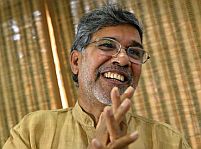
- A World at School
"We make noise and champion the work done to accelerate progress in education."
- Crowd Voice - Tracking Voices of Protest
CrowdVoice tracks voices of protest by curating and contextualizing valuable data, such as eyewitness videos, photos, and reports as a means to facilitate awareness regarding current social justice movements worldwide.
- HOME - Sydney PEN Centre
The Prison Industrial Complex
H.R.3543: The Justice is Not For Sale Act | Congress.Gov
Justice is Not For Sale Act | PDF File - Senate.gov
Senator Bernard Sanders (I-VT) and Congressman Raúl M. Grijalva (D-AZ)
Justice is Not For Sale Act of 2015 | PDF File - Senate.gov
In the Senate of the United States Mr. SANDERS introduced the following bill ...
- The Prison Industrial Complex | Eric Schlosser - The Atlantic
This is Part one of a three part series; the other two are accessible from here.
- Private Prisons | ACLU
Over the past four decades, imprisonment in the United States has increased explosively, spurred by criminal laws that put more people in prison for longer sentences. At the same time, the nation has seen the rise of for-profit prison companies, which benefit from keeping more people locked up.
- Private Prisons | Corrections Project
- Human Rights Implications of Private Prisons | PDF File - Human Rights Advocates
- Prison in the United States of America | Ken Silverstein
Free-Enterprise slave labour, racial discrimination and human rights violation in the Gulags of the Land of the Free
- Privatization of Corrections: A Violation of U.S. Domestic Law, International Human Rights, and Good Sense
PDF File - Ira P. Robbins
- The Prison Industry in the United States: Big Business or a New Form of Slavery?
March 31, 2014 - Global Research
- Who’s Getting Rich off the Prison-Industrial Complex? | March 17, 2014 - Vice.com
- The Prison Industrial Complex
- Drug War Policy and the Prison Industrial Complex | by Lisa Hammond
- 'Profiteers of Misery': The U.S. Private Prison Industrial Complex | Nation of Change
- Protesters want Gates Foundation to stop investing in prison operator
April 10, 2014 - Seattle Times
- Why For-Profit Prisons House More Inmates Of Color | March 13, 2014 - NPR
- 6 shocking revelations about how private prisons make money
September 23, 2013 - Salon
Private prison companies are striking deals that guarantee high prison occupancy rates
- The Private Prison Racket | February 24, 2014 - Politico Magazine
Companies that manage prisons on our behalf have abysmal records, so why do we keep giving them business?
- The GEO Group, Inc.
The GEO Group, Inc. (GEO) is the world's leading provider of correctional, detention, and community reentry services with 98 facilities, approximately 77,000 beds, and 18,000 employees around the globe.
- CCA: Corrections Corporation of America
- Out of Control: The Coast-to-Coast Failures of Outsourcing Public Services to For-Profit Corporations
12/04/13 - In The Public Interest
- Wikipedia
- UN Human Rights Treaty Information Portal
Site devoted to the UN human rights treaty system. Complete information on the nine core UN human rights treaties. Searchable by subject matter. Unique system for assisting with individual complaints.
- United Nations Human Rights Website | Office of the High Commissioner for Human Rights
- UNOCHA: United Nations Office for the Coordination of Humanitarian Affairs
- UNICEF - United Nations Children Fund
- The Convention on the Rights of the Child | Encyclopedia - The Free Dictionary
- Plan International
Founded over 70 years ago, Plan is one of the oldest and largest children's development organisations in the world. We work in 48 developing countries across Africa, Asia and the Americas to promote child rights and lift millions of children out of poverty.
- HREA: The Global Human Rights Education Associates
- Youth for Human Rights Organization
- UNHCR: United Nations High Commissioner for Refugees -- The UN Refugee Agency
- ECCHR: European Center for Constitutional and Human Rights
An independent, non-profit legal and educational organization dedicated to protecting civil and human rights throughout Europe.
- EchrNet: European Court of Human Rights
- The European Convention on Human Rights | FULL TEXT available - UK Law Online
- The Aire Center | Advice on Individual Rights in Europe.
The AIRE Centre is a specialist charity whose mission is to promote awareness of European law rights and assist marginalised individuals and those in vulnerable circumstances to assert those rights.
- BBC News - China's New Leaders | November 4, 2013
- KIOS - The Finnish NGO Foundation for Human Rights
- Andy Worthington - Investigative journalist, author, filmmaker, photographer and Guantanamo expert
- Blog Entrees by Andy Worthington | The Washington Post
- The Humanitarian Left
- Free Speech TV
Free Speech TV is an independent, 24-hour television network and multi-platform digital news source with news, stories and perspectives you won’t find anywhere else.
- Democracy Now!
- Bill Moyers Home Page
- The Fight -- and the Right -- To Vote | October 27, 2014 - by Bill Moyers & Company - Video and Transcript | Truthout
- Connecting You To The World | Link TV
LinkTV World News is your connection to unique news videos from around the world. From breaking news to stories you haven't seen elsewhere, our vision is to offer video as an entry point to seeing the world from different points of view. Link TV broadcasts programs that engage, educate and activate viewers to become involved in the world. These programs provide a unique perspective on international news, current events, and diverse cultures, presenting issues not often covered in the US media.
- WHPA: Women's Health Protection Act
- Progress Now
ProgressNow works with our states partners to promote progressive ideas and causes through earned media strategies and cutting-edge new media.
- Human Rights Resource Center
- International Human Rights Organizations
The Oak Institute for the Study of International Human Rights
- Political Resources on the Net
Listings of political sites available on the Internet sorted by country, with links to Parties, Organizations, Governments, Media and more from all around the world.
- Australian Human Rights Commission
- Organizations - International Human Rights - LibGuides at New England Law Library
- Directories: Organizations: Human Rights and Civil Liberties | Charity Village
- International Justice Organizations
- Human Rights Resources | Global Source Education - Enriching K-12 Education for the 21st Century
- Global Exchange
Global Exchange is an international human rights organization dedicated to promoting social, economic and environmental justice around the world.
- Emory Law
- The Iran Human Rights Library | Human Rights & Democracy for Iran
- International Human Rights Organizations' Reports
Reports on the situation of human rights in the Islamic Republic of Iran published since 1979 by international human rights organizations are gathered in this collection and will gradually be translated into Farsi.
- MECA: Middle East Children's Alliance
- Middle East Online
- AIHRC: Afghanistan Independent Human Rights Commission
- ACHPR -- African Commission on Human and Peoples' Rights
- African Charter on Human and Peoples' Rights | Wikipedia
- African International Courts and Tribunals
- EIN NEWSDESK
- Burma News International
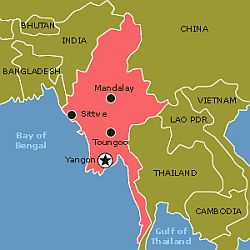
- KWAT: Kachin Women's Association Thailand
- The Burma Campaign
- A Burma Primer | Pulitzer Center on Crisis Reporting
November 14, 2012 by Caroline D'Angelo
- The History of Burma
- Burma | U.S. Department of State
- Brief Modern History of Burma | Berkeley
- Political and Economic History of Myanmar | San Jose State University
- Online Burma Library
Annotated and classified links to more than 30,000 full-texts documents on Burma/Myanmar
- New Taigress
- Blood Foundation
Blood Foundation is an education-based NGO on the Thai-Burma border. Our aim is to increase the opportunity for education for ethnic minority children and adults. Currently we serve the Shan (Dai), Lahu, and Palaung (Dara-ang) peoples in our area by providing free classes in the village setting and scholarships for children in the orange farms of Fang.
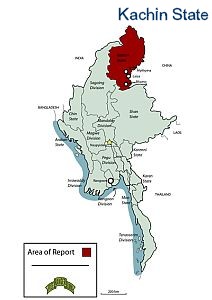
- Free Burma Rangers
The Free Burma Rangers regularly produce reports on the situation inside Burma.
- Democratic Voice of Burma
An independent Burmese news organization
- Karen News
- The Burma Campaign UK
For Human Rights, Democracy and Development in Burma (Myanmar)
- CCHR|Cambodian Center for Human Rights
- U.S. Committee for Human Rights in North Korea
- HRNK: Committee for Human Rights in North Korea | Blogspot
- David Hawk: Human Rights and International Relations Expert
- Korea hidden gulags | Free E-Books Download
- The Hidden Gulag | The Online Books Page - UPENN
Exposing North Korea's Prison Camps: Prisoners Testimonies and Satellite Photographs
- North Korean secret gulags thought to hold 200,000 Political Prisoners | May 4, 2011 - The Australian
- Open Democracy Net
- Foreign Prisoners Support Service
- Physicians for Human Rights
- Welcome to the Hague Tribunal
- NetAction's Virtual Activist Training Guide
- The Human Rights Center | University of Minnesota
- HumanRights.gov
- United for Human Rights
- United to End Genocide
- Action Aid
ActionAid is a global movement of people working together to further human rights and defeat poverty for all.
- Wikipedia
- IFLA: International Federation of Library Associations and Institutions
- The Noam Chomsky Website
- Noam Chomsky Archive
- World Court Project
The World Court Project is a collaborative effort of international lawyers and volunteer activists seeking a decision that nuclear weapons are illegal.
- The World Court Project | Disarmament and Security Centre
- International Court of Justice
The principle judicial organ of the United Nations
- ICTY: International Criminal Tribunal of the former Yugoslavia
- International Criminal Tribunal for Rwanda
- War Criminal Watch | Coalition for International Justice
- New England Center for International Law and Policy
- GHRC-USA: Guatemala Human Rights Commission/USA
- Amnesty International USA
- Business & Human Rights Resource Centre
Tracking the positive and negative impacts of 5100 companies worldwide.
- World Organization Against Torture
- Concise Guide to Human Rights on the Internet | 1998
- APT: Association for the Prevention of Torture
- Human Rights in China
- China Human Rights
- Human Rights in South Asia: Selected Internet Resources
- Human Rights Web Home Page
- OneWorld.net (US): Beyond Your Own Borders
- Human Rights Forum
News service dedicated to Human Rights all over the world.
- NAACP: National Association for the Advancement of Colored People
- SPLC: Southern Poverty Law Center
The Southern Poverty Law Center is a nonprofit civil rights organization dedicated to fighting hate and bigotry, and to seeking justice for the most vulnerable members of society.
- SPLC: Southern Poverty Law Center
Activities, Agendas and Worldview by Jacob Laskin
- The Civil Rights Act of 1964 | Wikipedia
- ACLU: American Civil Liberties Union
- BHHRG: British Helsinki Human Rights Group
- Interights -- The International Centre For the Legal Protection of Human Rights
- The Center for International Human Rights Law | Northwestern University
- Human Rights Watch
- Tibettruth
A not-for-profit network of individuals who support justice, human rights and independence for the peoples of Tibet and East Turkestan.
- Achieving Emotional Health and Personal Growth Through Self Help
- UN Women | United Nations Entity for Gender Equality and the Empowerment of Women
- AIUK: China: Thousands at Risk of Forced Sterilization | April 22, 2010 - Amnesty.org
- Govt. White Papers - Human Rights in China
Compliments of Information Office of the State Council of the People's Republic of China, November 1991, Beijing
- The Avalon Project at the Yale Law School
- Genocide Watch
- Genocide Research Project | Northern Arizona University
- Centre for the Study of the Holocaust, Genocide and Human Rights | Webster University
- Colombia Support Network
The Colombia Support Network is a non-governmental organization striving to improve the human rights situation in Colombia and build solidarity between the peoples of North America and Colombia.
- Ethnic Cleansing in Progress: War in Nagorno Karabakh
- United Human Rights Council
- Statistics of Turkey's Genocide and Mass Murder | by R. J. Rummel
- Hellenic Resources Net
- Turkish Crimes
- Armenian Assembly of America
- International Military Tribunal for the Far East | Wikipedia
- International Military Tribunal for the Far East Charter | The Faculty of Law - University of Oslo
- Treaty Database
The Treaty Database provides a broad collection of multilateral treaties selected from all relevant areas of international law.
- Human Rights Server
also in French and German
Telecommunications|Censorship|Intellectual Freedom|Privacy
- Petition: President Obama: Don't Kill the Internet | May 18, 2014 - Democracy for America
"Big corporations like AT&T, Comcast, and Verizon want to control what you
see online. They want to charge content providers, like Netflix or YouTube, for
carrying their traffic. Right now, the FCC is considering changing the rules to
allow them to do just that.
"The Internet has been crucial to building progressive power in America. Without it, we would have been defeated by corporate cash long ago. The billionaires want to control the Internet and tilt the playing field in their favor -- that's why It's time to stand up to the 1% and corporate control over the Internet."
Net Neutrality is a principle that says that Internet users, not Internet service providers (ISPs), should be in control. It ensures that Internet service providers can’t speed up, slow down, or block web content based on its source, ownership, or destination.
- Verizon Killed Net Neutrality, but the FCC can Save it | Petition to FCC Chair Tom Wheeler
Tell FCC Chair Tom Wheeler: Reclassify broadband as a telecom service and stop the corporate takeover of the internet; enact strong Net Neutrality protections.
- Truthout.org
- Edward Snowden
- The NSA Leaks and the Pentagon Papers: What's the Difference Bewteen Edward Snowden and Daniel Ellsberg?
June 15, 2013 - The Atlantic
- Daniel Ellsberg's Website
- WikiLeaks
- About
"One of our most important activities is to publish original source material alongside our news stories so readers and historians alike can see evidence of the truth."
- The Intercept | Dispatches by Glenn Greenwald
- Glenn Greenwald’s The Intercept Launches With Purpose, Linking ‘Shady’ NSA to Drones
February 10, 2014 - The New York Times
Documentaries
- Watch Free Documentary Online - "The War You Don't See" | Top Documentary Films
A powerful and timely investigation into the media's role in war, tracing the history of embedded and independent reporting from the carnage of World War One to the destruction of Hiroshima, and from the invasion of Vietnam to the current war in Afghanistan and disaster in Iraq.
- "The Strange Silencing of Liberal America" | by John Pilger | Global Research
- "Shadows of Liberty" Home
- "Terms and Conditions May Apply" (2013) Trailer | YouTube
- Link TV
Since its founding in 1999, Link TV has been providing a unique perspective on international news, current events, and diverse cultures, presenting issues not often covered in the US media.
- News & Current Affairs Programming
Link TV delivers international news from diverse sources around the world, and presents a wide array of viewpoints not found in the mainstream media. By looking at the news the way the rest of the world sees it, we offer an inside-out perspective on global affairs and show how America is perceived in other countries.
- Free Speech TV
Free Speech TV is an independent, 24-hour television network and multi-platform digital news source with news, stories and perspectives you won’t find anywhere else.
- Democracy Now!
- History of the Internet
- Welcome to the United States Department of Justice
- The National Security Archive
- Complete Email Addresses for Congress/House, Senate, Governors & State Legislatures
- The Communications Act of 1934
Justice Information Sharing - US Department of Justice
- Communications Act of 1934 | PDF File
An ACT To provide for the regulation of interstate and foreign communication by wire or radio, and for other purposes.
- The Communications Act Policy Towards Competition: A Failure to Communicate | PDF File - Duke Law Journal
- Cable Telecommunications Act of 1982
A bill to amend the Communications Act of 1934 | GovTrack
- The U.S. Telecommunications Act of 1996
This act will significantly affect all players in the telecommunications industry. The first major legislative change since the original 1934 Act lays out a new regulatory landscape for the Information Age. By Joseph L. Gattuso.(*)
"Additional provisions include ... prevent(ing) undue concentration in television and radio ownership so that a diversity of voices and viewpoints can continue to flourish, through modified ownership limits."
- Communications Law | Golden Gate University Law Review | PDF File
- Location, Location, Location: Updating the Electronic Communications Privacy Act to Protect Geolocational Data
Golden Gate University Law Review - Vol. 43 - Iss.3 (2013)
- Privacy: An Overview of the Electronic Communications Privacy Act
PDF File - Oct. 09, 2012 - Charles Doyle - Senior Specialist in American Public Law - Congressional Research Service
- ECPA: Electronic Communications Privacy Act of 1986
Justice Information Sharing - US Department of Justice
- FCC: Federal Communications Commission
- RIPE (European IP Networks) Network Coordination Centre
- Ask a Librarian about Government Information | Berkeley
- Clark Library | University of Michigan
- Find Lawyers, Laws, Legal Jobs - Global Legal Resources
- List of Central & Eastern Europe (CEE) & CIS Telecom Regulatory Authorities
- List of Telecommunications Regulatory Bodies | Wikipedia
- Telecommunication Policy Overview in Sweden | NewAmerica.net | Open Technology Initiative
- Intellectual Security | Intellectual Property News
- The Charters of Freedom | Archives
- U.S. Patent and Trademark Office
- Patent, Trademark and Trade Secret
FindLaw - for legal professionals
- U.S. Copyright Office
- Public Knowledge | Fighting For Your Digital Rights in Washington
- WIPO: World Intellectual Property Organization
- The European Commission >> Internal Market >> Copyright
Copyright and Neighbouring Rights
- Find Legal Information | Worldwide Legal Directories
- Researching Intellectual Property Law in the Russian Federation
- Copyright and Intellectual Protection for Indigenous Heritage
- Intellectual Property Office -- Copyright -- UK
- WTO | TRIPS
Trade related aspects of intellectual property rights
- The International Telecommunication Union
ITU is the leading United Nations agency for information and communication technology issues, and the global focal point for governments and the private sector in developing networks and services.
- VII Virtual Institute of Information
"The Source for Telecommunications, Cybercommunications and Mass Media Research."
- American Communication Association WWW
"The AMERICAN COMMUNICATION ASSOCIATION is the national professional organization of scholars, students, and practitioners in the field of communication studies. This site provides information about the ACA, a collection of materials on communication law and
First Amendment issues, resources for teaching and research in communication studies, and an extensive reference resource page for scholars and activists."
- Technology Policy Institute -- Studying the Global Information Economy
- The Internet and Computer-Mediated Communication
- The Network Startup Resource Center (NSRC)
NSRC is a non-profit activity that has worked since the late 1980s to help develop and deploy networking technology in various projects throughout Asia/Pacific, Africa, Latin America and the Caribbean, the Middle East, and the New Independent States.
- The Global Information Highway Limited
"To Promote the Information Highway on a Global Scale."
- Intelsat Epic Next Generation Satellite Platform
- Commercialization of Space | Wikipedia
- Communication Networks | Wikibooks
- Journals in Computer Communications and Networks | Springer
- Journal of Computer Networks & Communications
- A San Francisco Bay Area Progressive Directory
A highly cross-indexed guide to about 1200 organizations in the San Francisco Bay Area that may be of interest to progressive activists, plus links to other progressive web sites elsewhere.
[There are 400 index keywords listed at this site, *government* is just one of them:]
- Progress Now
ProgressNow works with our states partners to promote progressive ideas and causes through earned media strategies and cutting-edge new media.
- Electronic Frontier Foundation (EFF)
On their home page are two search engine windows, top and bottom. Typing "government" will return a long list of very interesting results.
Read the prophetic novel A Scanner Darkly | by Philip K. Dick.
- Internet Crime Complaint Center (IC3)
- Internet Law Library and Court Decisions
The Internet Law Library, authored exclusively by Martin H. Samson, features extensive summaries of over 600 court decisions shaping the law of the web; providing facts, analysis and pertinent quotes from cases of interest to those who do business on the Internet and in New Media.
- Electronic Frontiers Australia
- Internet Society (ISOC)
- Internet Censorship: List of Countries with No Press Freedom
The Kassandra Project: freedom against disinformation
- Top Ten Countries Censoring the Web
- Reporters Without Borders
- Press Freedom Online: Committee to Protect Journalists
- Welcome to Freedom House
Freedom House is an independent watchdog organization that supports the expansion of freedom around the world.
- CISPA: Cyber Intelligence Sharing and Protection Act
Wikipedia | "The legislation was introduced on November 30, 2011 by U.S. Representative Michael Rogers (R-MI) and 111 co-sponsors. It was passed in the House of Representatives on April 26, 2012. President Obama has argued that the bill lacks confidentiality and civil liberties safeguards and has threatened to veto it."
- Permanent Select Committee on Intelligence | U.S. House of Representatives
- H.R. 3523: Cyber Intelligence Sharing and Protection Act
PDF File | United States Government Printing Office verified document
- Bill Text: 112th Congress: H.R. 3261: SOPA: Stop Online Piracy Act
- SOPA Explained: What it is and why it matters
CNN, January 17, 2012
- FISA | Foreign Intelligence Surveillance Act | FAS
- FISA: Foreign Intelligence Surveillance Act | Wikipedia
- Domestic Surveillance: The History of Operation CHAOS | by Verne Lyon
Verne Lyon is a former CIA undercover operative
- NSA Questioned on Scope of Domestic Surveillance
- The Surveillance Studies Network
The International Research and Information Network on Surveillance
- DOD: Strategy for Homeland Defense and Civil Support
PDF File
- Freedom Forum Institute
Free Press, Free Speech, Free Spirit | News & Information
- EPIC: Electronic Privacy Information Center
"The Electronic Privacy Information Center is a public interest research center in Washington, DC. It was established in 1994 to focus public attention on emerging civil liberties issues relating to the National Information Infrastructure, such as the Clipper Chip, the Digital Telephony proposal, medical record privacy, and the sale of consumer data."
- Best VPN Services 2019: What’s Safe to Use
In this post we will dive into the best secure VPN services to consider if you’re looking for private browsing or a way to protect yourself from hackers.
- Defending Rights & Dissent
- Global Internet Liberty Campaign HOME
- Amnesty International USA
Try performing a SEARCH on "censorship."
- How Internet Censorship Works
"Internet Censorship at the International Level"
- Index on Censorship
Britain's leading organization promoting freedom of expression
- The Ultimate Guide to Internet Censorship | Last Updated: 16 October 2018 | WizCase
- Internet Censorship: Law & Policy Around the World
- Protectionism Online: Internet Censorship and International Trade Law | PDF File
- Article 19: Global Campaign for Free Expression
- World Socialist Web Site
- Information for Social Change Journal
Information for Social Change is an activist organisation that examines issues of censorship, freedom and ethics amongst library and information workers.
- EDRI | Digital Civil Rights in Europe - Protecting Digital Freedom
- European Civil Liberties Network
"Oppose the Stockholm Programme" -- PDF File
- EUROPA | Committee on Civil Liberites, Justice and Home Affairs
- ACLU: American Civil Liberties Union
- Cryptome
- Government Secrecy Links | FAS: Federation of American Scientists
- Inside ECHELON
The history, structure und function of the global surveillance system known as Echelon.
- American Library Association
- The "New economy" and Information Technology Policy
by Pamela Sanderson and Hal Varian of UC Berkeley -- PDF File
- Intellectual Freedom Resources for Libraries | Binghamton University
- Intellectual Freedom Resources in the Library | James P. Adams Library - Rhode Island College
- Ethics, Values, Intellectual Freedom | Dalhousie University Library
- Intellectual Freedom Manual - Eighth Edition - Academic Libraries and Intellectual Freedom
- Intellectual Freedom Manual | NIH
- Cyber-Rights & Cyber-Liberties (UK)
- NARA: U.S. National Archives & Records Administration
- National Lawyers Guild
"The National Lawyers Guild is an association dedicated to the need for basic change in the structure of our political and economic system. The Guild unites lawyers, law students, and legal workers as an effective political and social force in the service of the people."
- People for the American Way
- Right Wing Watch
- Political Research Associates - Challenging the Right - Advancing Social Justice
Political Research Associates is a social justice think tank devoted to supporting movements that are building a more just and inclusive democratic society. We expose movements, institutions, and ideologies that undermine human rights.
Government & Media|Transparency - Propaganda|Watchdogs & Whistleblowers
For specifically U.S. Government Sites, go to the Government Page in the library.
The Senate Committee's Report on the CIA's Use of Torture
December 9, 2014 - The New York Times
The Senate Just Released the CIA Torture Report. Read the Full Document
December 9, 2014 - Mother Jones
CIA torture program: Senate report details abuse of detainees -- as it happened
December 9, 2014 - The Guardian
Health Care and Climate: President Obama'a Big Deals | Paul Krugman - The New York Times
Edward Snowden
The NSA Leaks and the Pentagon Papers: What's the Difference Bewteen Edward Snowden and Daniel Ellsberg?
June 15, 2013 - The Atlantic
Pentagon Papers | Wikipedia
Daniel Ellsberg's Website
WikiLeaks
- About
"One of our most important activities is to publish original source material alongside our news stories so readers and historians alike can see evidence of the truth."
The Intercept | Dispatches by Glenn Greenwald
Glenn Greenwald’s The Intercept Launches With Purpose, Linking ‘Shady’ NSA to Drones
February 10, 2014 - The New York Times
S.743: Whistleblower Protection Enhancement Act of 2012 - TEXT | Congress.Gov
Presidential Policy Directive | PDF File
"This Presidential Policy Directive ensures that employees (1) serving in the Intelligence Community or (2) who are eligible for access to classified information can effectively report waste, fraud, and abuse while protecting classified
national security information. It prohibits retaliation against employees for reporting waste, fraud, and abuse."
Once and For All, There’s No Such Thing as “The War on Whistleblowers” and Here’s Why
By Bob Cesca - October 27, 2014 - The Daily Banter
The Government War Against Reporter James Risen
By Norman Soloman and Marcy Wheeler - October 8, 2014 - The Nation
James Risen calls Obama 'greatest enemy of press freedom in a generation'
By Joanna Walters - August 17, 2014 - The Guardian
James Risen | November 4, 2014 - The Huffington Post
Stories of James Risen | Techdirt
Charting Obama’s Crackdown on National Security Leaks
By Cora Currier - July 30, 2013 - ProPublica
Iran Sanctions
Iran completes process of eliminating enriched uranium | July 20, 2014 - BBC
"American Coup" -- A documentary film about the CIA's first coup -- Iran, 1953
The first phone company to publish a transparency report isn’t AT&T or Verizon | January 9, 2014 - The Washington Post
CREDO Transparency Report - 2013
Verizon Killed Net Neutrality, but the FCC can Save it | Petition to FCC Chair Tom Wheeler
Tell FCC Chair Tom Wheeler: Reclassify broadband as a telecom service, and stop the corporate takeover of the internet; enact strong Net Neutrality protections.
15 Things Everyone Would Know if There Were a Liberal Media | August 7, 2013 - The Daily Kos
The Smirking Chimp
News & Commentary from the Vast Left-Wing Conspiracy
Documentaries
- "Pricele$$" - The Movie - Home
PRICELE$$, a new documentary, is a filmmaker’s personal journey across America to answer a burning question: why are some of our government’s most basic policies, like food and energy, so out-of-date . . . and can anything be done about it?
- "Patriocracy" - The Movie
PATRIOCRACY explores the extreme polarization in America that cripples the country from tackling its most serious problems. Whether it's the national debt, healthcare reform, the war on terror or illegal immigration, Americans are shouting at each other instead of listening to each other.
- "Patriocracy" | Watch Free Online | Kickstarter
- Sponsors:
- No Labels.org
No Labels is a growing citizens’ movement of Democrats, Republicans and independents dedicated to promoting a new politics of problem solving.
- MoveOn.org
For over 14 years, the MoveOn family of organizations have used online tools to lower the barriers to participation in our democracy, so real Americans have a voice in a political process where big money and corporate lobbyists wield too much influence.
- The Ruckus Society
The Ruckus Society provides environmental, human rights, and social justice organizers with the tools, training, and support needed to achieve their goals through the strategic use of creative, nonviolent direct action.
- Public Citizen
Public Citizen advocates for a healthier and more equitable world by making government work for the people and by defending democracy from corporate greed.
- Film Review - "Patriocracy" by Chris Barsanti on March 1, 2012 | Film Journal International
- Move to Amend
On January 21, 2010, with its ruling in Citizens United v. Federal Election Commission, the Supreme Court ruled that corporations are persons, entitled by the U.S. Constitution to buy elections and run our government. Human beings are people; corporations are legal fictions.
- Recommended Documentaries
"We suggest the following films as great educational resources on corporate power (many additional films are also listed on the website Films for Action)." Their tag line is: Films For Action Presents: The Top 100 Documentaries
Inspiring the Shift to a Sustainable Paradigm
- Videos | Move to Amend
- Watch Free Documentary Online - "The War You Don't See" | Top Documentary Films
A powerful and timely investigation into the media's role in war, tracing the history of embedded and independent reporting from the carnage of World War One to the destruction of Hiroshima, and from the invasion of Vietnam to the current war in Afghanistan and disaster in Iraq.
- John Pilger's Website
- "The Strange Silencing of Liberal America" | by John Pilger | Global Research
- "Shadows of Liberty" Home
- Video | Special: "Ethos - A Time for Change" | LinkTV
Hosted by twice Oscar nominated actor and activist Woody Harrelson, Ethos lifts the lid on a Pandora's Box of systemic issues that guarantee failure in every aspect of our lives, from the environment to our democracy and our own personal liberty.
- Link TV
Since its founding in 1999, Link TV has been providing a unique perspective on international news, current events, and diverse cultures, presenting issues not often covered in the US media.
- News & Current Affairs Programming
"Link TV delivers international news from diverse sources around the world, and presents a wide array of viewpoints not found in the mainstream media. By looking at the news the way the rest of the world sees it, we offer an inside-out perspective on global affairs and show how America is perceived in other countries."
- Documentaries
Campaign finance reform | Wikipedia
The Corrosive Influence of Big Money | Occupy Natick
Robert Francis Kennedy, Jr. said, “Today, more than ever, it is critical for American citizens to understand the difference between the free-market capitalism that made our country great and the corporate cronyism that is now corrupting our political process, strangling democracy and devouring our national treasures."
Citizens United v. Federal Election Commission
Petition for a Constitutional Amendment to Overturn the U.S. Supreme Court’s
Anti-Democratic McCutcheon v. FEC and Citizens United v. FEC Rulings
Public Citizen
McCutcheon v. FEC: Federal Election Commission
Buckley v. Valeo | Wikipedia
The United States of Corporate America: From Democracy to Plutocracy
January 22, 2010 - Prof. Rodrique Tremblay - Global Research
Testing Theories of American Politics: Elites, Interest Groups, and Average Citizens
PDF File - April 9, 2014 - Martin Gilens - Princeton University
Web of Deceit by Mark Curtis
"Britain’s Real Role in the World: In his explosive new book, Mark Curtis reveals a new picture of Britain’s role in the world since 1945 and in the “war against terrorism” by offering a comprehensive critique of the Blair government’s foreign policy. Curtis argues that Britain is an “outlaw state”, often a violator of international law and ally of many repressive regimes."
Web of Deceit: Britain's Real Role in the World by Mark Curtis | Caroline Lucas - The Guardian
Free Speech TV
Free Speech TV is an independent, 24-hour television network and multi-platform digital news source with news, stories and perspectives you won’t find anywhere else.
Democracy Now!
Media Ownership
US PIRG: United States Public Interest Research Group - The Federation of State Pirgs
U.S. PIRG is a consumer group that stands up to powerful interests whenever they threaten our health and safety, our financial security, or our right to fully participate in our democratic society.
Public Interest Research Group | Wikipedia
Includes directory of state PIRGS
DEMOS - An Equal Say and An Equal Chance For All
Demos is a public policy organization working for an America where we all have an equal say in our democracy and an equal chance in our economy.
On The Issues - Every Political Leader on Every Issue
DATA.Gov | The home of the U.S. Government's open data
Here you will find data, tools, and resources to conduct research, develop web
and mobile applications, design data visualizations, and more.
H.R.1: American Recovery and Reinvestment Act of 2009
Bill Text Versions - 111th Congress | Library of Congress - Thomas
H.R.1: American Recovery and Reinvestment Act of 2009
PDF File - U.S. Government Printing Office
Recovery.gov
The site, created by the American Recovery and Reinvestment Act of 2009, displays information about the Recovery Accountability and Transparency Board's activities, as well as data related to the $840 billion stimulus bill and information about the distribution and spending of Hurricane Sandy funds.
U.S. General Services Administration
Public Accountability Initiative
The Public Accountability Initiative (PAI) is a nonprofit, nonpartisan research and educational organization focused on corporate and government accountability. We specialize in investigative, public interest research on power and corruption at the intersection of business and government.
- LittleSis.org
We bring transparency to influential social networks by tracking the key relationships of politicians, business leaders, lobbyists, financiers, and their affiliated institutions. We help answer questions such as:
Who do the wealthiest Americans donate their money to?
Where did White House officials work before they were appointed?
Which lobbyists are married to politicians, and who do they lobby for?
"Corruption in America" by Zephyr Teachout | Harvard University Press
Backstabber Report
"BackstabberReport.com was created for the benefit and enjoyment of those who have been backstabbed by a friend, co-worker, family member, or anyone else. With the blog and forum our members can tell their story and vent, or simply give advice to others who may be currently having the same problem already experienced by another."
Koch-backed political coalition, designed to shield donors, raised $400 million in 2012
By Mateo Gold - January 5, 2014 - The Washington Post
What you should know about the intelligence community's contractors | June 10, 2013 - ThinkProgress
Booz Allen Hamilton: 70% of the U.S. Intelligence Budget Goes to Private Contractors
Outsourced Intelligence: How the FBI and CIA Use Private Contractors to Monitor Social Media | Truthout.org
Top Stories: Most Analysis of Spy Data is Done by Private Contractors | AllGov
The corporate takeover of U.S. intelligence | June, 2007 - Salon.com
The U.S. government now outsources a vast portion of its spying operations to private firms -- with zero public accountability.
Latest Corporate Research | Crocodyl
The Role of Private Corporations in the Intelligence Community | Belfer Center
John F. Kennedy School of Government
Prying Private Eyes | June 19, 2013 - New York Times
CPI: Center for Public Integrity | Investigative Journalism
A non-profit public interest group based in Washington, D.C.
Sunlight Foundation - Making Government Accountable & Transparent
AllGov.com
Provides up-to-date news about more than 340 departments and agencies of the U.S. government, most of which operate under the radar of the media, even when they have annual budgets of billions of dollars. AllGov tells you what each agency says it does, what it really does, and who is making a profit from the agency. It also gives a history of the agency, illuminates controversies relating to the agency and shares critiques and suggested reforms from both the left and the right.
ALEC: American Legislative Exchange Council | Limited Government - Free Markets - Federalism
PR Watch | Reporting on spin and disinformation since 1993
- The Center for Media and Democracy
- SourceWatch
The Center for Media and Democracy publishes SourceWatch, this collaborative resource for citizens and journalists looking for documented information about the corporations, industries, and people trying to influence public policy and public opinion.
ALEC Exposed
"The American Legislative Exchange Council (ALEC) describes itself as the largest “membership association of state legislators,” but over 98% of its revenue comes from sources other than legislative dues, primarily from corporations and corporate foundations."
"Ag Gag" Bills and Supporters Have Close Ties to ALEC | Green is the New Red
OpenSecrets.org: Money in Politics -- See Who's Giving and Who's Getting
ThinkProgress
Democracy Now!
Democracy Now! is a national, daily, independent, award-winning news program hosted by journalists Amy Goodman and Juan Gonzalez.
The Hill
The government-watchdogs Daily
Category: Government Watchdog Groups in the United States | Wikipedia
Government Watchdog Tools | Watchdog Research Links
National Priorities Project
National Priorities Project (NPP) makes our complex federal budget transparent and accessible so people can exercise their right and responsibility to oversee and influence how their tax dollars are spent.
Watchdog.org
Watchdog by State listed at bottom of page
Activism.net
FDLP | Federal Depository Library Program
Government Accountabilty Project (GAP)
Protecting Corporate, Government, & International Whistleblowers since 1977
"The Government Accountability Project’s mission is to promote corporate and government accountability by protecting whistleblowers, advancing occupational free speech, and empowering citizen activists."
- Corporate & Financial Accountability
"GAP’s Corporate & Financial Accountability program aims to hold businesses accountable by defending whistleblowers from within companies, publicizing wrongdoing and threats to the public welfare, and advocating for the reform of organization policies and legal protections."
The Project On Government Oversight
"The Project On Government Oversight (POGO) is an independent nonprofit that investigates and exposes corruption and other misconduct in order to achieve a more effective, accountable, open, and ethical federal government."
Government Accountability Project
from the Mercatus Center at George Mason University
"The Government Accountability Project has a strong interest in identifying how effectively various federal programs accomplish their intended results. We are now focusing our efforts on three key program areas of the U.S. Environmental Agency: Clean Air, Clean Water, and Ecosystem Health."
Congress.org
This site allows Internet users to access a complete and reliable directory of information about the members of the U.S.House of Representatives and the U.S. Senate.
OpenCongress - 112th Congress - Track bills, votes, senators, and representatives
Common Cause | "Holding Power Accountable"
Chairman: Professor Robert Reich | Find State Organizations - Find Elected Officials
WashingtonWatch
Washingtonwatch.com tracks your representatives and the bills in Congress they introduce, providing estimates of their costs or savings when available.
Judicial Watch
Citizens for Responsibility and Ethics in Washington
OMB Watch
A nonprofit research, educational, and advocacy organization that focuses on budget issues, regulatory policy, nonprofit advocacy, access to government information, and activities at the Office of Management and Budget (OMB).
The First Amendment Coalition
The First Amendment Coalition is an award-winning, nonprofit public interest organization dedicated to advancing free speech, more open and accountable government, and public participation in civic affairs.
OpenSecrets.org: Money in Politics
The Concord Coalition
The Concord Coalition is a nonpartisan, grassroots organization advocating fiscal responsibility while ensuring Social Security, Medicare, and Medicaid are secure for all generations.
The Henry J. Kaiser Family Foundation
Not actually a 'watch dog,' but is a source of valuable information on health care issues.
Center for American Progress
"Investigative Journalism in the Public Interest"
Progress Now
ProgressNow works with our states partners to promote progressive ideas and causes through earned media strategies and cutting-edge new media.
Pew Research Center: U.S. Politics & Policy
The Center is an independent opinion research group that studies attitudes toward the press, politics and public policy issues.
From The Wilderness Publications
"Events since Sept 11, 2001 have shown that FTW has been ahead of the curve in predicting the current energy crisis and Peak Oil. We offer our readers an accurate map of how the world works, unfiltered by preconception."
STUNNING: Comparing U.S. & World Covers for TIME Magazine | The Daily Kos
Each week, TIME Magazine designs covers for four markets: the U.S., Europe, Asia and the South Pacific. Often, America's cover is quite, well – different.
Media Matters for America
CapitolStrategy.Com | Washington's Political Portal | A comprehensive news source, all medias
Journalism and Hidden Agendas | NPR
100 Key Ethics & Media Law Resources for Journalists
Thanks to Nancy Hubbard
Propaganda Analysis Home Page
Fairness & Accuracy in Reporting | The National Media Watch Group
Mondo Times - The Worldwide News Media Directory
Over 33,000 media outlets in 213 countries
Breaking News & Opinion on the Hufington Post
The Internet Newspaper | NEWS Blogs Video Community
Investigative Newsource
Our mission is to produce investigative journalism that informs citizens of Southern California. We are collaborative, not competitive, and seek to distribute our work throughout the region, across multiple media platforms.
Arab League | International Democracy Watch
Palestinian Media Watch
Pacific Media Watch
Pacific Media Watch is an independent, non-profit, non-government organisation comprising a network of journalists, academics, teachers, lawyers, editors, media workers and others, dedicated to examining issues of ethics, accountability, censorship, media freedom and media ownership in the Pacific region.
The Libertartian Party: Home Page
What is Libertarian? Institute for Humane Studies
INGOs & NGOs|Foundations
Union Of International Associations
[Clearing house for information on over 40,000 international non-profit organizations and constituencies.]
The UIA is committed to the dissemination of information concerning the network of world problems, the strategies advocated to deal with them, the values guiding such initiatives, and the different understandings of human potential from which these values derive. It is especially concerned with providing information on the networks of relevant international bodies in each case.
Official Sites of our World - 123World
List of all available NGOs | UNODC
List of Accredited NGOs | Australian Government -AusAID
Worldwide NGO Directory
NGO Databases & Directories
Online Directory of World NGOs
Nongovernmental Organizations
NGO Global Network
NGONET
An electronic resource for NGOs in Central and Eastern Europe and the former Soviet Union.
Directory of Development Organizations
Annotated List of Funding Sources | PDF File
The Foundation Center
"Your Gateway to Philanthropy on the World Wide Web."
Foundations and Grantmakers
International Grants & Funding
CABI
A not-for-profit science-based Development & Information Organization
ICVA: International Council of Voluntary Agencies
Philanthropy News Network
The Philanthropy News Network links nonprofits & technology through PNN Online, Nonprofits & Technology Conference and Seminar Series and Nonprofits & Technology, a free monthly newspaper.
Internet Resources for Nonprofit Organizations
Funding resources for organizations and sponsored individuals.
Guidestar
Database of Nonprofit Organizations. Something of a watchdog.
"You see, we gather and publicize information about nonprofit organizations. Our reach is far and wide. Our database is broad and deep."
The Chronicle of Philanthropy
The Newspaper of the Non-Profit World
Charity Watch | Formerly: The American Institute of Philanthropy
Bill & Melinda Gates Foundation

The Iraq Foundation Website
Iraq Watch
Iraq Watch is published by the Wisconsin Project on Nuclear Arms Control.
As of August 2006, Iraq Watch is no longer being updated.
International Volunteer Programs Association
Welcome To Idealist.org
"Action Without Borders" is a global network of individuals and organizations working to build a world where all people can live free and dignified lives in a healthy environment.
Think Tanks|Networks
Foreign Powers Buy Influence at Think Tanks | September 6, 2014 - The New York Times
Think Tank Funding -- An Overview of Current Debate | PDF File
The Secret Donors Behind the Center for American Progress and Other Think Tanks
May 21, 2013 - The Nation
Washington institutions esteemed for their independent scholarship don’t disclose donations from corporations and foreign government.
National Political Index
The National Political Index is a web site which provides an index of substantive political information for voters, political activists, political consultants, lobbyists, politicians, academicians, and media editors with a wide range of products, information, services, simulations, games, and polling in an interactive communications environment.
NIRA: National Institute for Research Advancement (Japan)
The National Center for Public Policy Research - A Conservative Organization
The National Center for Public Policy Research is a communications and research foundation supportive of a strong national defense and dedicated to providing free market solutions to today's public policy problems.
State Policy Network
State Policy Network (SPN) is the professional service organization for America's state-based, free market think tank movement.
The Reflection Cafe | World's Best Think Tanks
UPENN Rankings
State Policy Network | Right Wing Watch
The Progress & Freedom Foundation
The Progress & Freedom Foundation is a market-oriented think tank that studies the digital revolution and its implications for public policy. Its mission is to educate policymakers, opinion leaders and the public about issues associated with technological change, based on a philosophy of limited government, free markets and civil liberties.
CRITO: Center for Research Technology & Organizations
From Univeristy of California - Irvine
EDIRC
Economics Departments, Institutes, and Research Centers in the World
University of Connecticut, Department of Economics
WheretodoResearch.com
World Press Review
World Think Tank Directory
Explore Government Documents
Think Tanks and Research Institutes
compilation by Colgate University
IPPR: Institute for Public Policy Research
The Uk's leading progressive thinktank
RAND
The Jamestown Foundation
The CATO Institute
Public Policy Analysis, Limited Government, Free Markets
CSIS
Since 1962, the Center for Strategic and International Studies (CSIS) has been dedicated to providing world leaders with strategic insights on — and policy solutions to — current and emerging global issues.
CIAO
Columbia International Affairs Online
Center for the New Europe
Policy Experts
"The Insider Guide to Public Policy Experts and Organizations"
Think Tanks & Policy Centers
IPN: International Policy Network
International Policy Network (IPN) is a non-profit, non-governmental organisation whose mission is to encourage the sharing of ideas by intellectuals and others interested in public policy issues, especially those having international implications.
The Arab American Institute
The Arab American Institute (AAI) is a nonprofit organization committed to the civic and political empowerment of Americans of Arab descent. AAI represents the policy and community interests of Arab Americans throughout the U.S. through two primary focus areas: campaigns and elections, and policy formulation and research.
Woodrow Wilson International Center for Scholars
The Woodrow Wilson International Center for Scholars aims to unite the world of ideas to the world of policy by supporting pre-eminent scholarship and linking that scholarship to issues of concern to officials in Washington.
World Policy Institute
Open Society Institute and Soros Foundations Network
The Open Society Institute (OSI) is a private operating and grantmaking foundation based in New York City that serves as the hub of the Soros foundations network, a group of autonomous foundations and organizations in more than 50 countries. OSI and the network implement a range of initiatives that aim to promote open societies by shaping government policy and supporting education, media, public health, and human and women's rights, as well as social, legal, and economic reform.
American Enterprise Institute for Public Policy Research
"The American Enterprise Institute for Public Policy Research is dedicated to preserving and strengthening the foundations of freedom-limited government, private enterprise, vital cultural and political institutions, and a strong foreign policy and national defense-through scholarly research, open debate, and publications."
Discovery Institute
A Seattle based public policy think tank
The Brookings Institution
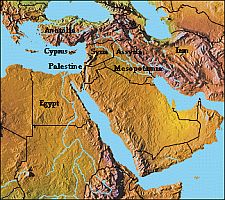
The Washington Institute for Near East Policy
Founded in 1985, The Washington Institute for Near East Policy is a public educational foundation dedicated to scholarly research and informed debate on U.S. interests in the Middle East.
The Middle East Institute
Religious Tolerance.org
Ontario Consultants on Religious Tolerance
The Religious Freedom Page
Welcome to Profnet
"Good sources are hard to find. That's why we created ProfNet, a collaborative of information officers linked by Internet to give journalists free, convenient access to expert sources."
IPCRI
Israel/Palestine Center for Research and Information
The only joint Palestinian-Israeli public policy think tank in the world.
bitterlemons.org - Palestinian - Israeli Crossfire
The Israeli Government's Official Website
Ministry of Foreign Affairs
Foreign Policy in Focus Home Page
A Think Tank Without Walls
Speakout.com
Politics, Activism, Political Issues, Government & Elections
FreeTheWorld.COM
The Economic Freedom Network
Harvard's John F. Kennedy School of Government
The Carter Center: Advancing Human Rights & Allevaiting Suffering
- Health Programs
A leader in the eradication and elimination of diseases, the Center fights six preventable diseases — Guinea worm, river blindness, trachoma, schistosomiasis, lymphatic filariasis, and malaria — by using health education and simple, low-cost methods.
Science Organizations|Scientists
For science links on a specific subject
-- [Biology, Physics, Chemistry, Astronomy, Geosciences, Mathematics] --
go to the Science Page in the library.
Executive Office of the President
CSPI: The Center for Science in the Public Interest
CSPI is a consumer advocacy organization whose twin missions are to conduct innovative research and advocacy programs in health and nutrition, and to provide consumers with current, useful information about their health and well-being.
U.S. Department of Energy Office of Science
The Office of Science is the single largest supporter of basic research in the physical sciences in the United States, providing more than 40 percent of total funding for this vital area of national importance. It oversees – and is the principal federal funding agency of – the Nation’s research programs in high-energy physics, nuclear physics, and fusion energy sciences.
STPI: Science and Technology Policy Institute
Welcome to TWNSO: Third World Network Of Scientific Organizations
TWNSO is a non-governmental organization founded in 1988 by ministers of science and technology and higher education and heads of science academies and research councils in developing countries to promote science-based sustainable economic development in the South.
- COMSATS SECRETARIAT
The Commission on Science and Technology for Sustainable Development in the South (COMSATS) is an inter-governmental organization, with its Headquarters in Islamabad, Pakistan.
NASA: National Aeronautics and Space Administration
NOAA: National Oceanic and Atmospheric Administration
Center for International Science and Technology Policy
The Center for International Science and Technology Policy (CISTP) is a world leader in international public policy research and education in science, technology, and innovation.
Latest News: ICSU: International Council for Science
Welcome to Council for a Livable World's Home Page
The Council was founded in 1962 by physicist Leo Szilard to combat the menace of nuclear war. Council later expanded our program to include other weapons of mass destruction, both chemical and biological. In the aftermath of the Gulf War, the Board of Directors decided
to create two new programs to work against arms sales to other governments and to build support for U.N. peacekeeping operations.
The National Academies: Advisors to the Nation on Science, Engineering and Medicine
- Board on International Scientific Organizations
The Board on International Scientific Organizations (BISO) oversees a network of more than 20 U.S. National Committees (USNCs) corresponding to the various International Council for Science (ICSU) scientific member bodies in an effort to strengthen U.S. participation in international scientific, engineering, and medical organizations.
The National Academy of Sciences
In 1863, the United States Congress created the National Academy of Sciences to advise the government in scientific and technical matters. The National Academy of Sciences (NAS) is an honorific society of distinguished scholars engaged in scientific and engineering research, dedicated to the furtherance of science and technology and to their use for the general welfare.
National Science Foundation
The National Science Foundation (NSF) is an independent federal agency created by Congress in 1950 "to promote the progress of science; to advance the national health, prosperity, and welfare; to secure the national defense…"
European Science Foundation (ESF)
The European Science Foundation acts as a catalyst for the development of science by bringing together leading scientists and research funding agencies to debate, plan and implement pan-European initiatives.
CERN
The European Organization for Nuclear Research | The World's Largest Particle Physics Laboratory
LHC -- Welcome to the Large Hadron Collider
Fermi National Accelerator Lab
"Fermi National Accelerator Laboratory advances the understanding of the fundamental nature of matter and energy by providing leadership and resources for qualified researchers to conduct basic research at the frontiers of high energy physics and related disciplines."
SLAC National Accelerator Laboratory
Stanford Linear Accelerator Center
NATO Science for Peace and Security Home
The National Academy of Sciences of Belarus
Encyclopedia of Science
The Worlds of David Darling
Stephen Hawking - Official Home Page
Professor Brian Cox - The School of Physics and Astronomy - University of Manchester
Welcome to Explorations in Science with Dr. Michio Kaku - Professor of Theoretical Physics, SUNY
Brian Greene's Official Website - Professor, Columbia University
Summary of "The Elegant Universe"
by Michael C. McGoodwin
How the Universe Works | Watch Free Documentary Online
How the Universe Works | Videos | Discovery Channel
Through the Wormhole hosted by Morgan Freeman | Watch Free Documentary Online
All episodes from Through the Wormhole series gathered in one place.
Open Directory - Science
Association of Science-Technology Centers
The Association of Science-Technology Centers (ASTC) is an organization of science centers and museums dedicated to furthering public engagement with science among increasingly diverse audiences.
AAAS: American Association for the Advancement of Science
is a nonprofit professional society dedicated to the advancement of scientific and technological excellence across all disciplines, and to the public's understanding of science and technology.
The Loka Institute
The Loka Institute is a non-profit research and advocacy organization concerned with the social, political, and environmental repercussions of science and technology.
Science For Peace
Science for Peace is a Canadian organization consisting of natural scientists, engineers, social scientists, scholars in the humanities and people from the wider community.
IASTED: International Association of Science & Technology for Development
A non-profit organization devoted to promoting economic and cultural advancement.
WIGSAT: Women In Global Science & Technology
WIGSAT is a consulting group which promotes innovation, science and technology strategies that enable women, especially those living in developing countries, to actively participate in technology and innovation for development.
UNESCO: United Nations Educational, Social, and Cultural Organization
ICTP: International Center for Theoretical Physics
For more than 45 years, the Abdus Salam International Centre for Theoretical Physics (ICTP) has been a driving force behind global efforts to advance scientific expertise in the developing world.
Knowledge for Development
Observatory on Science, Technology and Innovation for ACP Agricultural and Rural Development
ASTE: Welcome to the Association for Science Teacher Education
The Association for Science Teacher Education is a non-profit professional organization composed of over 800 members from countries across the globe.
United Federation of Teachers
Institute for Science and International Security
ISIS is a non-profit, non-partisan institution dedicated to informing the public about science and policy issues affecting international security.
Union of Concerned Scientists
Citizens and Scientists for Environmental Solutions
Merchants of Doubt
In their new book, Merchants of Doubt, historians Naomi Oreskes and Erik Conway explain how a loose–knit group of high-level scientists, with extensive political connections, ran effective campaigns to mislead the public and deny well-established scientific knowledge over four decades.
An Overview of the Scholarly Societies Project
Scientists For Global Responsibility
Promoting Ethical Science, Design and Technology
A Global Science Corp for Developing Countries
PDF File
Federation of American Scientists
"The Federation of American Scientists is engaged in analysis and advocacy on science, technology and public policy for global security."
Famous Scientists Biographies
237 entries
Eric Wiesstein's World of Scientific Biography
1,071 entries
Read Biographies of Famous Scientists
Biographies, The Scientists: A List
Notable Scientists Biographies
grouped by field
Strange Science: The Rocky Road to Modern Paleontology and Biology
The Faces of Science: African Americans in the Sciences
AWIS: Association for Women In Science
4000 Years of Women in Science
SDSC: Women in Science
Military|War|Intelligence Agencies|Terrorist Groups
Edward Snowden has been nominated for a Nobel Peace Prize | January 29, 2014 - The Washington Post
Edward Snowden, after months of revelations, says his mission's accomplished | December 23, 2013 - The Washington Post
Ten Most Shocking NSA Revelations of 2013 | December 27, 2013 - CNN
The NSA Files | The Guardian
Edward Snowden | The Guardian
Latest on the computer analyst whistleblower who provided the Guardian with
top-secret NSA documents leading to revelations about US surveillance on phone
and internet communications.
What is the NSA controversy and what did Edward Snowden leak? | June 13, 2013 - Boomerangbeat
Why Edward Snowden is a Hero | June 10, 2013 - The New Yorker
Edward Snowden | Wikipedia
The NSA Leaks and the Pentagon Papers: What's the Difference Bewteen Edward Snowden and Daniel Ellsberg?
June 15, 2013 - The Atlantic
Pentagon Papers | Wikipedia
Daniel Ellsberg's Website
WikiLeaks
- About
"One of our most important activities is to publish original source material alongside our news stories so readers and historians alike can see evidence of the truth."
Documentaries
- "Spotlight": Secret Pakistan - Double Cross (Part I) | LinkTV
- Secret Pakistan -- Double Cross on Terrorism - Full BBC Documentary | YouTube
- Watch Free Documentary Online - "The War You Don't See" | Top Documentary Films
A powerful and timely investigation into the media's role in war, tracing the history of embedded and independent reporting from the carnage of World War One to the destruction of Hiroshima, and from the invasion of Vietnam to the current war in Afghanistan and disaster in Iraq.
- "The War You Don't See" | Vimeo
- "The War That You Don't See" - John Pilger's Interview with Julian Assange | Democratic Underground.com
- Pilger Film "The War You Don't See" Banned by Lannan Foundation | Deep Politics Forum
- John Pilger's Website
- "The Strange Silencing of Liberal America" | by John Pilger | Global Research
- Free Speech TV
Free Speech TV is an independent, 24-hour television network and multi-platform digital news source with news, stories and perspectives you won’t find anywhere else.
- Link TV
Since its founding in 1999, Link TV has been providing a unique perspective on international news, current events, and diverse cultures, presenting issues not often covered in the US media.
- Focus Forward - Short Films, Big Ideas
Short Films, Big Ideas is an award-winning series of 30 three-minute stories about innovators—people who are reshaping the world through act or invention—directed by the world's most celebrated documentary filmmakers.
- "Holes in Heaven?" HAARP and Advances in Tesla Technology
This documentary film poses the question: Are we making Holes in Heaven? HAARP (High Frequency Active Auroral Research Program) is a controversial high frequency radio transmitter, or "ionospheric heater," which is believed to be descended from the works of Nikola Tesla and is operated by the U.S. Navy/Air Force and Phillip Laboratories in remote Gakona, Alaska.
- "Shadows of Liberty" Home
- "Standing Army" - Documentary - 1:15 | Link TV
Over the course of the last century, the US has encircled the world with a web of military bases unlike any other in history. Today, they amount to more than 700, in 40 countries. No continent is spared. They are one of the most powerful forces at play in the world today, yet one of the less talked-about. They have shaped the lives of millions, yet remain a mystery to most.
- "Standing Army" | Amazon.com - cheap
- Military and War | Watch Free Documentaries Online
- Best Online Source for War Documentaries | War Documentary Films
- The New Face of War Documentaries - Commentary - June, 2010
Public Accountability Intiative
ISAF: International Security Assistance Force
DefenseLINK | Official Website of the U.S. Department of Defense
Office of the Secretary of Defense
Joint Chiefs of Staff Official Website
United States Armed Forces
USCG -- United States Coast Guard
Basics of the United States Military Branches
The United States Army Special Forces Command Website
Special Operations Center -- Military.com
Special Forces | Delta Force | Seals | Rangers
SpecialForces.Net
Special Operations.Com
How Delta Force Works | HowStuffWorks
Navy SEAL History | Navyseals.com
U.S. Navy SEALs | Nightscribe
The WWW VL: Logisitcs: U.S. Government and Military Logistics
Strategic Studies Institute (SSI) | US Army War College
Federation of American Scientists
Foreign Intelligence Surveillance Act
FISA | Wikipedia
Office of the Director of National Intelligence
The U.S. Intelligence Community is a coalition of 17 agencies and organizations, including the ODNI, within the Executive Branch that work both independently and collaboratively to gather and analyze the intelligence necessary to conduct foreign relations and national security activities.
What follows is a list of websites of the other 16.
ISE: Information Sharing Environment | An Official Website of the U.S. Government
The ISE provides analysts, operators, and investigators with integrated and synthesized terrorism, weapons of mass destruction, and homeland security information needed to enhance national security and help keep our people safe.
NCTC: National Counterterrorism Center
TIDE | Wikipedia
Central Intelligence Agency (CIA)
NSA: National Security Agency - NSA/CSS
U.S. Department of Homeland Security Home Page
What you should know about the intelligence community's contractors | June 10, 2013 - ThinkProgress
Booz Allen Hamilton: 70% of the U.S. Intelligence Budget Goes to Private Contractors
Outsourced Intelligence: How the FBI and CIA Use Private Contractors to Monitor Social Media | Truthout.org
Top Stories: Most Analysis of Spy Data is Done by Private Contractors | AllGov
The corporate takeover of U.S. intelligence | June, 2007 - Salon.com
The U.S. government now outsources a vast portion of its spying operations to private firms -- with zero public accountability.
CorpWatch: Spies for Hire: New Online Database of U.S. Intelligence Contractors
Latest corporate research | Crocodyl
The Role of Private Corporations in the Intelligence Community | Belfer Center
John F. Kennedy School of Government
Prying Private Eyes | June 19, 2013 - New York Times
Full Text of H.R. 1540: National Defense Authorization Act for Fiscal Year 2012
National Defense Authorization Act for Fiscal Year 2012 | Wikipedia
Full Text of H.R. 4310: National Defense Authorization Act for Fiscal Year 2013
MI5 | UK Home Page
MI5 | UK | Wikipedia
Home Page - SIS: Secret Intelligence Service | MI6 | UK
MI5 OR MI6 - What's the Difference?
Homepage - GCHQ: Government Communications Headquarters
GCHQ is one of the three UK Intelligence Agencies and forms a crucial part of the UK’s National Intelligence and Security machinery.
MOSSAD Official Website
Federal Bureau of Investigation (FBI)
Welcome to the United States Department of Justice
Wikipedia:
NCIS | Naval Criminal Investigative Service
U.S. Customs and Border Protection
ICE | U.S. Immigration and Customs Enforcement
- Office of Intelligence Contacts
Field Intelligence Groups (FIGs) are established to receive intelligence information from the public, law enforcement agencies and other sources and provide actionable leads and intelligence products to ICE law enforcement units.
U.S. Border Patrol -- America's First Line of Defense
United States Secret Service
U.S. State Department
U.S. State Department List of Foreign Terrorist Organizations | Wikipedia
Bureau of Political-Military Affairs
United Nations: PoA-ISS
"United Nations Programme of Action to Prevent, Combat and Eradicate Illicit Trade in Small Arms and Light Weapons in All Its Aspects."
IAEA: International Atomic Energy Agency
Canadian Forces College
Center for Security Policy
The Religion of Peace
Islam: Making a True Difference in the World -- One Body at a Time
Sharia Law | World News | guardian.co.uk
by Susie Steiner | August 20, 2002
International Relations and Security Network
"The International Relations and Security Network (ISN) is the world’s leading open access information service for international relations and security professionals."
[Doing a search on ISN's database for the words "middle east" returned 12,625 items. And there's a number of other databases.]
NDCF: The National Defense Council Foundation
NDCF is a 501(C)(3) non-profit think tank studying defense and foreign affairs issues that face the United States of America today.
CDISS: Center for Defense and International Security Studies
Institute for the Study of War
The Institute for the Study of War (ISW) is a non-partisan, non-profit, public policy research organization. ISW advances an informed understanding of military affairs through reliable research, trusted analysis, and innovative education. We are committed to improving the nation’s ability to execute military operations and respond to emerging threats in order to achieve U.S. strategic objectives.
The History Guy
Wikipedia
Uppsala Conflict Data Program
Worldwide Conflicts and Wars
Wars in the World
Water Wars Worldwide
Religiously Based Civil Unrest and Warfare
GlobalSecurity.org
Private Military Companies, Private Security Companies
PMC-PSC-Your Portal to Private Military Contractors
List/Directory of PMCs or Private Military Contractors
Private Miltray Contractors
Brooking Institution
Foreign Policy Blogs
XE Services LLC Home | formerly Blackwater Worldwide
Source Watch
The Center for Media and Democracy publishes this wiki, SourceWatch.
Blackwater Watch
No Private Armies
WashingtonWatch
Amnesty International USA
International Security Agency
"Government, Corporate and Industrial Security on a Multinational Level"
International Security Agency
"Worldwide Security Enforcement and Dignitary Protection Services"
Nuclear Threat Initiative
- Research Library: Country Profiles
"Click on the country buttons to the right for short overviews and in-depth profiles of each country's nuclear, biological and chemical weapons and missile development programs, policies and activities, including chronologies, maps, facility descriptions and assessments."
Smuggling: New World Encyclopedia
Global Issues: social, political and environmental issues that affect us all
Dealing and Wheeling in Small Arms
allAfrica.com
The Illicit Arms Trade
The Fund for Peace
Carnegie Endowment for International Peace
CDI: Center for Defense Information -- Security Policy Research Organization
Welcome to Air University
World Statesmen.org
World Statesmen.org is an online encyclopedia of the leaders of nations and territories.
Election, economy spark explosive growth of militias | U.S. News
CSTPV: Centre for the Study of Terrorism and Political Violence
SPLC: Southern Poverty Law Center
The Southern Poverty Law Center is a nonprofit civil rights organization dedicated to fighting hate and bigotry, and to seeking justice for the most vulnerable members of society.
Terrorism - Watch & Warning
World War 4 Report | Defending the Fourth World, Deconstructing Overseas Contingency Operations
ICT: International Institute for Counter-Terrorism
Domestic terrorism in the United States | Wikipedia
NCTC: National Counterterrorism Center - Counterterrorism 2013 Calendar
Public Intelligence
Public Intelligence is an international, collaborative research project aimed at aggregating the collective work of independent researchers around the globe who wish to defend the public’s right to access information. We operate upon a single maxim: equal access to information is a human right.
FBI: Federal Bureau of Investigation
Dudley Knox Library | Naval Postgraduate School
Terrorist and Hate Groups
Spies Online - Privacy Information - Includes Directories of Computer Security/Privacy and Investigative Resources
Rightwing Extremism
Current Economic and Political Climate Fueling Resurgence in Radicalization and Recruitment
PDF File -- FAS | Department of Homeland Security
Homeland Security omits "right wing" threats | Wikipedia
Domestic Sources of Terrorism
by Michael J. Whidden
PublicEye.org -- The Website of Political Research Associates
"Groups Promoting Oppression or Right-Wing Agendas"
The Radical Religious Right
Jane's Information Group
"Jane's
Information Group is the ultimate source for information in the world on the subjects of defense, geopolitics, transport and police."
Global Firepower -- 2012 World Military Strength Ranking
AJAX
U.S. & International Government Military, Intelligence & Law Enforcement Agency Access
Interpol <---> Europol <---> Eurojust
How to Become a Police Officer | Zippia
Becoming a Police Officer: An Insider's Guide for a Career in Law Enforcement
Loyola Homepage on Strategic Intelligence | Includes list of US Intelligence Agencies
Intelligence Search - Spy Agencies of the World
Master Index Page for Spylopedia
List of Intelligence Agencies by Country | Wikipedia
World Intelligence and Security Agencies
from Federation of Amercian Scientists
Encyclopedia of Espionage, Intelligence and Security
Air War College Gateway to the Internet
Lockheed Martin - Defense Contractor | Wikipedia
Lockheed Martin Home Page
Northrop Grumman Home Page
The Boeing Company
USA Veterans
For specific Medical and Health issues and information, go to the Medical/Health Page of the library.
Department of Defense: USA.gov
Access links to all forces and defense related agencies including the Secretary of Defense and the Joint Chiefs of Staff.
U.S. Department of Defense
Office of the Secretary of Defense
Joint Chiefs of Staff Official Website
United States Armed Forces

U.S. Department of Veterans Affairs
Career Resources for Veterans - Guide
This guide recommends pages only from trusted organizations and will connect you to all kinds of information, advice, tools, and programs that offer real-world help.
Silent Professionals - Private Security Job Market
Senators reach bipartisan deal on bill to fix VA | June 5, 2014 - The Washington Post
Tell Senator McConnell: Allow a vote on improving veterans' health care | VoteVets.org
This week the Senate has a chance to pass bipartisan legislation that would allow the VA to lease new health care facilities and hire the doctors and nurses needed to keep up with the new veterans created after two wars in Iraq and Afghanistan.
Veterans Service Records | National Archives
U.S. Veterans Resource
National Resource Directory | eBenefits
Connecting Wounded Warriors, Service Members, Veterans, Their Families and Caregivers with Those Who Support Them.
American Women Veterans
Office of Women's Health | FDA
NASDVA: National Association of Directors of Veterans Affairs
VA Watchdog dot Org HOME
Committee on Veterans Affairs
USO: United Service Organization
Veterans Affairs National Facilities Locator
Directories: MedlinePlus
Veterans Hospital Phone Book & Phone Directory
MHS: Military Health System
DVBIC: Defense and Veterans Brain Injury Center
Shepherd Center, Atlanta -- Spinal Cord Injury Rehabilitation and Brain Injury Rehabilitation
Supporting Military Families
U.S. Department of Health and Human Services
Mental Health resources can be found on the Medical Page here.
Regenerative Medicine News
Regenerative Medicine
PTEI: Pittsburgh Tissue Engineering Initiative
AFIRM: Armed Forces Institute of Regenerative Medicine
USAIR Extremity Trauma Research and Regenerative Medicine
US Army Institute of Surgical Research
DoD Dept. of the Army: Armed Forces Institute of Regenerative Medicine - AFIRM II
Stanford School of Medicine
The Center for Restorative and Regenerative Medicine
Extremity War Injuries - American Academy of Orthopaedic Surgeons
Paralyzed Veterans of America
Genetic Engineering - Regenerative Medicine resources can be found here.
Philanthropist, not Pentagon, bankrolls promising TBI therapy | Stars & Stripes
Operation Healing Freedom | PDF File
Navy Hospital Directory Search | Includes All Services
Veterans History Project -- Library of Congress
Welcome To The WWII U.S. Veterans Website
National WWII Memorial
World War II Slave Labor
KWVA: Korean War Veterans Home Page
Korean War Veterans National Memorial
Korean War Project
USFK: United States Forces Korea Strategic Digest | PDF File
Vietnam Veterans of America on the
Internet
The Constitution of Viet Nam Veterans of America
PDF File
Vietnam Veterans of America Foundation
VIETNAM VETERANS HOME PAGE
The Vietnam Veterans Memorial -- TheWall
American Gulf War Veterans Association
National Gulf War Resource Center Inc.
Desert-Storm.com
Gulf War Veterans Resource Page
A Web page to assist Persian Gulf War veterans, explains Gulf War Syndrome and offers support for veterans and their families. It also has links to related government information for veterans of other wars.
The Gulf War Veterans Memorial
GulfLink Home
Office of the Special Assistant for Gulf War Illnesses
IAVA -- Iraq And Afghanistan Veterans of America
VoteVets.org
Founded in 2006, and backed by over 360,000 supporters, the mission of VoteVets.org is to use public issue campaigns and direct outreach to lawmakers to ensure that troops abroad have what they need to complete their missions, and receive the care they deserve when they get home.
Coalition for Iraq & Afghanistan Veterans
National Initiatives: Operation Homecoming
ALL POW-MIA Statistics All Wars
Discovering Family Histories -- Military Resources
VetFriends Military & Veteran Search | Helping U.S. Military Veterans Reconnect
Operation Baghdad Pups | SPCAI
Aid for Relocating Military Pets: Military.com
NewDay USA
Our mission is to provide outstanding service and financial solutions to those we serve
– our Veterans and homeowners, allowing them the opportunity to achieve financial security.
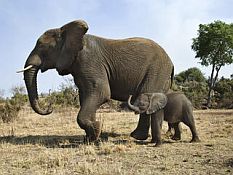 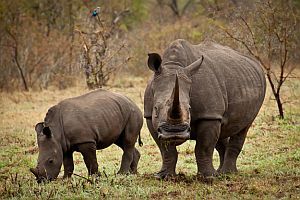 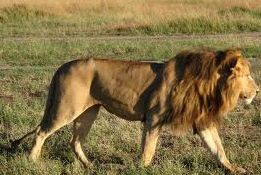
Environment|Conservation|Endangered Species
For Geosciences websites, go to the Geosciences Page in the library.
A section on Extinction Events can be found on the Science Page.
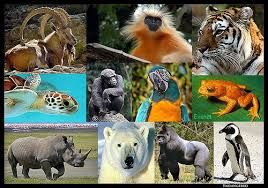
The Wireless Environment and Its Potential Health Risks
- "Resonance: Beings of Frequency" | Top Documentary Films
We live an an ocean of electromagnetic radiation. It's all around us now, invisible, but we know it's there. Every time you lift up your mobile phone you know it's there. It is very hard to turn the clock back, in fact it is impossible, but we need to be aware of the adverse health effects so that we can have the choice of taking precautions against the exposures.
- "Resonance: Beings of Frequency" | Vimeo
- "Resonance: Beings of Frequency" | January 13, 2014 - Review - Static Mass Emporium
- ICNIRP: International Commission on Non-Ionizing Radiation Protection
- What is ICNIRP?
ICNIRP's principal aim is to disseminate information and advice on the potential health hazards of exposure to non-ionizing radiation to everyone with an interest in the subject. ICNIRP's information and advice covers all of the non-ionizing radiations including, the optical radiations (ultraviolet, visible and infrared - and lasers), static and time-varying electric and magnetic fields and radiofrequency (including microwave) radiation, and ultrasound.
- International Commission on Non-Ionizing Radiation Protection | Wikipedia
- Cell Phones Possibly Carcinogenic, WHO says | May 31, 2011 - Medscape Medical News
- WHO/IARC Classifies Radiofrequency Electromagnetic Fields as Possibly Carcinogenic to Humans
May 31, 2011 - Electromagnetic Health.org
- Cell Phones are as Carcinogenic as Coffee | Journal of Carcinogenesis - NCBI - NIH
Scientists from 14 countries met under the auspices of the International Agency for Research on Cancer (IARC) in Lyon, France, in May 2011, and assessed the carcinogenicity of radiofrequency electromagnetic fields (RF-EMF).
- IARC: Cell Phone Radiation is a Possible Human Carcinogen | June 3, 2011 - Microwave News
- The effects of extremely low-frequency magnetic fields on melatonin and cortisol, two marker rhythms of the circadian system
PDF File available - December, 2012 - NCBI - NLM - NIH
In the past 30 years the concern that daily exposure to extremely low-frequency magnetic fields (ELF-EMF) (1 to 300 Hz) might be harmful to human health (cancer, neurobehavioral disturbances, etc) has been the object of debate, and has become a public health concern.
- Depression and Magnetic Fields | Altered States
- Melatonin:
Fundamental Non-Ionizing Electromagnetic Settings for Optimal Human Performance | PDF File
By Katharina Gustavs - Environmental and Occupational Health Study Program, University of Victoria -
August 2001
The Writing of Silent Spring: Rachel Carson and the Culture-Shifting Courage to Speak Inconvenient Truth to Power | Brain Pickings
Bullfrog Films
- About
Bullfrog Films is the oldest and largest publisher of videos and films about the environment in the United States.
IPBES to launch 1st global assessment report on biodiversity and ecosystem services since 2005
IPBES: Intergovernmental Science-Policy Platform on Biodiversity and Ecosystem Services - Science and Policy for People and Nature
IPBES: Nature's dangerous decline 'unprecedented,' species extinction rates 'accelerating' | May 6, 2019 - EurekAlert
Current global response insufficient; 'transformative changes' needed to restore and protect nature; opposition from vested interests can be overcome for public good; most comprehensive assessment of its kind; 1 million species threatened with extinction.
One million species threatened with extinction because of humans | May 6, 2019 - CNN
Living Planet Report 2016
The Living Planet Index reveals that global populations of fish, birds, mammals,
amphibians and reptiles declined by 58 per cent between 1970 and 2012.
Living Planet Report 2018 | PDF Download Available (27 megs)
Humans are driving one million species to extinction | May 5, 2019 - Nature
Global biodiversity report warns pollinators are under threat | Nature
UNEP: United Nations Environment Programme
United Nations - DESA - Department of Economic and Social Affairs

IPCC: Intergovernmental Panel on Climate Change
Intergovernmental Panel on Climate Change (IPCC) | The Guardian
Europa -- Official Website of the European Union
GlobalChange.gov | U.S. Global Change Research Program
Study Says Coal Plant Pollution Kills 30,000 a Year
Ash from coal-burning power plants is full of toxic heavy metals like arsenic, mercury, and lead
-- that the coal companies then dump in pits and ponds, with no plan for safe disposal or cleanup.
Moms Clean Air Force - Fighting for Our Kid's Health
Climate Science Watch | Promoting integrity in the use of climate science in government
A sponsored project of the Government Accountability Project
European Environment Agency's Home
Environmentjob | UK
Welcome to environmentjob.co.uk. With hundreds of advertisers and 54,000 subscribers, we are by far the UK’s busiest website for green jobs, courses and events.
EIONET: European Environment Information and Observation Network
- Countries
Eionet is a network of environmental bodies and institutions active in the EEA member countries. It is made up of national focal points (NFPs); one in each country, national reference centres (NRCs) and European topic centres (ETCs).
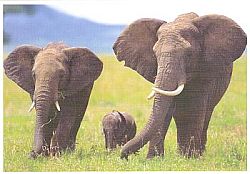
Federal Register | The Daily Journal of the U.S. Government
EPA's Report on the Environment (ROE)
EPA's Report on the Environment (ROE) presents the best available indicators of national trends in the environment and human health. EPA selected these indicators to address 24 questions that are critical to EPA's mission of protecting the environment and human health. These questions are organized into six themes: Air, Water, Land, Human Exposure and Health, Ecological Condition, and Sustainability.
NIEHS: National Institute of Environmental Health Sciences

U.S. Department of Interior
List of environmental agencies in the United States | Wikipedia
NOAA: National Oceanic and Atmospheric Administration
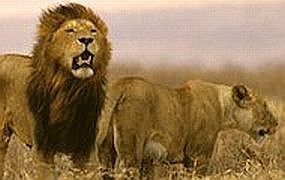
NOAA's National Ocean Service: Hypoxia in the Gulf of Mexico
FERC: Federal Energy Regulatory Commission
NEPA: National Environmental Policy Act | Basic Information | EPA
National Environmental Policy Act of 1969 | Department of Homeland Security
Office of NEPA Policy and Compliance | Department of Energy
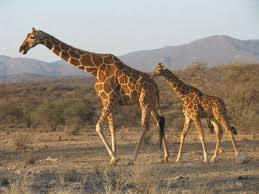
NRCS | Natural Resources Conservation Service
National Wetlands Inventory | FWS
NWF: National Wildlife Federation
US Army Corp of Engineers | Headquarters
Signed into law June 10, 2014.
- Water Protection Network
The Water Protection Network (formerly Corps Reform Network), a coalition of hundreds of organizations from around the country, supports member groups advocating to ensure water projects and policies are economically and environmentally sound.
- IISD Reporting Services
News, information and analysis on international environment and sustainable development negotiations and policy making
- Department of Environment and Conservation | Australia
The Department of Environment and Conservation (Western Australia) was established on 1 July 2006, bringing together the Department of Environment and the Department of Conservation and Land Management.

- Environmental Evaluation
- North America Wetlands Preservation Act
- Preserving Wetlands: A natural security issue - by Colette Georgii
- Erin Brokovich Home Page
- The Pew Charitable Trusts
- EPA: Environmental Protection Agency
"...to protect human health and to safeguard the environment..."
Run off of irrigation water into waterways from farmland that contains pesticides
has always been exempt from the Clean Water Act.
- Oil Pollution Act of 1990 | PDF File
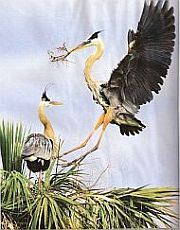
- Oil Pollution Act Desktop: Second Edition, Randle
- Louisiana Deep Water Horizon Oil Spill | Natural Resource Damage Assessment
- FAQs about Natural Resource Damages (NRD) Claims | National Pollution Funds Center
- The 2010 Oil Spill: Natural Resource Damage Assessment Under the Oil Pollution Act
PDF File | Federation of American Scientist (FAS) | Congressional Research Service
- OilWatch
"Oilwatch is a resistance network that opposes the activities of oil companies in tropical countries."
- Timeline of the Deepwater Horizon Oil Spill | Wikipedia
- The Deep Water Horizon Threat
By S. Elizabeth Birnbaum and Jaqueline Savitz - April 16, 2014 - The New York Times
- Exclusive: 4 Years After BP Disaster, Ousted Drilling Chief Warns U.S. at Risk of Another Oil Spill
April 21, 2014 - Video plus Transcript - Democracy Now!
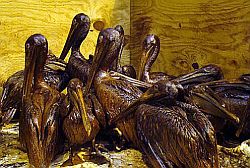
- Beyond the Deepwater Horizon | April 21, 2014 - Mission Blue
- 4 years later, Obama and the feds risk another BP-sized catastrophe
April 17, 2014 - Stuart Smith
- Deep-Water Horizon Court Supervised Settlement Program
- List of Animals Affected and Endangered by the Gulf of Mexicao BP Oil Spill
PICTURES
- Congressman Polis Introduces Bill to Force DOI, OIL Industry to Abide by Endangered Species Act
Press Release, July 27, 2010
- Effects of Oil Spills on Marine and Coastal Wildlife
PDF File - Holly Ober - Department of Wildlife Ecology and Conservation - University of Florida
- "A Fierce Green Fire" | Documentary Trailer - YouTube
Spanning 50 years of grassroots and global activism, this Sundance documentary brings to light the vital stories of the environmental movement where people fought -- and succeeded -- against enormous odds.
- "A Fierce Green Fire" | 101 minutes - Video Documentary - IMDb
An exploration of the environmental movement - grassroots and global activism spanning fifty years from conservation to climate change.
- Remember Love Canal
- Lessons from Love Canal: toxic expertise and environmental justice | Open Democracy
- "The Tragedy of the Love Canal" | by Marisa Brook
- Love Canal Follow-Up Health Study | PDF File
- Love Canal | Wikipedia
- Ducks Unlimited - World Leader in Wetlands and Waterfowl Conservation
- Izaak Walton League of America
- America's Wetland Foundation
The America's WETLAND Foundation (AWF) established in Louisiana, and working throughout the Gulf region, was founded in 2002 in response to a comprehensive coastal study calling on the need to alert the nation to the devastating loss of Louisiana's coastal wetlands and how their loss impacts the rest of the nation.
- North American Wetlands Conservation Act | U.S. Fish and Wildlife Service
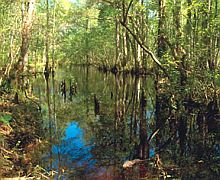
- WWF - Major Wetlands of the World
- MBGnet - Missouri Botanical Garden
Biomes of the World - Freshwater Ecosystems - Marine Ecosystems
- USGS National Wetlands Research Center Home Page
- Wikipedia
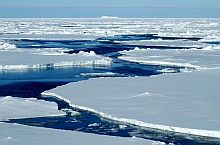
- Protecting Wetlands
- WHSRN: Western Hemisphere Shorebird Reserve Network
- Scripps Institution of Oceanography Library
- Woods Hole Oceanographic Institution

- Welcome to ORI: Ocean River Institute
The Ocean River Institute provides individuals around the world with specific opportunities to make a difference saving wildlife, protecting ecosystems, in environmental education, science, and conservation.
- National Ocean Council | The White House
- Ocean | Data.gov
This is the National Ocean Council’s portal for data, information, and decision tools to support people engaged in regional marine planning for the future use of the ocean, our coasts, and the Great Lakes.
- MarineCadastre.gov
MarineCadastre.gov is an integrated marine information system that provides ocean data, offshore planning tools, and technical support to the offshore renewable energy community. The project was designed specifically to support renewable energy siting on the U.S. Outer Continental Shelf but is also being used for other ocean-related efforts. - See more at: http://www.marinecadastre.gov/MMC%20Pages/about.aspx#sthash.aXaQOj0B.dpuf
- Raise The River | Reconnect the Colorado
The Colorado River is one of the hardest-working rivers on the planet. It’s been dammed and diverted so many times that it no longer flows regularly into the Gulf of California, leaving its once-fertile Delta on life support. Despite its current state, the Delta can be restored.
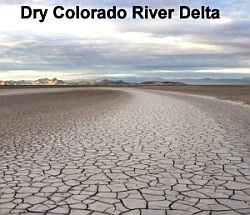
- A River Once Ran Through It | National Wildlife
The Colorado River Delta was an oasis for wildlife and people until the water stopped flowing.
- The United States and Mexico Can Restore the Colorado River Delta | National Geographic
- CLIMATE CHANGE: Native Peoples Sound Dire Warning | IPS Inter Press Service
- The Arctic Council
- The Arctic Portal | NEWS
The Arctic Portal provides a comprehensive gateway to the Arctic on the Internet, increases co-operation between both public and private parties across the Arctic and grants exposure to Arctic related information.

- Official Arctic National Wildlife Refuge Site
- Arctic Wildlife Refuge | U.S. Fish & Wildlife
- Institute for Energy Research - ANWR
- Udall-Eisenhower Arctic Wilderness Act ( H.R. 139) | GovTrack
- Wilderness Watch: “Keeping It Wild” Jeopardizes the Wildness of Wilderness
- Oil on ice - The Fate of The Arctic National Wildlife Refuge (ANWR)

- Arctic National Wildlife Refuge | Defenders of Wildlife
- Watch "Arctic Tale" Movie Online
- Green Facts - Facts on Health and the Environment
- Encyclopedia of Earth
- NSIDC: National Snow and Ice Data Center
- C2ES: Center for Climate and Energy Solutions
- The Basics: FAQs
The Center for Climate and Energy Solutions is a source of reliable information about the causes and potential consequences of climate change. Here we provide an overview of fundamental facts and data and answers to frequently asked questions.
- Climate Change 101 Series
- C2ES: Center for Climate and Energy Solutions | Wikipedia
- 9 animals that are feeling the impacts of climate change | November 16, 2015 - U.S. Dept. of Interior

- A Graphic Look at the State of the World - Earth Web Site
- NASA: National Aeronautics and Space Administration
- Oceanology International 2010: Marine Science and Ocean Technology Event
- Intergovernmental Oceanographic Commission | UNESCO
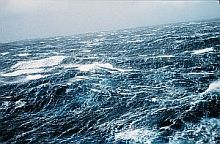
- The World Wide Web Virtual Library: Oceanography
- International Journal of Oceanography
- YAHOO: Oceanography Related
- Sheldon Margen Public Health Library -- UC Berkeley
- NCSE: National Council for Science and the Environment
- Chemical Safety and Security/Environmental Health Watch
- Earth and Environmental Science
- Concerning the Dust Storm from Western China | April 15, 1998
- World Environmental Organization
The World Environmental Organization (World.Org) develops and implements scientific strategies for decreasing fossil fuel use, preventing climate change, and preserving plant and animal species and their habitats.
- Environmental Defense Fund
"Environmental Defense is a leading national nonprofit organization representing more than 300,000 members."
- Information Center for the Environment (ICE)
The Information Center for the Environment is a cooperative effort of environmental scientists at the University of California, Davis and collaborators at over thirty private, state, federal, and international organizations interested in environmental protection.
- EOCA: European Outdoor Conservation Association
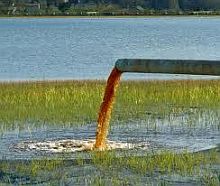
- KIDCYBER
- Air and Water Pollution | Kidzworld
"The United Nations estimates that 4,000 children die every day from drinking dirty water. 40% of America’s rivers and 46% of America’s Lakes are too polluted for swimming, fishing and aquatic life. Vehicle exhaust contributes around 60% of all carbon monoxide emissions in the country, and up to 95% in cities. 1.2 trillion gallons of untreated sewage, storm water, and industrial waste are discharged into US waters every year."
- Water Pollution
- Water Pollution FAQ
- Sustainable Table
- Water Pollution - News - Times Topics | The New York Times
News about water pollution, including commentary and archival articles.
- Stop Walmart's Repeated Offenses Against the Environment | ForceChange.com
The Bottled Water Industry - Plastics
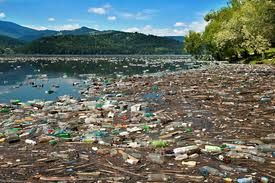
- The Scary New Evidence On BPA-Free Plastics
By Mariah Blake - March/April issue of Mother Jones
- Are Any Plastics Safe? Industry Tries To Hide Scary New Evidence on BPA-Free Bottles, Containers
By Amy Goodman, Democracy Now! - Video Interview - Transcript Included
- Plastic Bottles & Ocean Pollution | Slideshow | Jeff Bennett
- Just Say NO To Bottled Water | Cypress Natural Medicine
- Bisphenol A: What you need to know | USA Today
- NIEHS: National Institute of Environmental Health Sciences
- Department of Human Services | Prevention of Childhood Lead Poisoning and Other Environmental Exposures
- NRDC - Chemicals in Plastic Bottles - BPA | PDF File
- Wikipedia
- FAQs: The Safety of Plastic Beverage Bottles
- Environmental Leader: Environmental Management & Energy News
Environmental Leader is the leading daily trade publication keeping corporate executives fully informed about energy, environmental and sustainability news.
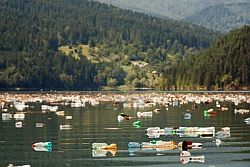
- Leaching of antimony from plastic PET bottles into mineral water | PubMed.gov
- Contamination of Bottled Waters With Antimony From Polyethylene Terephthalate (PET) Leaching Increases Upon Storage
PDF File | by William Shotyk and Michael Krachler, Institute of Environmental Geochemistry, University of Heidelberg
- Journal of Environmental Science & Technology
- Journal of Environmental Monitoring
Cutting Edge Research on Environmental Processes & Impacts
- Journal of Environmental Science and Pollution Research
ESPR serves the international community in all areas of Environmental Science and related subjects with emphasis on chemical compounds.
[Try performing a search within the journal on "PET Bottled water."]
- Bottled Water May Contain 'Hormones' | by Janet Raloff - March 12, 2009 - ScienceNews
- Water, Bottled Water - The Issues - Sustainable Table
- Bottled Water: The Risks to our Health, Our Environment, Our Wallets
PDF File | by Marguerite Kaye Huber - School of Public and Environmental Affairs, Honors Thesis, Fall, 2010
- Ocean Pollution, Water Pollution, Coasts | National Geographic
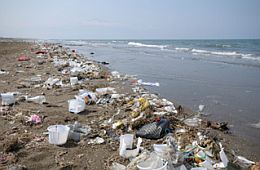
- GreenandHealthy.info
- WWF - Earth: Our Water World
- Great Pacific Garbage Patch | National Geographic
- Great Pacific Garbage Patch | Wikipedia
- Drowning in Plastic: The Great Pacific Garbage Patch is twice the size of France | Richard Grant - The Telegraph
- Capt. Charles Moore on the seas of plastic | Video on Ted.com
- Algalita Marine Research Institute
- SDWF: Safe Drinking Water Foundation
Water Fact of the Week (Week of February, 24, 2014):
The World Health Organization (WHO) calls waterborne diseases the world’s greatest killer, estimating they cause 2.2 million deaths each year, more than half of them children. Worldwide, around 1.1 billion people lack access to improved water sources and 2.4 billion have no basic sanitation, WHO says.
- Lesson 8: Operation Water Pollution: Water Bottles | PDF File
Performing a GOOGLE IMAGE search on dead zones or water pollution (or both together)
will return informative pictures and diagrams. Each image is associated with a web page.
Dead Zones
TSCA: Toxic Substances Control Act of 1976
Performing a GOOGLE IMAGE search on air water pollution could be both alarming and educational.
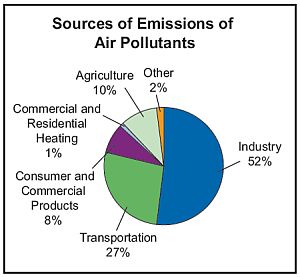
- Effects of Air Pollution on Our Health
- Clean Air Task Force
- American Meteorology Society
- "Clean Air Act"
A History of the Clean Air Act; a guide to legislation past and present.
- Top Ten Worst Polluted Places on Earth
- World Environmental Organization
- "The Nuclear Energy Option"
by Professor Bernard Cohen, University of Pittsburgh, published 1990
- Glossary of Air Pollution Terms
- The Air & Waste Management Association
The Air & Waste Management Association (A&WMA) is a nonprofit, nonpartisan professional organization that provides training, information, and networking opportunities to thousands of environmental professionals in 65 countries.
- World Water Council
The World Water Council was established in 1996 in response to increasing concern from the global community about world water issues. The Council counts over 350 member organisations, representing more than 60 countries worldwide.
- Watch Free Online -- "Flow: For Love of Water" | 93 minutes - Top Documentary Films
Irena Salina's award-winning documentary investigation into what experts label the most important political and environmental issue of the 21st Century - The World Water Crisis. Salina builds a case against the growing privatization of the world's dwindling fresh water supply with an unflinching focus on politics, pollution, human rights, and the emergence of a domineering world water cartel.
There is a separate page on Water Documentaries where you'll find more information on the global water crisis.
- 5th World Water Forum | Istanbul, 2009
The World Water Forum, organized every three years by the World Water Council in close collaboration with the authorities of the hosting country, is the largest international event in the field of water.
- 6th World Water Forum | Marseille, 2012
- 7th World Water Forum, Daegu & Gyeongbuk 2015 - Water for our future
The 7th edition of the world’s largest water event will gather participants from the international water community from 12 to 17 April 2015. The Forum will focus on the implementation of the solutions that were provided during the 6th edition, which was held in Marseille, France, in March 2012.
- Environment - OECD: Organization for Economic Co-operation and Development -- Got Water?
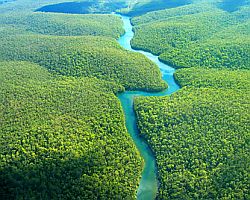
- World Water Week in Stockholm - Official Site
- Sustainable Water Solutions | Pure Water for the World
Pure Water for the World (PWW) works in remote and underserved regions of developing countries that lack sustainable clean, safe drinking water.
- World Bank report ponders new water strategies
International Business Times | September 1, 2010
- International Year of Freshwater: 2003
The United Nations General Assembly in resolution 55/196 proclaimed the year 2003 as the International Year of Freshwater.
- UNESCO: United Nations Educational, Scientific and Cultural Organization | Water
- Food & Water Watch
Food & Water Watch works to ensure the food, water and fish we consume is safe, accessible and sustainably produced.
Water Documentaries
There is a separate page on Water Documentaries.
We, the undersigned, respectfully call upon the United Nations to add a 31st article to the
Universal Declaration of Human Rights,
establishing access to clean and potable water as a fundamental human right.
- Put Water Center Stage, says UN report | SciDevNet
"Unless water occupies a more central role in decisions regarding crises such as climate change and food security, a global water shortage could ensue — leading to political conflict and insecurity, says a new report."

- The Water Channel
Hi! TheWaterChannel is an open resource with lots of videos related to water.
- Watch Free Online -- "The Great Culling: Our Water" | 93 minutes - Top Documentary Films
The Great Culling of the human race already has begun. Covertly, insidiously, mercilessly, a global depopulation agenda has been launched. It is being done through chemicals added to our drinking water, food, medicines, and the air we breathe - chemicals that have the known effect of reducing fertility and shortening lifespan.
- Watch Free Online -- "Flow: For Love of Water" | 93 minutes - Top Documentary Films
Irena Salina's award-winning documentary investigation into what experts label the most important political and environmental issue of the 21st Century - The World Water Crisis. Salina builds a case against the growing privatization of the world's dwindling fresh water supply with an unflinching focus on politics, pollution, human rights, and the emergence of a domineering world water cartel.
- Global Water Supply Drying Up As Population Grows | ThoughtCo
- "Water on the Table" | Wikipedia
Water on the Table is a Canadian documentary film directed, produced and written by filmmaker Liz Marshall. The film explores Canada’s relationship to its freshwater resources and features Canadian activist Maude Barlow in her pursuit to protect water from privatization.
There is a separate page on The Bottled Water Industry.
Water Crisis News | National Geographic
- Top Documentary Films
- "Future Earth 2025: A Future of Water Shortages" | YouTube
Future Earth 2025 takes us on an extraordinary CGI journey into the future offering a vision of what the world might be like if we continue to deplete one of our primary resources – water.
- "Future Earth 2025" | IMDB
- Water Related Documentaries | The Water Project
- "The Colorado River: Flowing Through Conflict" | 59 minutes - YouTube
Native Coloradan Pete McBride has spent almost two decades studying the world with his camera. His most recent project took over two years documenting his local river — the Colorado. One of the most loved and litigated in the rivers in the world, it ceases to reach to sea. McBride's journey culminated in an acclaimed coffee table book: "The Colorado River: Flowing Through Conflict", and an award-winning short film, "Chasing Water".
- Water Conservation and Auxiliary Water Topics | The Water Nexus Blog
Note: lawn grass is supposed to go dormant in dry summer weather, and watering it a) wastes a lot of water, b) makes a lot of extra work for the homeowner, and c) wastes energy and causes a lot of pollution due to running the lawnmower all those extra, unnecessary times. Skip the unnecessary water, and you’ll both have a lot more time to enjoy doing other things and create less pollution.
- SDWF: Safe Drinking Water Foundation
Water Fact of the Week (Week of February, 24, 2014):
The World Health Organization (WHO) calls waterborne diseases the world’s greatest killer, estimating they cause 2.2 million deaths each year, more than half of them children. Worldwide, around 1.1 billion people lack access to improved water sources and 2.4 billion have no basic sanitation, WHO says.
More extensive coverage of the TSCA: Toxic Substances Control Act of 1976.
Quote from 'Moms Clean Air Force' Newsletter:
"As Richard Denison, an expert at EDF on chemical policy reform, points out, the latest spill brings "the failures of TSCA into sharp focus. TSCA is our main chemical safety
law--and it has not been updated since 1976. MCHM was allowed onto the market
with no evidence that it is safe.
"Worse, 62,000 chemicals were grandfathered by TSCA in the 70s. We have no information--from industry--about what these chemicals are doing to us. We know next to nothing
about their carcinogenic effect, their mutagenic effects, their teratogenic
effects, leading to congenital malformations, their developmental toxicity.
"But scientists and researchers are discovering a great deal of disturbing evidence that some of these chemicals--things we breathe as well as ingest every day--are harmful to
human health."
- The Water Page
"The mission of this page is to deliver information beyond just the properties of water. It is a website that covers all topics about water."
- Water: Science & Issues | Water Encyclopedia
- Food & Water Watch
Food & Water Watch works to ensure the food, water and fish we consume is safe, accessible and sustainably produced.
Fracking
Fracking, or hydraulic fracturing, is the act of drilling and injecting fluid into the ground at a high pressure so as to fracture shale rocks and release natural gases inside. Currently, there are more than 500,000 active natural gas wells across the United States. Every site needs roughly 400 tanker trucks carrying water and supplies to the area. Between 1-8 million gallons of water and 40,000 gallons of chemicals are used per fracture. Those chemicals can include up to 600 different harmful substances. A pipeline is drilled approximately 10,000 feet into the Earth, and the fluids are forced down to the shale rocks containing natural gases. The waste fluids are left behind to evaporate, although this is also a problem because the chemicals in these mixtures can leak into water sources or return as acid rain. - Force Change
There is a separate, more comprehensive page to be found at 'Fracking' - Hydraulic Fracturing.
- PR Watch | Reporting on spin and disinformation since 1993
- H.R.2728 - 113th Congress: Protecting States' Rights to Promote American Energy Security Act | Congess.gov
- Protecting States' Rights to Promote American Energy Security Act (H.R.2728) | Govtrack.us
- "Unearthed: The Fracking Facade" | 24 minutes - Top Documentary Films
- "Gasland" (2010) | 107 minutes - IMDb
- "Gasland" | Trailer - YouTube
- "Gasland II" -- Fracking FAQs
- Fracking & Unconventional Gas in the UK | Top Films
Extreme Energy Action Network
- LinkTV - ISSUE: Fracking | Videos "Fracking Hell: The Big Story"
This three-hour compilation special digs deep into the issues of hydraulic fracturing, or "fracking."
Fracking chemicals are linked to bone, liver and breast cancers, gastrointestinal, circulatory, respiratory, developmental as well as brain and nervous system disorders. Such chemicals are present in frack waste and may find their way into drinking water and air.
- Watch Free Online "The Sky is Pink" | by Josh Fox - Top Documentary Films
- Fracking hell? Photo series follows families who say their lives and communities have been destroyed by the industry
February 23, 2014 - Mail Online
- Fracking | The People's Virtual Library
"Below are links leading to information sources on “horizontal hydrofracking” or “fracking” and the anti-fracking movement."
- Cancer-Causing Chemicals Used in 34 Percent of Fracking Operations
January 22, 2013 - Eco NEWS - EcoWatch
- Fracking Chemical Database | FracFocus Chemical Database Download | SkyTruth
- FracFocus | Chemical Disclosure Registry
Hundreds of companies, thousands of wells. Find a well site near you. Search for nearby well sites that have been hydraulically fractured to see what chemicals were used in the process.
- What Chemicals are Used in Fracking | PDF
- Hydraulic fracturing | Wikipedia
- Health Effects of Chemicals Used in Fracking | Physicians for Social Responsibility
- The Endocrine Disruption Exchange
- Congress Releases Report on Toxic Chemicals Used in Fracking | April, 2011 - 8020 Vision
- Millions of Gallons of Hazardous Chemicals Injected into Wells | April 16, 2011 - New York Times
- Documents: Natural Gas's Toxic Waste
Over the past nine months, The Times reviewed more than 30,000 pages of documents obtained through open records requests of state and federal agencies and by visiting various regional offices that oversee drilling in Pennsylvania. Some of the documents were leaked by state or federal officials. Here, the most significant documents are made available with annotations from The Times.
- Learn about toxic chemicals used in hydraulic fracturing | ToxMap
- ProPublica - Journalism in the Public Interest
- Independent Water Testing
- The Halliburton Loophole | PDF File
- EPA | Water Home
- NIEHS: National Institute of Environmental Health Sciences
- Report of the National Energy Policy Development Group - May 16, 2001 - PDF File
- Clean Water Action
- Fracking | SourceWatch
- Earthworks
- Energy Policy Act of 2005 | Wikipedia
- Frackwire - Hydraulic fracturing news & information
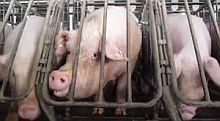
- Animal Feeding Operations
The problems created by such immense quantities of livestock include these:
- Wildlife: wild animals are killed for preying on livestock and are decimated to enable the expansion of agricultural lands, creating unstable ecosystems and extinction of local wildlife populations.
- Environment: livestock are responsible for 14.5% of global greenhouse gas emissions – more than every form of transport combined. In the U.S. around 5.5 million metric tons of methane, a greenhouse gas 25 times more harmful than carbon dioxide, comes from meat production operations.
- Water: almost 50% of water use in America is directed towards raising livestock. Animal agriculture has taken over almost half of the landmass of the lower 48 states, and has polluted 35,000 miles of rivers in 22 states, and groundwater in 17 states.
Force Change

- Plains Justice: CAFOs and Threats to Human Health | Blue Planet
- WSSCC: Water Supply & Sanitation Collaborative Council
- Food & Water Watch
Food & Water Watch works to ensure the food, water and fish we consume is safe, accessible and sustainably produced.
- AWRA: American Water Resources Association
- The Envirolink Network
The EnviroLink Network is a non-profit organization founded in 1991. EnviroLink maintains a database of thousands of environmental resources and provides internet services to non-profit organizations.
- ENERGY
Includes links to EESI, ISEO and other organizations
For resources on ENERGY, go to the Energy Section
- Worldwatch Institute
Worldwatch is a non profit public policy research organization dedicated to informing policymakers and the public about emerging global problems and trends and the complex links between the world economy and its environmental support systems.
- Bioneers
Bioneers is an innovative nonprofit educational organization that highlights breakthrough solutions for restoring people and planet. Founded in 1990 in Santa Fe, New Mexico by social entrepreneurs Kenny Ausubel and Nina Simons, Bioneers has acted as a fertile hub of social and scientific innovators with practical and visionary solutions for the world’s most pressing environmental and social challenges.
- Earth Policy Institute
Welcome to Earth Policy Institute, dedicated to planning a sustainable future and providing a roadmap of how to get from here to there.
- Environmental visionary, Cumberland County native Lester Brown: Extreme weather to become norm
May 13, 2012 - South Jersey Times
- Environmental Websites | Eco-Book recommended
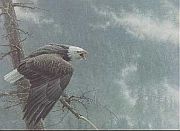
- CIESIN: Center for International Earth Science Information Network
- Grist | Environmental News, Commentary, Advice
- National Geographic Magazine
- Carnegie Institution for Science
- The Regional Environmental Center for Central and Eastern Europe
REC is an international organisation with a mission to assist in solving environmental problems. The REC fulfils this mission by promoting cooperation among governments, non-governmental organisations, businesses and other environmental stakeholders, and by supporting the free exchange of information and public participation in environmental decision making.
- GreenNet
GreenNet is part of the only global computer network specifically designed for environment, peace, human rights and development groups. Clear summaries of international scientific documents.
- NCSE: National Council for Science and the Environment
The National Council for Science and the Environment (NCSE) is a not-for-profit organization dedicated to improving the scientific basis for environmental decisionmaking.
404: The above booklet is no longer available as of January 29, 2017.
Performing a search for climate change returned a blank sheet blocking the web page initially,
but now (as of January 31) returns meaningless information on Education and Research.
Comment
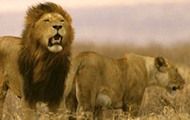 The nobility and courage of the lion stand in stark contrast to the base urges and stunted emotional development of the arrogant humans who hunt them for sport. Throwbacks. Raising lions and other animals on farms [canned] to be easily killed by trophy hunting narcissists shows how much contempt they have for the animal they kill. How can they brag about killing something so much more worthy than they? Do they hope to steal their spirits and thereby acquire what they don't possess themselves? Do they, these trophy heroes, sneak up on them while they sleep or wait until they're eating, then shoot them in mid-chew? Do they hunt from the safety of a helicopter or truck? They are cowards seeking validation by killing their betters.
The nobility and courage of the lion stand in stark contrast to the base urges and stunted emotional development of the arrogant humans who hunt them for sport. Throwbacks. Raising lions and other animals on farms [canned] to be easily killed by trophy hunting narcissists shows how much contempt they have for the animal they kill. How can they brag about killing something so much more worthy than they? Do they hope to steal their spirits and thereby acquire what they don't possess themselves? Do they, these trophy heroes, sneak up on them while they sleep or wait until they're eating, then shoot them in mid-chew? Do they hunt from the safety of a helicopter or truck? They are cowards seeking validation by killing their betters.

- Killing A Lion Is The Most Cowardly Thing You Can Do | Imgur
If you don't look at any of these other links, please check this one out. It's an eye opener.
- Welcome to LionAid
- American Hunter Killed Cecil, Beloved Lion That Was Lured Out of Its Sanctuary
The New York Times
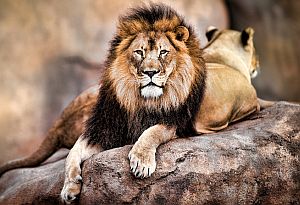
- Cecil the lion's death prompts calls to ban trophy hunt imports to US
July 28, 2015 - The Guardian
- Hunter who killed Cecil the lion in Zimbabwe identified as 'despicable,' 'scumbag' American dentist Walter Palmer
July 29, 2015 - The New York Daily News
- Rich American tourists kill hundreds of lions each year, and it’s all legal
July 29, 2015 - The Washington Post
- The hunter hunted: American dentist who paid $55,000 to kill Africa's most famous lion goes into hiding and says he 'did nothing wrong' as Zimbabwe police demand to speak to him
The Daily Mail
- Walter Palmer: 5 Fast Facts You Need to Know
- How to help wild lions like Cecil | List of Five Conservation Groups
- In Pictures: Trophy Hunting in Africa | The Guardian
Zimbabwe elephant hunter identified as German property mogul
October 20, 2015 - The Telegraph
We’ve ID’d Slayer of Huge African Elephant
October 20, 2015 - PETA
Zimbabwe elephant hunter: Peta claims German businessman Rainer Schorr killed animal
October 21, 2015 - The Independent
Elephant Killer Rainer Schoor has been Identified as the Man Who was Born Without a Penis
October 20, 2015 - The Monsters Among Us
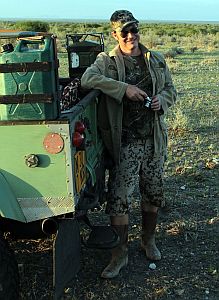 | | 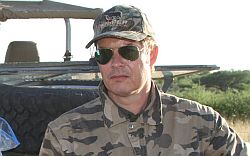 | | 
Rainer Schoor
Arrogant, Narcissistic, Wealthy Asshole of the Month
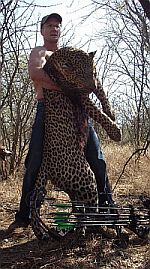 Animals Are Not Trophies To Be Killed For Sport
Animals Are Not Trophies To Be Killed For Sport
[Two top pictures on the right are of William James Palmer,
killer of Cecil, the Lion of Zimbabwe]
"An Elephant bull with heavy ivory topping 100 pounds is considered by many as the ultimate African trophy and hunters dream of the day they can relive one of Africa's oldest hunting traditions."
The above quote is from the webpage of African Elephant Hunting with safaribwana. Trophy hunting, killing endangered animals for sport and competition with other like-minded people--throwbacks to a former age--is glamorized and romanticised in spite of the animals' severely diminished numbers. Ego gratification is not a sufficient reason to kill anything. International organizations exist that can be accessed through the internet where people brag about their kills. And because it costs a significant amount of money for licenses, the club is composed of folks who don't need to kill for food, people who are out of touch with their connection to the Earth and its animals and so must validate themselves by killing creatures who are no threat to them. They travel vast distances, hire professional hunters to take them on safari or go to farms where animals are bred and kept in order to assure the client kills something, an adventure in the wild. A search on Google for trophy hunting sites will return thousands offering hunting packages to those who can afford it.
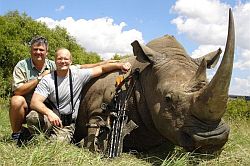
For twenty years I worked as a hard-core commercial fisherman on Alaska waters, so I'm not sqeamish about killing for food. But, I, personally, cannot even begin to imagine killing an elephant for fun or sport, or a giraffe, buffalo, leopard, or any of the rare and beautiful animals on the list of offerings. They hunt leopards with dogs, wear them down, corner them, and then shoot them, a trapped and frightened wildcat. After which, they brag about it, what he-men they are. Mind-numbing assholes absorbed in their own reality, incapable of realizing what they're actually doing. Their real motives may not even break through to consciousness, but when asked, they rationalize with double speak that they're helping to conserve whatever species they kill. Those not above the politically-correct need to justify their actions; they may not believe it themselves or be aware of the larger picture that supposedly substantiates it, the argument backed by science, the pseudo-science of managing nature, but they read it in the brochure and that's good enough for them.
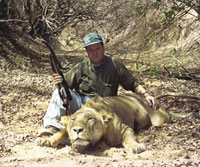
[Conservation? -- In Okavango Delta: Ostrich numbers declined by 95 percent, while 90 percent of wildebeest were also wiped out, along with 84 percent of antelope tsessebe, 81 percent of warthogs and kudus, and nearly two-thirds of giraffes.]
It's pitiful and painful to me, and all I can do about the slaughter of these innocents is to try to help bring awareness to their desperate plight. They're being driven to extinction for the thrill of it all, and the only difference between poaching and trophy hunting is the legality of it, paying the government, the end is the same. Frankly, I have more respect for poachers, at least they're straightforward about their motivation.
How can anyone watch a giraffe or an elephant or a lion peacefully walking along on a wide plain or savanna, observe the sinewy grace of their movements and observe the gentle care they show their offspring, and take pleasure in killing them for no better reason than ego gratification?
- "Blood Lions" | VIDEO
"Learn the truth about South Africa's captive lion hunting industry in the provocative, eye-opening documentary, "Blood Lions," featuring Born Free Foundation president, Will Travers"
- Trophy Hunting | In Defense of Animals
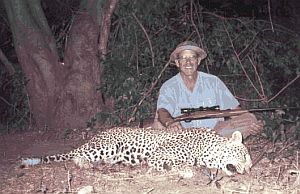 → Managing Nature
→ Managing Nature
We live in a world where people still hunt animals for sport as trophies to brag about, not only in Africa and Asia, but here in the states too. For example, cougar hunting is legal in Washington, and in most other states people are allowed to hunt certain animals that don't end up on the dinner table, like wolves in Michigan, Wisconsin, Minnesota, North Dakota, Montana, Wyoming, and Idaho. Wolves are hunted to the brink of extinction and the rationale is to say it's to protect livestock and dogs, but in actuality it's to protect the bottomline of hunting lodges and the associated economy.
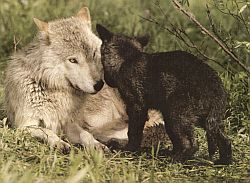 It's stupid and myopic, as are most endeavors where humans try to manage wildlife. In the case of the killing of wolves, without a sufficient number of predators, the populations of game--deer, moose, elk--increase disproportionately, their food sources become scarce, with the end result being population collapse through starvation. Moreover, with no fear of predation, they linger by streams, browse eating the vegetation that keeps the banks in place. When the rains come, mud flows into the streams covering stones where fish lay their eggs. A high percentage of egg loss means a high percentage of fish NOT returning to their stream, which means a loss of food source for animals that eat fish and a loss of nutrients for the environment in general. And so forth, with the result being that the web decoheres, falls apart, connections become tenuous and finally dissolve, the ecosystem passes a critical minimum sustainablity, fragments, grows unstable and eventually declines towards total collapse for both flora and fauna.
It's stupid and myopic, as are most endeavors where humans try to manage wildlife. In the case of the killing of wolves, without a sufficient number of predators, the populations of game--deer, moose, elk--increase disproportionately, their food sources become scarce, with the end result being population collapse through starvation. Moreover, with no fear of predation, they linger by streams, browse eating the vegetation that keeps the banks in place. When the rains come, mud flows into the streams covering stones where fish lay their eggs. A high percentage of egg loss means a high percentage of fish NOT returning to their stream, which means a loss of food source for animals that eat fish and a loss of nutrients for the environment in general. And so forth, with the result being that the web decoheres, falls apart, connections become tenuous and finally dissolve, the ecosystem passes a critical minimum sustainablity, fragments, grows unstable and eventually declines towards total collapse for both flora and fauna.
Ecosystems take hard hit from loss of top predators | July 14, 2011 - UC Berkeley News Center
A paper reviewing the impact of the loss of large predators and herbivores high in the food chain confirms
that their decline has had cascading effects in marine, terrestrial and freshwater ecosystems
throughout the world.
- Endangered Animals of the World: Environmental Facts: Young People's Trust
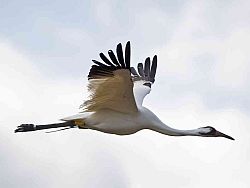
- Animal Facts for Kids | Endangered Animals
- Birdlife Data Zone
BirdLife's Global Species Programme collates and analyses information on all the worlds birds in order to set priorities for action, through species-specific initiatives, safeguarding of sites, campaigns and policy interventions.
- International Crane Foundation
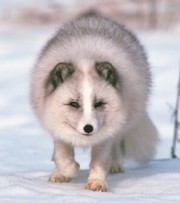
- Siberian Crane | Wikipedia
- All About Endangered Species in the Tundra
- Alpine Biome
- Endangered Tundra Animals | Squidoo
- List of Endangered Animals in Alaska's Arctic Tundra | USA Today
- IFCE: International Fund for China's Environment
- Animal Information - Animal Facts and Wild Animal Pictures
- China's Endangered Species - Video Library - New York Times
- Facts and Details - China, Japan, World Topics
- Traditional Chinese Medicine and Endangered Animals | Encyclopedia Brittanica Advocacy for Animals
Animals used in traditional Chinese medicine are tigers, leopards, sharks, saiga antelope, elephants,
rhinoceros, pangolins, tortoises, seahorses, musk deer, as well as 7 of the 8 species of bear.
- The Plight of the Pangolin - The World's Most Illegally Traded Mammal | Infographic
Tiger bones have been a common ingredient in traditional Chinese medicine for centuries because of the belief that they strengthen the body. Despite the fact that they have been removed from all ingredient lists throughout the country, there is still a demand for them among the wealthy. The industry has reduced the tiger population in China from 100,000 to a mere 3,000 over the course of the last century.
- South Africa to Propose Rhino Horn Trade
October 3, 2013 - Born Free Blog by Will Travers

- Global Animal
"Your daily news magazine, from pets to wildlife"
- Save the Elephants
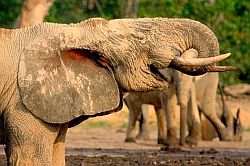
- Elephants Dying in Epic Frenzy as Ivory Fuels Wars and Profits
By Jeffrey Gettleman, September 3, 2012 - The New York Times
"The vast majority of the illegal ivory — experts say as much as 70 percent — is flowing to China, ..."
- Blood Ivory | Facebook
- Blood Ivory | Religious Ivory Demand Killing Elephants by Thousands
"Elephants are being illegally killed across Africa at the highest rates in a decade, and the global religious market for ivory is a driving force." --- National Geographic Magazine
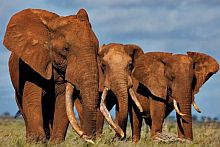
- ATE: Amboseli Trust for Elephants
- The African Elephants | EDGE: Evolutionarily Distinct and Globally Endangered
- Keystone Species | National Geographic
- Keystone Species | Saving the Elephants
- Examples of Keystone Species
- Here’s What Might Happen to Local Ecosystems If All the Rhinos Disappear | Smithsonian Magazine
- Africa’s Two Elephant Species Move Closer to Endangered Species Protection | Center for Biological Diversity
- Animals Asia
"Animals Asia works to end the barbaric bear bile trade, which sees over 10,000 bears – mainly moon bears but also sun bears and brown bears – kept on bile farms in China, and around 2,400 in Vietnam. Animals Asia works to end the trade in dogs and cats for food in China, and lobbies to improve the welfare of companion animals and promote humane population management."
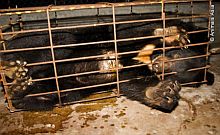
See how we’re turning a bear farm into a sanctuary – and freeing 130 caged bears! Animals Asia has just signed an agreement (April 15) to undertake the world’s biggest bear rescue. Please watch our short clip to see how we are transforming a bear farm in Nanning, China into a sanctuary for the 130 bears and their unborn cubs.
- OCEARCH
OCEARCH facilitates unprecedented research by supporting leading researchers and institutions seeking to attain groundbreaking data on the biology and health of sharks, in conjunction with basic research on shark life history and migration. The International Union for Conservation of Nature (IUCN) has determined that of the shark and ray species assessed, 30 percent are threatened or near-threatened with extinction. As apex predators, sharks play a crucial role of maintaining balance in the delicate oceanic ecosystem. Like the big cats of Africa, sharks have an effect on all levels in the food web below them. Shark populations worldwide are under threat - sharks are being slaughtered at an unsustainable rate, many for a bowl of soup. This unsustainable harvest rate driven by the demand for shark fins, meat and other products puts not only sharks at risk, but also the entire balance of the ocean.
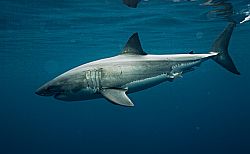
- Shark Conservation Act | Animal Welfare Insitute
Sharks have ruled the oceans for more than 400 million years and the removal of such large numbers from the ecosystem can have irreversible effects on every species in the marine web, including popular seafood such as shellfish. Since sharks are top predators, their decimation creates a ripple effect throughout the marine food web, impairing the balance of the ocean ecosystem.
- A Closer Look At Shark Conservation | NOAA Fisheries
- Shark and Fishery Conservation Act | PDF File - US Printing Office
- Endangered Species Committee | American Bar Association
The Endangered Species Committee focuses on the law and policy related to endangered species issues. Furthermore, the mission of the Section of Environment, Energy, and Resources is to be the premier forum for lawyers working in areas related to the environment, natural resources, and energy.
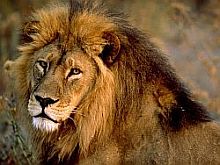
- EE-Link: Environmental Education on the Internet
- Endangered Species Coalition
- U.S. Fish and Wildlife Service HOME
Petition: Stop Congress from gutting the Endangered Species Act | CREDO action
- ESA: Endangered Species Act | Office of Protected Resources | NOAA Fisheries
- Summary of ESA | Laws & Regulations | U.S EPA
→ Click image to the right for slideshow of threatened insect species →
- Bureau of Oceans and International Environmental and Scientific Affairs | U.S. State Department
- The Darwin Initiative | Gov.UK
- IUCN - The International Union for Conservation of Nature
- Nature Conservancy | Protecting Nature, Conserving Life
- Alliance for Global Conservation | Communities at Risk
- The Ecological Society of America
- UNECE: United Nations Economic Commission for Europe
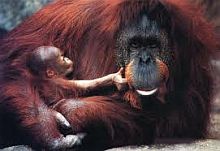
- Save 30 Hills | WWF: World Wildlife Fund
- The Orangutan Project
- BOS: Borneo Orangutan Survival Foundation
- Center for Great Apes - Orangutan and Chimpanzee Conservation
- Orangutan Foundation International | Research, Conservation, Education
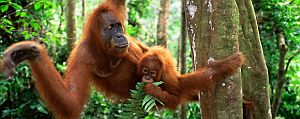
- International Gorilla Conservation Programme (IGCP)
- UNEP -- Great Apes Survival Partnership [GRASP]
- Gorilla & Chimp Conservation in Cameroon: Ape Action Africa
- Project Primate Inc - Helping Orphaned Chimpanzees
- H.R. 3556: Humane Care for Primates Act of 2013
Introduced November 20, 2013 | Govtrack.us
- Conservation in Africa - Houston Zoo
- Chimpanzee Conservation Centre
- Primate Conservation, Inc.

- In Pictures - Meet the World's Endangered Primates | The Guardian
- Primates face greater extinction threat than any other large mammal group | February 3, 2017 | HumanNature - Conservation International Blog
- Primate Conservation - IUCN/SSC Primate Specialist Group
- Primate Conservation - The Primata
- Neotropical Primate Conservation
NPC is a registered charity dedicated to the conservation of monkeys and their habitat in the tropical rainforests of South and Central America.
- Primate Info Net
Primate Info Net (PIN) is maintained by Lawrence Jacobsen Library staff at the Wisconsin National Primate Research Center (WNPRC), University of Wisconsin-Madison.
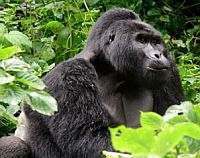
- Animal Advocates Applaud Fitzpatrick Primate Bill
Fitzpatrick bill will prohibit interstate commerce in monkeys, apes and other primates. It's a reintroduction of the Captive Primate Safety Act of last year which died. | July 31, 2013
- Captive Primate Safety Act - Introduced July 11, 2011 - Status: DIED
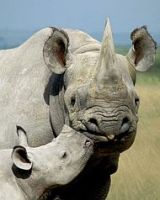
- CBO | S. 1324, The Captive Primate Safety Act
- Laboratory Primate Newsletter
- AWF: African Wildlife Foundation
Thirty-five thousand elephants were poached last year.
- U. S. Senate Votes to End Wildlife Trafficking | October 7, 2016
VIDEO: A Message From Sir Richard Branson | YouTube
Sir Richard Branson, founder of the Virgin Group, has teamed up with African Wildlife Foundation
and WildAid to bring awareness to the horrors of rhino poaching.
Test Your Poaching IQ - Quiz
- Combined Effort Cracks Ivory Cartel in DRC | September 21, 2016
- Take action against the rhino horn and ivory trade | September 22, 2016
Tell CITES you're against legalizing ivory and rhino horn trade.
- AWF CEO Shakes Up Tanzanian Wildlife Summit | November 7, 2014
- AWF Welcomes Threatened Listing for African Lion | October 28, 2014
- Say No Campaign | A Demand-Reduction Campaign in Asia
- U.S. Fish and Wildlife Service Places Southern White Rhino on Endangered Species List
May 20, 2014
The placement of the southern white rhino on the Endangered Species List comes at a time when poaching of rhinos has hit a crisis point in Africa. As of mid-May, the African continent has lost upwards of 400 rhinos to poaching, with South Africa suffering the greatest losses.
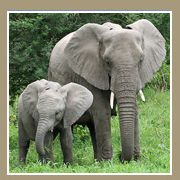
- AWF Testifies on Trafficking of Africa's Great Apes | October 20, 2014
- U.S. Government Unveils a New National Strategy to Combat Wildlife Trafficking
February 11, 2014
- National Strategy for Combatting Wildlife Trafficking | PDF File - February, 2014
- Elephant Infographic (English) | YouTube
- Wildlife Conservation Society
- Madagascar Conservation News

- Welcome to Illegal-logging Info
- Mutant Planet: Lemurs of Madagascar: VIDEOS: Science Channel
- Mutant Planet: Science Channel: VIDEOS
- ILOVEPRIMATES
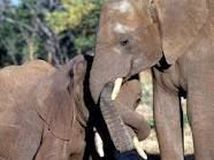
- Madagascar: Environmental Profile | Mongabay
- Madagascar
- Endangered Animals - Rare, Threatened and Endangered Animals & Mammals
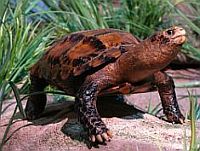
- Mutant Planet: Evolution in Japan: Videos: Science Channel
- Endangered Species Handbook | Animal Welfare Institute
- List of Mammals: Madagascar | Wikipedia
- The Madagascar Tortoise Crisis | Pictures -- Slideshow
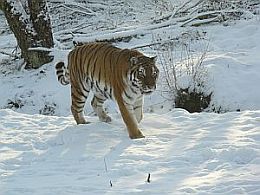
- Endangered Species International
- Lost Tiger Population Discovered in Bhutan Mountains | September 19, 2010
- The Living Edens: Bhutan -- Animal Archive | PBS
- Panthera: Leaders in Wild Cat Conservation
- International Society for Endangered Cats (ISEC) Canada
Small Wild Cat Conservation - We work for the 28 smallest wild cat species in the world.

- The Cat House
Dedicated to the protection and preservation of the world's endangered felines.
- Tanzania Carnivores
- Big Cats and Wildlife Habitat Conservation Program by Cat Haven
- Wild Cat Species Guide
- Bengal Cat Breeder Foothill Felines
- CAT: Cat Action Treasury
CAT was created in 1995 to conserve the world’s 36 species of wild cat.
- Wild Cat Species of the World
- BigCats.com | Pictures - Posters - NEWS
- Indian Tiger Welfare Society
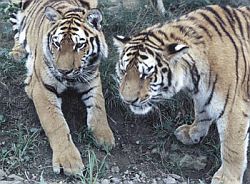
- AMNH - American Museum of Natural History
- Animals -- Animal Pictures -- Wild Animal Facts
- Tigers in Crisis
- White Tigers - Habitat, Information, Pictures
- List of Top 10 Endangered Animal Species in Asia | Hubpages - Videos included
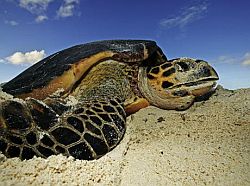
- Some Endangered Animals of Asia
- WWF - Endangered Species Conservation | World Wildlife Fund
- Wildlife Smuggling | Wikipedia
- Bush Warriors -- A Global Voice for Wildlife
- Asian Scientist Magazine
a search [bottom of page] on "wildlife smuggling" will return pages of stories.
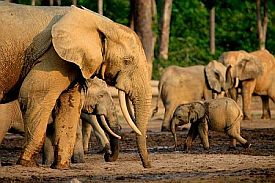
- TRAFFIC - Wildlife Trade Monitoring Network
- CAWT: Coalition Against Wildlife Trafficking - News
- FACT SHEET: U.S. Efforts to Combat Wildlife Trafficking | The White House
- Illegal Wildlife Trade | U.S. Fish and Wildlie Service
- First Convening of the Presidential Task Force on Wildlife Trafficking | July 30, 2013 - U.S. Department of State
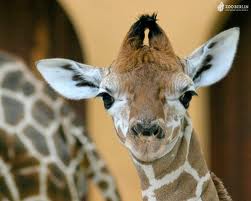
- Freeland
- ARREST: Asia's Regional Response to Endangered Species Trafficking
- ASEAN-WEN: The Association of Southeast Asian Nations Wildlife Enforcement Network
- ASEAN Wildlife Enforcement Network | Wikipedia
- BLF: Big Life Foundation
Using innovative conservation strategies and collaborating closely with local communities, partner NGOs, national parks and government agencies, Big Life Foundation seeks to protect and sustain East Africa’s wild lands and wildlife, including one of the greatest populations of elephants left in East Africa.
- A Voice for Elephants | Newswatch - National Geographic
- WWF Global: World Wildlife Fund
- Learn About Mangroves -- Mangrove Action Project
- NRDC - Natural Resources Defense Council
Run off of irrigation water into waterways from farmland that contains pesticides
has always been exempt from the Clean Water Act.
- Earth's Endangered Creatures
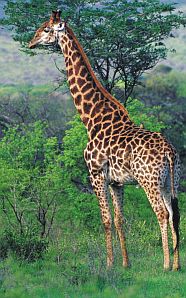
- Endangered Animals Hotlist | Utah Education Network
- Realm of Animals - Vanishing Species
- The World's Vanishing Bees | PDF File
- Breakthrough on Mystery of Vanishing Bees | IPS Inter Press Service
- Insects, Bees and Entomology | National Agricultural Library
- Honeybees, Colony Collapse Disorder | PBS Video -- Full Episode
- Earth Focus Special: "Deadly Toxins, Deadly Results" | Video
Earth Focus investigates the deadly effects of toxins on two key natural resources: water and food crops. Killing Bees tells the story of how honey bees, the essential pollinators of many major US crops, have been dying off in massive numbers since 2006.
- Laws and Regulations: Pesticides
- What is FIFRA? | Waterborne Environmental, Inc
- Quick Reference: FIFRA: Federal Insecticide, Fungicide, and Rodenticide Act | PDF File - University of Michigan
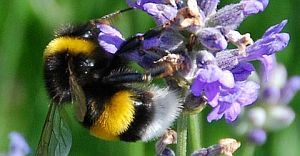
- Honeybee colony collapse disorder | Pesticides | US EPA
- Soaring Bee Deaths in 2012 Sound Alarm on Malady
March 28, 2013 - New York Times
- Bee protection: US in spotlight as EU bans pesiticides | The Guardian
European commission vote highlights threat to the world's food supply from the decline of bees and other pollinators.
- Some US Bumblebees See 96% Drop in Last Decades | January 4, 2011 - Treehugger
- American Beekeeping Federation
Doing a search on "CCD" will return the latest news on "Colony Collapse Disorder"
- Legislation to restrict pesticide use proposed by Rep. Blumenauer | July 12, 2013 - The Oregonian
- Last Call For Monarchs | February 7, 2014 - Huffington Post
On Jan. 29, news was released of a dramatic plunge in the monarch butterfly population that overwinters in Mexico after flying thousands of miles south from the northern and eastern United States and southern Canada.
 "Monarchs in the United States are in a deadly freefall: In less than 20 years, their numbers have dropped by 90 percent, and they've lost more than 165 million acres of habitat -- a Texas-sized area. On Tuesday the Center and allies, including renowned monarch scientist Dr. Lincoln Brower, filed a legal petition to protect them under the Endangered Species Act.
"Monarchs in the United States are in a deadly freefall: In less than 20 years, their numbers have dropped by 90 percent, and they've lost more than 165 million acres of habitat -- a Texas-sized area. On Tuesday the Center and allies, including renowned monarch scientist Dr. Lincoln Brower, filed a legal petition to protect them under the Endangered Species Act.
"The decline of monarchs is being driven largely by planting of genetically engineered crops in the Midwest, where most monarchs are born. These crops are made to be resistant to Monsanto's Roundup herbicide, a potent killer of milkweed, which is the monarch caterpillar's only food." -- Center for Biological Diversity
Monarch Butterflies Have Declined 90%; Conservationists Seek Extra Protection
August 27, 2014 - by Douglas Main - Newsweek
The original article appeared here
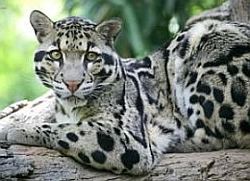
Cloud Leopard
- Top Ten Endangered Species & Wild Animal Facts | All About Wildlife
Endangered species list 2013
- Seaworld/Busch Gardens ANIMALS
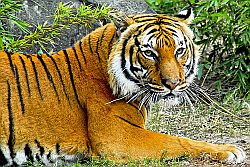
- Smithsonian National Museum of Natural History
- NWF: National Wildlife Federation
- Polar Bears - Global Warming
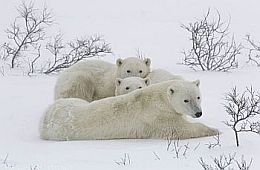
- Vital Ground - Preserving our Wild Places
Protecting Habitat and Landscape Linkages for Grizzly Bears
- Endangered Antarctic Animals
- Earth Watch
- Friends of the Earth

- CSPI: Center for Science in the Public Interest
- Rainforest and Endangered Species Being Destroyed by Palm Oil Industry
- Eyes On The Forest
EoF is a coalition of three local environmental organizations in Riau, Sumatra, Indonesia : WWF Indonesia's Tesso Nilo Programme, Jikalahari ("Forest Rescue Network Riau") and Walhi Riau (Friends of the Earth Indonesia). It was launched in December 2004 to
investigate the state of Riau''s forests and the players who influence it.
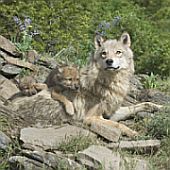
- WildEarth Guardians
Protecting Wildlife, Wild Places, and Wild Rivers in the American West
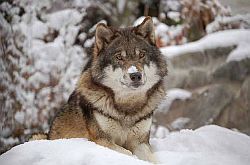
- WildEarth Guardians | Wikipedia
- Defenders of Wildlife - Protecting Native Animals and Their Habitat
The U.S. Fish and Wildlife Service (FWS) has wrongly proposed stripping nearly all gray wolves in the Lower 48 of protection under the Endangered Species Act.
In the southwestern U.S., FWS is failing to act on behalf of the critically endangered Mexican gray wolf.
And in North Carolina, FWS is under pressure to walk away from recovery efforts for the last remaining population of red wolves. Only about 100 of these beautiful animals cling to survival in the wild.
- USDA’s Wildlife Services killed 4 million animals in 2013; seen as an overstep by some
June 7, 2014 - The Washington Post
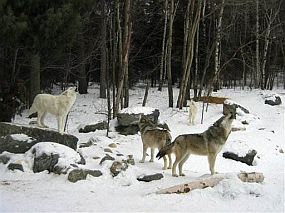 Defenders of Wildlife
Defenders of Wildlife
- Wolf Haters | by Lawrence Downes - December 28, 2013 - The New York Times
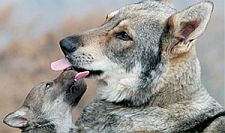
- USDA’s Wildlife Services killed 4 million animals in 2013; seen as an overstep by some
June 7, 2014 - The Washington Post
- Predator Defense
- NRDC: Reform Wildlife Services' Predator Control
"Why does the government continue to kill public wildlife for private interests?"
- Regulations.gov
Submit your comments on proposed regulations and related documents published by the U.S. Federal government. You can also use this site to search and review original regulatory documents as well as comments submitted by others.
- Minnesota Voters for Animal Protection
- Michigan Moves to Permit Wolf Hunting | April 15, 2013 - Psychology Today
 "The expectation is that if they are hunted, wolves will learn to avoid humans. The argument flies in the face of a growing body of research indicating that wolf packs fragmented by hunting lose their social and cultural cohesion and become more likely to turn to domesticated animals for sustenance."
"The expectation is that if they are hunted, wolves will learn to avoid humans. The argument flies in the face of a growing body of research indicating that wolf packs fragmented by hunting lose their social and cultural cohesion and become more likely to turn to domesticated animals for sustenance."
- Keep Michigan Wolves Protected
"The Michigan legislature recently passed a law to allow a wolf hunt for sport in Michigan for the first time in nearly 50 years."
- MAP: Which States Hunt Wolves | October 1, 2012 - Mother Jones
- Wolf hunting | Wikipedia
- International Wolf Center Home
- Grey Wolf - Endangered Species Act - Resilient Habitats - Sierra Club
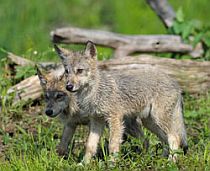
- Western Gray Wolf - U.S. Fish and Wildlife Service
News, Information, & Recovery Status Reports
- Environment News Service
- Frequently Asked Questions about the Gray Wolf in the United States
February 4, 2013 - The Humane Society of the United States
- About Wolves - Wolf Facts
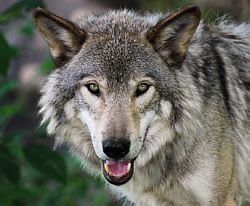
- Questions and Answers about Gray Wolves in North America
Reprinted From the U.S. Fish and Wildlife Service Division of Endangered Species
- USDOJ: Environment and Natural Resources Division: The Northern Rocky Mountain Gray Wolves
- Western Gray Wolves Coming Off Endangered Status | 12/21/11 - US News
- The Rewilding Institute
The Rewilding Institute Website is the essential source of information about the integration of traditional wildlife and wildlands conservation with conservation biology to advance landscape-scale conservation.
- Mass Extinction Underway | Includes extensive list of related links
"The World Wide Web's Most Comprehensive Source of Information on the Current Mass Extinction."
- Greenpeace International USA
Greenpeace is an independent global campaigning organisation that acts to change attitudes and behaviour, to protect and conserve the environment and to promote peace. It comprises 28 independent national/regional offices in over 40
countries across Europe, the Americas, Africa, Asia and the Pacific, as well as a co-ordinating body, Greenpeace International.
- US-EPA: Environmental Protection Agency
- Grace Communications Foundation
- EWG: Environmental Working Group
"The Power of Information"
- PAN: Pesticide Action Network North America
Pesticide Action Network North America (PAN North America) works to replace the use of hazardous pesticides with ecologically sound and socially just alternatives.
- Environment & Society
An Internet Resource Guide compliments of Rensselaer Polytechnic Institute
Animal Cruelty - Animal Testing
WARNING: Pictures may be disturbing.
Experimentation on animals is conducted inside universities, medical schools, pharmaceutical companies, farms, defense establishments, and commercial facilities that provide animal-testing services to the government and various industries, such as, the cosmetics, fertilizer, pesticide, and any other where the end product comes in contact, either directly or indirectly, with humans. And what the military does behind closed doors, like testing nerve-gas on chimpanzees and "trauma training" of medics and soldiers, is completely inexcusable, appalling, and a dishonor to the country. Germany, for example, prohibits experimentation "for the development or testing of weapons, munitions and associated devices" or "for the development of tobacco products, detergents and cosmetics." Why does the U.S. continue such practices?
Dog fighting, bear baiting (tormenting) and other perverse cultural pursuits continue from deep history and are accepted by a certain kind of people as valid and enjoyable entertainments. In Pakistan, although it still goes on--and where it does is received with great enthusiasm--bear baiting is illegal.
Dogfighting is a felony in every US state, but Montana is the ONLY one where spectating is still legal–placing it dead last in a ranking of state dogfighting laws.
Cold-blooded cruelty towards animals and indifference to their suffering are painful signs of how little we humans have developed from only animals ourselves. And by only I don't mean to disparage the rest of the animal kingdom, but rather to draw a distinction between the negative inclinations of the human animal and the positive characteristics of the human being.
"The evolution of man is the evolution of his consciousness."
G. I. Gurdjieff
Marc Bekoff, PhD
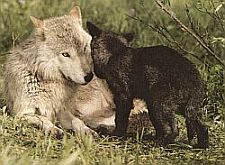 |
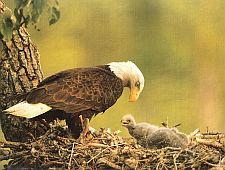 |
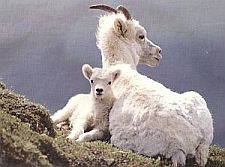 |
| Click on image for larger version. |
Charlotte Uhlenbroek
Temple Grandin
U.S. Government Animal Research

- NIH: National Institutes of Health
- FDA: U.S. Food and Drug Administration
"Previous scientific studies in young animals have shown that commonly used anesthetics can be harmful to the developing brain."
- CDC: Centers for Disease Control and Prevention
- USDA: U.S. Department of Agriculture
End Inhumane Research on Animals | Animal Petitions
"The United States Department of Agriculture has been secretly conducting inhumane animal testing and cruel breeding practices. At the U.S. Department of Agriculture’s Meat Animal Research Center (USMARC), countless animals are tested on and put under unthinkably deplorable breeding conditions to provide meat producers with methods on how to make more money from their livestock.
"According to an ongoing investigation by The New York Times, USMARC is responsible for scientifically altering the breeding capacity and output of pigs, which leads to unnaturally large litters and piglets being crushed to death by the weight of their hormone-injected mothers. They’ve genetically modified the natural breeding process of cows, forcing them to give birth to twins or even triplets when they usually bear one calf at a time, resulting in weakened and deformed calves. Plus, they’ve conducted inhumane tests on young lambs by leaving them in open fields during severe weather, and even in the presence of predators, just to see if they could survive without human help."
--- Animal Petitions
- USMARC: U.S. Meat Animal Research Center - USDA
- EPA: Environmental Protection Agency
- NIEHS: National Institute of Environmental Health Sciences

- 5th World Congress on Alternatives and Animal Use in the Life Sciences
- August 10, 2005 - PDF File
- Proceedings from the 8th Congress of KSAAE
The Eighth Congress of the Korean Society for Alternatives to Animal Experiments (KSAAE) was held on July 8, 2011 at Hoseo University, South Korea.
- Alternatives to Animal Testing
"For example, Pharmagene Laboratories, based in Royston, England, is the first company to use only human tissues and sophisticated computer technologies in the process of drug development and testing. 'If you have information on human genes, what’s the point of going back to animals?' says Pharmagene cofounder Gordon Baxter."
- ESNATS: Embryonic Stem cell-based Novel Alternative Testing Strategies
ESNATS stands for Embryonic Stem cell-based Novel Alternative Testing Strategies and aims at developing a novel toxicity test platform based on embryonic stem cells (ESCs), in particular human ESC (hESCs) to accelerate drug development, reduce related R&D costs and propose a powerful alternative to animal tests.

- EUSAAT: European Society for Alternatives to Animal Testing
- 15th Annual Congress of EUSAAT - September 15-18th, 2013 in Linz, Austria
- European Union Reference Laboratory for alternatives to animal testing
- AAALAC: Association for Assessment and Accreditation of Laboratory Animal Care International
- AltTox.org Home Pgae
AltTox.org is a website dedicated to advancing non-animal methods of toxicity testing through online discussion and information exchange.
- NADIR: The Network of Animal Disease Infectiology Research Facilities
- UAR: Understanding Animal Research | UK

- ILAR: Institute for Laboratory Animal Research
- Animal Research: One of FDA's Core Values
- Animal Research: Finding Cures, Saving Lives
- Americans for Medical Progress
- Science, Medicine, and Animals | National Academy of Science: Safety Testing - FDA
- Rules and Regulations | NWABR: Northwest Association for Biomedical Research
- Animal testing regulations | Wikipedia

- Cruelty to animals | Wikipedia
- EETA: Ethologists for the Ethical Treatment of Animals
Marc Bekoff and Jane Goodall (co-founders)
- ADI: Animal Defenders International Home
- STOP ANIMAL ABUSE | Sharing News, Views, and Petitions Regarding Animal Abuse
- Animal Information - Animal Facts and Wild Animal Pictures
- IFAW: International Fund for Animal Welfare
Founded in 1969, IFAW (the International Fund for Animal Welfare) saves individual animals, animal populations and habitats all over the world.
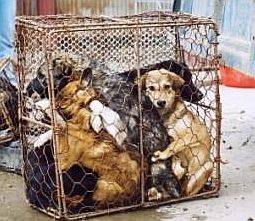
- Change.org
- Animal People News
ANIMAL PEOPLE is the leading independent newspaper providing original investigative coverage of animal protection worldwide, founded in 1992
- Network for Animals
- Dog Meat Trade in China | Occupy for Animals!
- Yulin's dog meat festival deaf to critics | South China Morning Post - Worldnews
- Dog Meat Sold at Market | Demotix.com
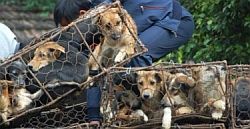
- Chinese Animal Protection Network (CAPN)
- Chinese Social Web Slams Local Dog Meat Festival | Global Voices
Global Voices is an international community of bloggers who report on blogs and citizen media from around the world.
- Dog Meat Festival In China Will Kick Off As Planned
June 19, 2013 - Huffington Post
- Dogs in China: A Horrific Story of Senseless Cruelty in the Dog Meat Industry
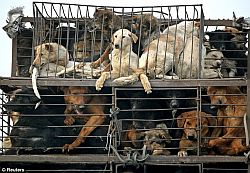 Pictures may be disturbing | by Greg Marlett
Pictures may be disturbing | by Greg Marlett
- Force Change - Petition to Save Your World
- Animal Petitions - Humans Defending Animals From Other Humans
- Ban Cosmetic Animal Testing In Korea
- Don't Kill Rescued Cats in Vietnam
"The act of smuggling cats from China into Vietnam has increasingly become more common due to the popularity of cat meat, known as “little tiger.” Vietnam banned the consumption of cat meat in order to encourage its citizens to own cats and lower the population of rats. Officials also warned of the risks of fungal skin diseases, typhoid fever, and rabies involved with cat consumption and smuggling. Despite the country’s efforts, cat meat is still considered to be a delicacy and many people want to try it. This is not a general consensus, however. Animal rights groups have protested against eating cats and pet owners are tired of feeling fearful of letting their pet cats go outside."
- Stop Skinning Animals Alive in China
"Animals are bludgeoned, slammed on pavement, and have their heads kicked in. Oftentimes, animals are not dead before the skinning process takes place. Live animals have their skin ripped from their flesh while they hang by their limbs writhing in pain. Once the bodies of animals have been detached from their fur, the bodies are thrown into piles where many animals continue to breath and squirm for up to ten minutes after being skinned alive."
- Act Now to End Elephant Slaughter
In the last fifty years, 95% of Africa's elephants have been slaughtered. Every fifteen minutes another elephant is killed by poachers. This slaughter is fueled by the international ivory trade, of which a significant amount flows into the United States. In order to protect this exceedingly rare and majestic animal, the U.S. must impose strict penalties on the international trade of elephant ivory.
- Put an End to Gruesome Horse Fighting
Horse Fighting
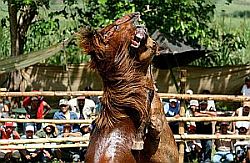 | | 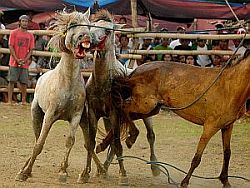 | | 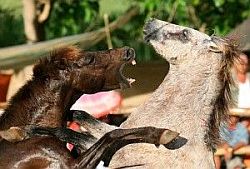
- Stop Cruel Dog Meat Festival in China
Every summer more than 15,000 dogs are tortured and murdered for the annual Yulin Dog Meat Festival, located in the southeastern Guangxi province of China. The dogs are electrocuted, skinned and boiled alive.
- Condemn Safari Club for Allowing Shooting of Endangered Black Rhino in Namibia
- End Cruel Medical Experiments on Dogs
At Wayne State University
- Save Habitat of Endangered Tiger
Goal: Prevent construction of a dam that would threaten the habitat of endangered Indochinese tigers.
- Stop Dissection of Live Primates
The University of California Los Angeles (UCLA) is one in a handful of public universities in the United States still using non-human primates in scientific experiments, specifically vivisection.
- Stop Unnecessary Mountain Lion Hunting
The state has approved Nebraska’s first mountain lion harvest for the year 2014, which will provide hunting opportunities for huntsmen.
- Support Action Plan to Protect Elephants
- Stop Major Retailer [GAP] Supporting Animal Abuse
- Stop Subsidizing Cruel Animal Research Laboratory | January, 2014
"The laboratory induces physical injury and brain damage to primates in order to measure physical and cognitive abilities afterward. In one set of tests, the primates’ arms were broken, and they were restrained in such a way that only the damaged limb was useable. They were then deprived of food and water, twenty-two hours a day for two and a half years, so as to force the primate to fetch nourishment with only its broken arm."
- Stop Live-Animal Trauma Testing in Military Trainng | January, 2014

- Stop Cruelty to Ducks by Banning Froie Gras
- Stop Using Stray Dogs & Cats as Live Bait
- Stop the Mass Killing of Dogs in Romania
- Ban University's (Georgia Regents University) Cruel Dental Experiments on Dogs
- Stop India's Speeding Trains From Colliding With Elephants
- Shut Down China's Tiger Farms
- End Animal Testing at Oxford University
Figures provided under the Freedom of Information act have recently revealed that the Oxford University research labs have been responsible for the deaths of hundreds of thousands of animals.
- Stop Breeding Beagles for Cruel Laboratory Experiments
- Stop Hunting Club [Dallas Safari Club] From Killing Endangered Black Rhino
- Save Suffering Lab Monkeys - October 23, 2013
- 1st International Conference on Dog Population Management 2012
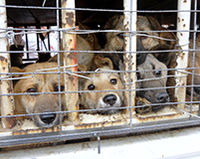
- KAT Center | Humane Treatment for Stray Dogs in Kathmandu, Nepal
- The Whale and Dolphin People Project | Photo and Information Gallery
- The Killing of Dolphins in Japan | Backstabber Report
- Pod of captive dolphins killed one-by-one in Japanese bloodbath festival as Yoko Ono pleads with cruel hunters to stop | January 20, 2014 - Daily Mail Online
- Help Stop The Slaughter of Dolphins in Taiji, Japan
- Barbaric cruelty to dolphins Japan tried to hide | April 22, 2013 - MailOnline
- Dolphin drive hunting | Wikipedia

- OPS: Oceanic Preservation Society
- Save Dolphins From Slaughter | Animal Petitions
- PAWS - People Helping Animals
- Critter News - Blogging About Critters Since 2007
- In Defense of Animals
Proecting the Rights, Welfare and Habitats of Animals
- Action for Animals

- Beagle Freedom Project
"Beagles are routinely blinded in the testing of shampoo and soap."
- Center Valley Animal Rescue | A no kill second chance animal rescue ranch
- Final Rule: Random Source Dogs and Cats | Animal Welfare Information Center | USDA
- Alternatives
This site provides information on methods and sources available to reduce, refine or replace animals used in teaching, testing, and research.
- Wikipedia
- Animal Welfare Act of 1966 | Animal Welfare Information Center | USDA/NAL
- Text of H.R. 835(112th): Puppy Uniform Protection and Safety Act
- Bill Summary and Status - 112th Congress (2011-2012) - H.R. 835 - Thomas
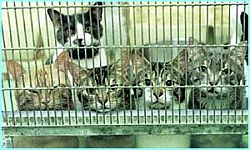
- Animal-Testing Article Reviews
- Animal Cruelty | Shockwave Presentation
- Animal Cruelty - Animal Testing
- The Cruelty of Lab Animal Testing
- ANIMAL CRUELTY IN RESEARCH LABS

- Last Chance for Animals
- Vivisection Information Network
- AAVS: The American Anti-Vivisection Society

- NEAVS: New England Anti-Vivisection Society
- Speak Out for Species (S.O.S.) - Protecting Animals from Cruelty, Abuse, and Exploitation
- Animal Rights Action: Raising Awareness

- Animal Cruelty Laws State by State | PDF File
- EEYORE'S Complaint -- Animal Abuse
- ECEAE: The European Coalition to End Animal Experiments
- HSI: Humane Society International
- Ricky Gervais Says Yulin Dog Meat Festival is Heart-Breaking, as HSI Rescues 'Little Ricky' Dog in His Honour
June 15, 2015
"BREAKING: Our #BeCrueltyFree campaign is excited to bring you news of our latest victory for animals--India has outlawed the import of cosmetic products and ingredients tested on animals after November 13, 2014, making it the first south Asian country to heed HSI's call to #BeCrueltyFree!
"This remarkable news follows two years of intensive campaigning which earlier this year saw India ban cosmetics animal testing in its own labs. That’s right -- no more cosmetics cruelty in India, or Indian sales for companies in other countries who continue to animal test."

- About Animal Testing
- About Cosmetics Animal Testing
- REACHing Beyond Animal Test | November 7, 2014 - Blog
- Convincing Europe to "REACH" Beyond Animal Testing | October 30, 2014
- Word is Spreading in Viet Nam: Rhino Horn Isn't Medicine |
October 16, 2014
Polls show dramatic decrease in demand thanks to public campaign
- Dallas Safari Club Has It All Wrong | January 21, 2014
On January 11, 2014, the Dallas Safari Club auctioned off a permit to hunt a black rhino in Namibia. The winner paid US $350,000. The black rhino is a critically endangered species, facing an extremely high risk of extinction in the wild. About 1,700 black rhinos live in Namibia and fewer than 5,000 exist in the world.
- Europe Adopts New Law on Animal Experiments | September 8, 2010
- Stronger Legal Protections for Animals in Labs
- As Europe Bans Animal-Tested Cosmetics, HSI/Canada and Animal Alliance Call on Canada to “Be Cruelty-Free”
March 11, 2013
- Care2 - largest online community for healthy and green living, human rights and animal welfare
- RSPCA: Royal Society for the Prevention of Cruelty to Animals
- National Council of SPCAs
- Global Animal Rescue | SPCA International
SPCA International was founded in the U.S. in 2006. The mission of our organization is simple but vast: to advance the safety and well-being of animals.
- HSUS: The Humane Society of the United States
- The Humane Society of the United States | Wikipedia
- The Humane Society of the United States and Pet Shelter Giving | HumaneWatch.org
"The Bottom Line: The Humane Society of the United States is not what it seems. HSUS is focused on winning “rights” for animals—not helping the pets depicted in its TV ads. Americans who want their contributions to impact pet shelters should give locally."
- PetSmart Charities
Bear Baiting
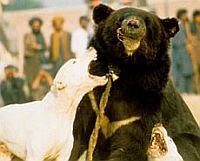 "Bear baiting is an appalling— and shockingly legal “sport” that is all too common in South Carolina. These poor creatures are mutilated, tied down, and rendered defenseless while cruel participants sic aggressive hunting dogs on them so they can watch the fight.
"Bear baiting is an appalling— and shockingly legal “sport” that is all too common in South Carolina. These poor creatures are mutilated, tied down, and rendered defenseless while cruel participants sic aggressive hunting dogs on them so they can watch the fight.
"Bears forced into the brutal world of bear baiting are mutilated by having their canine teeth and claws cruelly removed so that they are unable to defend themselves. Then they are forced to undergo several “fights” per day where they are tied down and ruthless dogs that have been trained to attack are unleashed upon them. The bears are viciously tortured for up to three minutes per fight, and a match is considered over when the dogs succeed in dragging the bear to the ground.
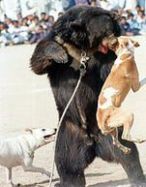 "The wounded bears do not receive medical attention and are instead forced to suffer through as many fights as they can survive. In addition, the attack dogs are often injured or even killed during fights. Dogs belong in the safety of loving homes and should not be used for such a barbaric, dangerous purpose by humans whose goal is to train them to be aggressive toward other animals for the sake of twisted entertainment.
"The wounded bears do not receive medical attention and are instead forced to suffer through as many fights as they can survive. In addition, the attack dogs are often injured or even killed during fights. Dogs belong in the safety of loving homes and should not be used for such a barbaric, dangerous purpose by humans whose goal is to train them to be aggressive toward other animals for the sake of twisted entertainment.
"The South Carolina government must immediately outlaw this disgusting sport and begin strict enforcement of the ban to end the suffering of these poor creatures."
--- Ban Tortuous Bear Baiting 'Sport' | Animal Petitions
- World Animal Protection | Wikipedia
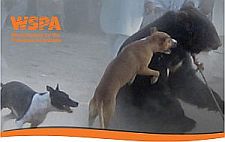
- World Animal Protection
Formerly: WSPA-International: World Society for the Protection of Animals
The latest news on animal welfare and animal cruelty
- Penning and Bear Bating in the United States & Pakistan
YouTube - disturbing footage
- Occupy for Animals
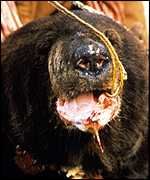
- ARKTOFILE Home
- Pakistan's baited bears wait for rescue | January, 2001 - BBC News
- Animals Asia
Animals Asia is devoted to ending the barbaric practice of bear bile farming and improving the welfare of animals in China and Vietnam. We promote compassion and respect for all animals and work to bring about long-term change.
- Glo-Wild
- Bear Necessity
"Bile is a constituent part of over 80 types of prescriptions that 'cure' everything from cancer to athlete's foot; few however have any documented medical purpose. The bile is taken directly with wine, or mixed with Chinese herbs and rubbed directly on the skin. Scientists have already made synthetic products that contain properties similar to bear bile. The bile may contain some hormones, but you do not need to kill wild animals to get that, it can be bought from a chemist. Although synthetics do exist, there has been resistance to adopt them, consumers instead relying on "the real thing" as thousands of years of culture dictate. According to many practitioners of Traditional Medicine there is no reason to use bear bile in treatments today because there are many cheaper alternatives. There has for a number of years been a synthetic form of UrsoDeoxyCholic Acid (UDCA), the active constituent in bear bile, that is cheap and considered equally effective."
- Bear bile and gallbladder products still legal in New York | March, 2011 - Wildlife Extra
- U.S. Bear Gallbladders Sold on Black Market | National Geographic
Globally, six of the eight known bear species are threatened with extinction, according to IUCN.
- Get The Facts: A Look at Bear Hunting | Born Free USA
"It is estimated that between 40,000 to 50,000 bears are legally hunted in the U.S. each year; an unknown number are also illegally poached."
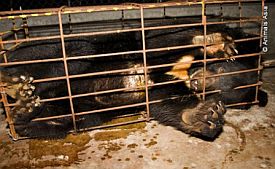
- Trafficking in Bear Parts | Big Wildlife
Working to assure the longterm viability of top carnivore wildlife in the west.
- Endangered Species Handbook | Animal Welfare Institute
- Bear Farming and Trade in China and Taiwan
By Keith Highley and Suzie Chang Highley
"Asiatic black and brown bears are still wildp;(sic) caught for use on farms, and demand for bear bile may be on the rise as a result of an aggressive marketing campaign touting products containing farmed bile. Opponents of bear farming also charge that it is unconscionable to condemn thousands of bears to a life of confinement in cages that are in most cases only slightly larger than their occupants-a cruelty done for the sake of producing medicinal goods as well as nonmedicinal products such as shampoos, hemorrhoid creams, and herbal teas."
-
The Asian Trade in Bears and Bear Parts: Impacts and Conservation Recommendations | PDF File
- The Animal Legal & Historical Center
- Bear Case Study | Trade Environmental Database
- Bile Bear | Wikipedia
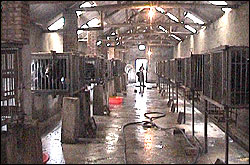
- Wildlife Direct - Saving Endangered Animals
WildlifeDirect is a Kenya and US registered charitable organization founded and chaired by African conservationist Dr Richard Leakey, who is credited with putting an end to the elephant slaughter in Kenya in the 1980s. Its main office is located in Nairobi, Kenya.
- All-Creatures.org
Performing a GOOGLE IMAGE search on bear bile farming will return many disturbing images
of suffering bears, each of which comes from or is attached to a web page.

- Vile Trade in Bear Farming
- Bear Bile Operations | Arm Investigations
- WSPA: World Society for the Protection of Animals | United Kingdom
The latest news on animal welfare and animal cruelty.
- Bear Bile Industry
There are many thousands of bears being held captive in the bile industry across East and South East Asia, suffering desperately cruel conditions, right now.
- WSPA - U.S. Office for the World Society for the Protection of Animals
- BSBCC: Bornean Sun Bear Conservation Centre
- Sun bear sanctuary to save 'forgotten species' | January 6, 2014 - The Guardian
South-east Asia's endangered bears losing habitat to palm oil plantations as poachers target them for their bile and meat.
- Pakistan's fighting bears get sanctuary at Balkasar
November 4, 2010 - The Express Tribune
- End Lion Slaughter in South Africa
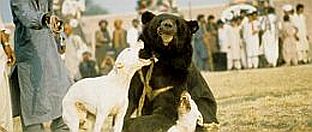 There are currently more than 160 farms in South Africa that raise lions in captivity for the sole purpose of using them as targets for hunters.
There are currently more than 160 farms in South Africa that raise lions in captivity for the sole purpose of using them as targets for hunters.
- Outlaw Bear Baiting in South Carolina
- Uncovered in South Carolina: Bear Abuse for Show
08/23/10 - Wayne Pacelle, President of the Humane Society - Huffington Post
- Dog Fighting in the United States | Wikipedia
- South Carolina Dog Fighting Law: Animal Fighting and Baiting Act
However:
§ 16-27-80. Applicability of chapter to hunting dogs and certain events.
(A) This chapter does not apply to dogs used for the purpose of hunting, including, but not limited to, hunting on shooting preserves or wildlife management areas authorized pursuant to Title 50, or to dogs used in field trials, including events more commonly known as "water races", "treeing contests", "coon-on-a-log", "bear-baying", or "fox- pen-trials". Such "fox-pen-trials" must be approved by permit for field trials by the South Carolina Department of Natural Resources.
(B) Except as otherwise provided in Section 16-27-60, this chapter applies to events more commonly known as "hog-dog fights", "hog-dog rodeos", or "hog-dogging" in which bets are placed, or cash, points, titles, trophies, or other awards are given based primarily on the ability of a dog to catch a hog using physical contact in the controlled environment of an enclosure.
Dogfighting is a felony in every US state, but Montana is the ONLY one where spectating is still legal–placing it dead last in a ranking of state dogfighting laws.
"On Friday [October 24, 2014], the ASPCA joined forces with the FBI and the U.S. Attorney’s Office for the District of South Carolina (USASC) to rescue a dozen dogs from a dog fighting operation in Columbia, South Carolina.
"The investigation—which began as a drug trafficking case—took a tragic turn when fighting dogs were discovered on the Gaston, SC property. Upon arriving at the scene, ASPCA responders found several adult dogs and puppies chained and anchored to car axles. Severely emaciated and dehydrated, the dogs had nothing but trash barrels to protect them from the elements. Many exhibited scars and injuries associated with dog fighting.
"Responders also found dog fighting paraphernalia on the property, along with the remains of deceased dogs. "
--- ASPCA
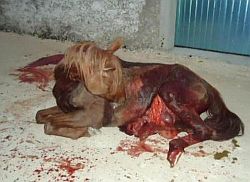
- DawnWatch | Dawn Animal World News Watch
- News | Daily Animal News
- Horses tortured in a Mexican blood feast - "Torneo de Lazo" | ofcoursevegan
- Horses eviscerated alive for fun | May 1, 2013 | AVAAZ
- End Barbaric Horse "Feast" | ForceChange
- Animal Experiments Pictures
- ILAR: Institute for Laboratory Animal Research
The mission of ILAR is to evaluate and to report on scientific, technological, and ethical use of animals and related biological resources, and of non-animal alternatives in non-food settings, such as research, testing, education, and production of pharmaceuticals.

- FRAME: Fund for the Replacement of Animals in Medical Experiments
- Animals Australia - the voice for animals
- World Animal Foundation
- Release & Restitution for Chimpanzees in U.S. Laboratories
- Which is the safest country for animals? - Global Public Square
"The U.S. Animal Welfare Act (AWA) does not prohibit any experiment, no matter how cruel or irrelevant. It simply sets minimum housing and maintenance standards for confined animals."
- AnimalLaw.com | International Institue for Animal Law
- Animal Law - Guide to Wildlife Law

- Legal aspects of research on animals
- Animal Experimentation - Legislation and Protection
PDF File
- Companies That Still Test on Animals
- List of Contract Research Organizations | Wikipedia
- Covance
Single largest importer of primates for research purposes in the United States
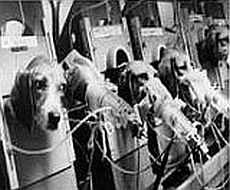
- Charles River Laboratories
It is the world's largest supplier of animals for laboratory experimentation and has been described as the "General Motors of the laboratory animal industry".
- Marshall BioResources
Marshall BioResources is an international breeder of animals for biomedical research.
- Global Captive Breeders, LLC.
- Animal Experiments | Pictures
- Medical Research Modernization Committee

- PETA: The Military's War on Animals
- Military and Space Research | AAVS: American Anti-Vivisection Society
- Altweb: Alternatives to Animal Testing
The global clearinghouse for information on alternatives to animal testing.
- Animal Blawg
- Battlefield Excellence Through Superior Training Practices Act | PCRM
"The BEST Practices Act (H.R.3172/S.1550)—introduced in September 2013 in the House of Representatives and the Senate by Rep. Hank Johnson and Sen. Ron Wyden, respectively—will phase out the military’s use of goats and pigs in its combat trauma training exercises and catalyze a transition to human-based models."
- H.R. 3172: Battlefield Excellence Through Superior Training Practices Act | Govtrack
- S.1550: Best Practices Act | Congress.Gov

- IAAPEA: International Association Against Painful Experiments on Animals | Pictures
"The International Association Against Painful Experiments on Animals (IAAPEA) was founded in 1969 and is against all experiments, animal testing, vivisection and procedures performed on laboratory animals."
- Chimpanzees: An Unnatural History - Alternatives to Chimp Testing | Nature
- Primate Testing -- crucial or cruel? | The Guardian
- Stop Animal Exploitation NOW! (SAEN)
- PETA | People for the Ethical Treatment of Animals
PETA NEWS
- PETA saves 70 beagles headed for cruel testing lab | December 15, 2012
"The young dogs were headed for a laboratory where they were slated to endure cruel toxicity tests in which they would be injected with or force-fed chemicals, experimental drugs, and pesticides in increasingly higher doses until they became very sick or died."
PETA also discovered that the notorious laboratory breeder that sold the dogs, Marshall Biotechnology (a subsidiary of U.S.-based Marshall BioResources), lied to the airline transporting the beagles from China to India, stating in a letter that "they ... won't be hurt or killed as Lab Animals."
Nature News Blog: Breaking news from the world of science
 PETA reveals photos of horrific cruelty in a University of Wisconsin-Madison laboratory, where for years, experimenters have tormented and killed cats for a taxpayer-funded experiment.
PETA reveals photos of horrific cruelty in a University of Wisconsin-Madison laboratory, where for years, experimenters have tormented and killed cats for a taxpayer-funded experiment.
The use of animals in live-tissue trauma training and military medical research
PCRM: Physicians Committee for Responsible Medicine
Cruelty-Free International
Cruelty Free International is the global campaign to end animal testing for cosmetics. We are calling on governments and regulators around the world to introduce a ban on the testing of animals for cosmetic products and ingredients.
Cruelty Free International | HuffPost
Frank R. Lautenberg Chemical Safety for the 21st Century Act | Congress.gov
All Bill Information (Except Text) for S.697
S.697 - Frank R. Lautenberg Chemical Safety for the 21st Century Act | TEXT - Congress.gov
S.697 - Frank R. Lautenberg Chemical Safety for the 21st Century Act | govtrack.us
Reform the Toxic Substances Control Act | Breast Cancer Fund
The Humane Society of the United States
Animal Testing in the U.S. | Animal Testing Could Be Required In U.S.
January 31, 2014
Oppose the Safe Cosmetics and Personal Care Products Act | Leaping Bunny.org
ALTEX
Publishes research, meeting reports, and news on the development and promotion of alternatives to animal experiments according to the 3R concept of Russell and Burch: Replace, Reduce, and Refine.
H.R. 1385: Safe Cosmetics and Personal Care Products Act of 2013 | GovTrack.us
Animal Testing Could Soon be Required by Law in the United States
February 5, 2014 - Logical Harmony
"Recently published research shows that up to 11.5 million animals would be required to test and retest finished products and ingredients for safety, reversing a decades-long decline in animal testing for cosmetics."

Draize Eye Irritancy Test Fact Sheet -- What it is and alternatives
Cosmetic Animal Testing Pictures
List of Non-Cruelty Free Brands Selling in China
SAAW: Society for the Advancement of Animal Wellbeing

Animal testing on non-human primates | Wikipedia
Animal Liberation Front
In Defense of Animals | Preotecting the Rights, Welfare and Habitats of Animals
Animal Testing - Cosmetics, Personal Care Products, and More...

Animal Testing Cruelty
Includes videos and list of companies that test on animals.
People for Animals, CHENNAI, India
CPCSEA Guidelines for Laboratory Animal Facility
Committee for the Purpose of Control and Supervision on Experiments on Animals | PDF File | India

CPCSEA Guidelines for Laboratory Animal Facility | PDF File | India
Different server-domain name
Standard Operating Procedure for Institutional Animal Ethics Committee (IAEC)
PDF File | India
I-CARE: International Centre for Alternatives in Research and Education
The ethos of I-CARE is based on the Gandhian philosphy of 'AHIMSA' or non violence.The Great Mahatma said "I abhor vivisection with my whole soul. All the scientific discoveries stained with innocent blood I count as of no consequence".
CAAT: Center for Alternatives to Animal Testing - Johns Hopkins University - Bloomberg School of Public Health
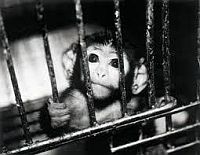
ALTEX: Alternatives to Animal Experimentation (journal)
Alternatives | Animal Welfare Information Center | USDA
This site provides information on methods and sources available to reduce, refine or replace animals used in teaching, testing, and research.
Alley Cat Allies
Alley Cat Allies is the only national advocacy organization dedicated to the protection and humane treatment of cats.
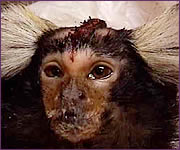
Common Sense for CATS
Animal Aid: Latest News & Campaigns
Primate Portal
The Primate Portal provides an overview of resources and information for investigators interested in transitioning to research involving nonhuman primates.
- Animal Colonies
This is a list of all animal colonies maintained by the U.S. National Primate Research Centers (NPRCs) and other affiliated institutions.
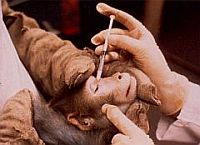
- Thesuarus
ONPRC: National Primate Research Centers
Laboratory Primate Newsletter
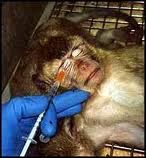
Primate Freedom Project
The Global Resource for Scientific Evidence in Animal Research
National Agricultural Library
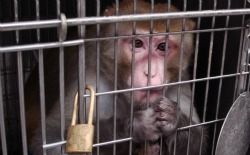
Animal Center | Michigan State University College of Law
Animal Law Coalition
Advocating for animals to live and live free without cruelty and neglect
Chimpanzee Health Improvement, Maintenance and Protection Act (H.R. 3514)
The Jane Goodall Institute
Welcome to Born Free USA
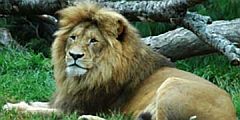
- House Legislation
H.R. 2406: The Sportsmen’s Heritage and Recreational Enhancement Act of 2015 (SHARE Act)
- Speak Out in Support of the CECIL Animal Trophies Act!
- S. 1918: Conserving Ecosystems by Ceasing the Importation of Large (CECIL) Animal Trophies Act
- Cecil the lion's death prompts calls to ban trophy hunt imports to US
July 28, 2015 - The Guardian
- Killing of Cecil the lion prompts calls for EU ban on importing lion trophies
July 27, 2015 - The Guardian | Over 200 lions are legally killed and turned into trophies and sent to Europe every year.
- H.R.2697: Rare Cats and Canids Act
This bill will create the Rare Cats and Canids fund to provide financial resources of up to $5,000,000 per year to conservation programs in nations within the range of these species. Funding will be provided to projects implemented by those with demonstrated expertise in protecting these animals.
- H.R.2494: The Global Anti-Poaching Act
- H.R.1945: Targeted Use of Sanctions for Killing Elephants and Rhinoceros Act
- H.R.2016/S. 1081: Refuge from Cruel Trapping Act (2015-16)
- H.R.5052/S.2587: Weakening FWS' New Ivory Policy | House Legislation
- The Bloody Ivory Trade: Infographic of 2014-2015 Bills Regulating Ivory & Rhino Horn
- Get the Facts: Trapping on National Wildlife Refuges | What is the National Wildlife Refuge System?
- Elephants
- Out of Africa: Mapping the Global Trade in Illicit Elephant Ivory
Full report is PDF file over 12MB downloadable from this page.
"A small number of networks appear to dominate the trade, and seizures across multiple countries and commodities often appear to trace back to the same individuals and networks.
"East Asian nationals, particularly the Chinese, drive the modern ivory trade. Ivory traffickers are primarily Asian organized criminal networks, spanning Asia and Africa. They operate within a networked black market that has ties to various other forms of illicit activity. Chinese traffickers are present in virtually every single African range state, and operate at nearly every point along the ivory supply chain."
- New Report Commissioned by Born Free USA Confirms Organized Crime, Government Corruption, and Militia Links to Elephant Poaching and the Ivory Trade
- Born Free USA Endorses Humane Care for Primates Act (H.R.3556) | 11/21/13
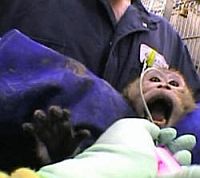
- Born Free USA Blog Archive
- Welcome to the Born Free USA Primate Sanctuary
- Born Free USA Articles

"The gentle pangolin, also known as the scaly anteater, is the most heavily illegally-traded mammal in the world—even more than elephants or rhinos! February 21 is World Pangolin Day: a day to raise awareness of the under-reported plight of pangolins—before it's too late.
"All eight pangolin species (four in Africa and four in Asia) are threatened, and one pangolin is killed every hour in Asia. Pangolin meat is considered to be a luxury product in China and Vietnam and their scales, blood, and fetuses are used in traditional Chinese medicine (despite an absence of scientific evidence to support the alleged medicinal benefits).
"The sad irony is that the pangolin's only defense mechanism against predators is to roll itself into a ball—which actually makes it easier for humans to simply pick the animal up. Humans are the pangolin's top predator, and the two most endangered pangolin species may go extinct within only 10 years."
Born Free USA
Pet Shop Primates | PDF File - Born Free UK
An investigation into the sale of nonhuman primates by licensed pet shops in England.
Chimps are not Pets:
"Charla Nash was involved in a tragic incident several years ago; she was brutally attacked by a pet chimpanzee. As a result of the attack, Charla lost her hands, nose, eyelids, and lips. She also contracted a deadly zoonotic disease resulting in the loss of her eyes, leaving her blind.
"The trade in pet primates too often ends in tragedy. The Captive Primate Safety Act (H.R. 2856) would prohibit interstate commerce in monkeys, apes, and other primates as exotic pets. This commonsense bill would keep both people and primates out of harm's way." -- The Humane Society of the United States
S.1463: Captive Primate Safety Act | GovTrack.us
H.R.2856: Captive Primate Safety Act | GovTrack.us
Did you know?
The U.S. is the world’s largest importer of African lion trophies and parts: one of the many reasons why fewer than 40,000 lions remain in the wild.
A tiger in the U.S. can be purchased online or in person for as little as $300 in the pet trade.
There are more tigers kept as “pets” in the U.S. than there are in the wild.
At the beginning of 2014, only 5,000 black rhinos were left in the wild. More than 1,000 rhinos were poached in South Africa alone in 2013.
A small handful of states still allow bears to be killed solely for their gallbladders to create traditional Asian medicines and toiletries. On the black market, bear gallbladder and bile can fetch prices higher by weight than gold or cocaine.
At least 73 million sharks—many of whom are members of an endangered species—are killed worldwide to supply a demand for shark fin soup.
Over 40% of the 234 primate species are now threatened with extinction.
An estimated 13 million reptiles are kept as pets in the U.S. Most were captured in the wild or are the offspring of wild-caught parents.
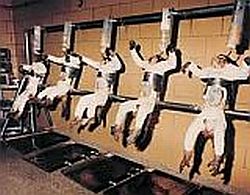
- Nine baboons retired from research lab in New York arrive in South Texas | VIDEO
- Wild Animal Sanctuary | Reader's Digest
Some 25,000 wild animals live in captivity outside U.S. zoos, many horribly abused.
- "Food, Inc." | 94 minutes - IMDb
Part 1: For most Americans, the ideal meal is fast, cheap, and tasty. Food, Inc. examines the costs of putting value and convenience over nutrition and environmental impact.
Director Robert Kenner explores the subject from all angles, talking to authors, advocates, farmers, and CEOs, like co-producer Eric Schlosser (Fast Food Nation), Michael Pollan (The Omnivore’s Dilemma), Gary Hirschberg (Stonyfield Farms), and Barbara Kowalcyk, who’s been lobbying for more rigorous standards since E. coli claimed the life of her two-year-old son.
Part 2: The filmmaker takes his camera into slaughterhouses and factory farms where chickens grow too fast to walk properly, cows eat feed pumped with toxic chemicals, and illegal immigrants risk life and limb to bring these products to market at an affordable cost. If eco-docs tends to preach to the converted, Kenner presents his findings in such an engaging fashion that Food, Inc. may well reach the very viewers who could benefit from it the most: harried workers who don’t have the time or income to read every book and eat non-genetically modified produce every day.
- "Food, Inc." (2009) | YouTube - 58 minutes
- "Food, Inc." | Amazon
The free full online version is difficult to find--I looked hard, believe me--so this might be your best bet. It's inexpensive and worthwhile and safe. However, if you're a DIRECTV customer, you can find it at: "Food, Inc.".
- Sustainable Table | Film Review - Food, Inc
- "Food, Inc." | Wikipedia
Two Major Victories for Animals in the Farm Bill | January 28, 2014 - ASPCA
Senate Passes Farm Bill; Makes Attending an Animal Fight a Federal Crime | February 4, 2014
- Washington: Don't Let Farms Hide Cruelty, Fight the Ag-Gag Bill
- FARM: Farm Animal Rights Movement
- Farm Animal Rights Movement | Wikipedia
- Help Save Farm Animals | World Animal Foundation
- Are Farm Animals Not Considered Animals? | August 25, 2014 | ASPCA
- Walmart Cruelty
Joaquin Phoenix narrates a new MFA undercover video shot at a Seaboard Foods pig factory farm in Colorado—a major Walmart pork supplier.
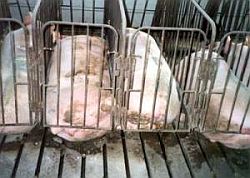 "The disturbing video footage shows:
"The disturbing video footage shows:
- Pregnant pigs locked in tiny metal gestation crates unable to walk, turn around, or lie down comfortably for nearly their entire lives.
- Workers slicing off the tails and ripping out the testicles of piglets using dull razors and their fingers.
- Mother pigs suffering from open wounds and pressure sores left to suffer without proper veterinary care.
- Workers hitting piglets with rock-filled gas cans to force them into overcrowded walkways and transport trucks.
"This investigation at Seaboard is the latest in a string of MFA exposés at Walmart pork suppliers nationwide. Sadly, each of these investigations has revealed the same standard but sickening cruelty and violence to mother pigs and piglets. Perhaps the most egregious form of institutionalized animal abuse in Walmart’s pork supply chain is the use of gestation crates—barren steel and concrete cages that make it impossible for pigs to turn around or lie down comfortably for nearly their entire lives.
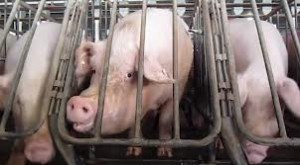 "Gestation crates have been widely condemned as one of the cruelest factory farming practices in the world, as they subject millions of sensitive and intelligent pigs to years of both mental and physical torture. In fact, gestation crates are so inhumane they have been banned in nine U.S. states and the entire European Union.
"Gestation crates have been widely condemned as one of the cruelest factory farming practices in the world, as they subject millions of sensitive and intelligent pigs to years of both mental and physical torture. In fact, gestation crates are so inhumane they have been banned in nine U.S. states and the entire European Union.
"In just the last two years, more than 60 major food providers, including restaurants like McDonald’s, Burger King, Wendy’s, and Chipotle, and major grocery retailers like Safeway, Kroger, Costco, and Whole Foods, have all started demanding their suppliers do away with these cruel crates.
"It’s time for Walmart to do the same!"
--- Mercy For Animals
- Why Investigations? | An eleven minute video that is tough to watch.
In the last several years, dozens of undercover investigations by Mercy For Animals and other animal protection groups have uncovered appalling animal cruelty and shocking food safety hazards within the meat, dairy, and egg industries.
- The Video the Poultry Industry Doesn't Want You to See
"A new Mercy For Animals undercover investigation into a poultry supplier to Gordon Food Service—the largest private foodservice distributor in North America—has exposed horrific cruelty to animals, including baby birds violently slammed into metal shackles before being painfully shocked with electricity and having their throats cut open while still conscious and able to feel pain."
- MFA: Mercy For Animals: Animal Rights Organization
Mercy For Animals is dedicated to preventing cruelty to farm animals and promoting compassionate food choices and policies.
"What's a battery cage?
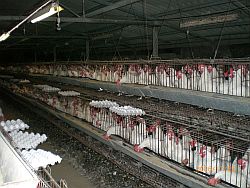 "A battery cage is a tiny, wire cage about the size of a filing cabinet
drawer. Typically, up to a dozen chickens are crammed into a single cage, and
the cages are stacked in tiers inside giant windowless sheds that can run the
length of two football fields. Each shed can confine hundreds of thousands of
chickens, each with less space than a single sheet of notebook paper to live out
her entire life.
"A battery cage is a tiny, wire cage about the size of a filing cabinet
drawer. Typically, up to a dozen chickens are crammed into a single cage, and
the cages are stacked in tiers inside giant windowless sheds that can run the
length of two football fields. Each shed can confine hundreds of thousands of
chickens, each with less space than a single sheet of notebook paper to live out
her entire life.
"In such extreme confinement, these poor animals can't even spread their
wings, much less move around without stepping on and climbing over other hens.
"Just weeks before California voters went to the polls to cast their ballots
to give egg-laying hens more room, my friends at Mercy For Animals released
startling video footage from inside two of the state's largest egg factories.
The videos showed birds packed in cages so tightly that they could hardly move,
countless chickens injured and trapped by cage wire, and dead hens left to rot
in cages with live birds still laying eggs for human consumption.
"Although these inherently cruel cages are now banned in California, millions
of animals throughout the rest of country continue to suffer in these
gut-wrenching conditions."
MFA: Mercy For Animals

- Animal Aid: Latest News & Campaigns | UK
- Green is the New Red - Activism is not Terrorism
- ALEC: American Legislative Exchange Council
Limited Government - Free Markets - Federalism
- ALEC Exposed | The Center for Media and Democracy
- Ag-Gag Bills at the State Level | ASPCA
"Ag-gag" or anti-whistleblower bills are appearing in state legislatures across the country. While crafted to appear reasonable, these measures are designed to prevent the exposure of troubling practices at agricultural facilities.
- Bill that Bans Undercover Filming at Farms Enacted in Idaho
February 28, 2014 - NPR
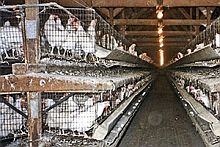
- Idaho Gov. Signs Ag-Gag Bill into Law | February 28, 2014 - Aljazeera America
Law criminalizes secretly filming on farms; animal rights groups say abuse will now go unexposed
- Anti-Whistleblower Bills Hide Factory Farming Abuses from the Public
January 7, 2014 - The Humane Society of the US
- Ag-gag | Wikipedia
- The Center for Media and Democracy's PR Watch | Reporting on spin and disinformation since 1993
- ASPCA: American Society for the Prevention of Cruelty to Animals
- Animals Matter Too
The purpose of Animals Matter Too is to gather & share information relating to the humane and compassionate treatment of all animals. Whether a dog, cat, horse, bird, farm or wild animal, it's incomprehensible for us to do nothing while they are abused and tortured for the sake of money, research or entertainment.
Dog Fighting
Put an End to Dog Fighting Operations
Georgia has become a state well known for illegal dogfighting.
"How Dog Fighting Works" | HowStuffWorks
Dog Law Reporter: Dog Fighting "Legend" Deserves Maximum Sentence, Federal Appeals Court Holds
 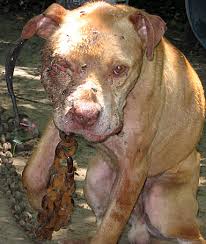 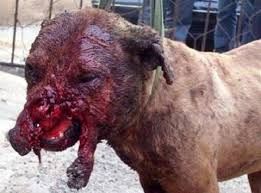
Dogfighting | PETA
Dogfighting | Humane Society of the United States
Dog Fighting Fact Sheet
Dogfighting | ASPCA
Dog Fighting FAQ | ASPCA Professional
Knock Out Dog Fighting//Dedicated to Stopping Cruelty and Abuse
Dogfighting News | The New York Times
The Animal-Cruelty Syndrome | The New York Times Magazine
Chart of State Dog Fighting Laws | Hanna Gibson
This chart, updated in 2014, lists the state laws concerning dog fighting.
To date, all states have enacted laws that make actively participating in dog fighting a felony.
Several states still regard being a spectator at a fight as a misdemeanor.
- Animal Legal & Historical Center at Michigan State University -
Please Help Stop Organized Dog Fighting
5 Worst States to be an Animal: Abuse Laws Lax
By Kim Thornton - 2/3/10 - NBC News
- Animal Rights | Wikipedia
- Petitions for Animal Rights -- Covering Cruelty, Testing, and Abuse
- Care2 - largest online community for healthy and green living, human rights and animal welfare

- Petition Site - Start Free Petitions
- Stop the Opening of Horse Slaughter Plants | ForceChange
- Laura Moretti: America's Disappearing Wild Horses
- URGENT: Stop Horse Slaughter NOW! | ASPCA
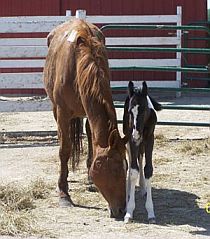
- Voctory! Congress Says Nay to Horse Slaughter in the U.S. | January 15, 2014 - Blog - ASPCA
- S.541/H.R.1094 - The Safeguard American Foods Export Act of 2013 | ASPCA
- Animal Welfare Institute
- Support the Safeguard American Food Exports Act | PDF File - The Humane Society
- Return to Freedom
- Last of the Wild Mustangs | Free Download and Streaming - Internet Archive
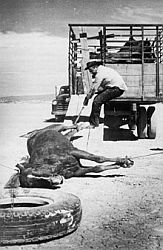
- Is there horse meat in dog food?
By Lindsay Stordahl, January 25, 2009
- Global Animal
"Your daily news magazine, from pets to wildlife"
- Animal Law Coalition
- Plan To Slaughter Horses For Human Consumption Met With Distaste | NPR
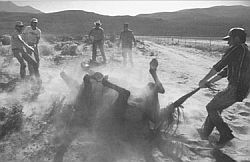
Energy
This section was originally included in the one on environment. But, because of its multifaceted nature, it could also be placed in the sections on economics, health, international affairs, and sustainable development, among others. It represents the underlying strata in this overall picture of the world and expresses the theme of this endeavor: the interdependence and interconnectivity of world societies, the events that shape the lives of people and their consequences.
Documentaries
- IAEA: International Atomic Energy Agency
- IEA: International Energy Agency
The International Energy Agency (IEA) is an intergovernmental organisation which acts as energy policy advisor to 28 member countries in their effort to ensure reliable, affordable and clean energy for their citizens.
- World Energy Council
Our network of 93 national committees represents over 3000 member organizations including governments, industry and expert institutions.
- NEI: Nuclear Energy Institute
NEI's Mission: The Nuclear Energy Institute (NEI) is the policy organization of the nuclear energy and technologies industry and participates in both the national and global policy-making process.
- Global Wind Energy Council (GLEC)
- UN -- Energy
- Europa | Official Website of the European Union
- Sustainable Energy | Europe Campaign | European Commission
- EER European Energy Regulators: CEER & ERGEG
- CGES | Centre for Global Energy Studies
A leading authority on the economics and politics of energy, oil and gas.
Fracking
Fracking, or hydraulic fracturing, is the act of drilling and injecting fluid into the ground at a high pressure so as to fracture shale rocks and release natural gases inside. Currently, there are more than 500,000 active natural gas wells across the United States. Every site needs roughly 400 tanker trucks carrying water and supplies to the area. Between 1-8 million gallons of water and 40,000 gallons of chemicals are used per fracture. Those chemicals can include up to 600 different harmful substances. A pipeline is drilled approximately 10,000 feet into the Earth, and the fluids are forced down to the shale rocks containing natural gases. The waste fluids are left behind to evaporate, although this is also a problem because the chemicals in these mixtures can leak into water sources or return as acid rain. - Force Change
There is a separate, more comprehensive page to be found at 'Fracking' - Hydraulic Fracturing.
- PR Watch | Reporting on spin and disinformation since 1993
- H.R.2728 - 113th Congress: Protecting States' Rights to Promote American Energy Security Act | Congess.gov
- Protecting States' Rights to Promote American Energy Security Act (H.R.2728) | Govtrack.us
- "Unearthed: The Fracking Facade" | 24 minutes - Top Documentary Films
- "Gasland" (2010) | 107 minutes - IMDb
- "Gasland" | Trailer - YouTube
- "Gasland II" -- Fracking FAQs
- Fracking & Unconventional Gas in the UK | Top Films
Extreme Energy Action Network
- LinkTV - ISSUE: Fracking | Videos "Fracking Hell: The Big Story"
This three-hour compilation special digs deep into the issues of hydraulic fracturing, or "fracking."
Fracking chemicals are linked to bone, liver and breast cancers, gastrointestinal, circulatory, respiratory, developmental as well as brain and nervous system disorders. Such chemicals are present in frack waste and may find their way into drinking water and air.
- Watch Free Online "The Sky is Pink" | by Josh Fox - Top Documentary Films
- Fracking hell? Photo series follows families who say their lives and communities have been destroyed by the industry
February 23, 2014 - Mail Online
- Fracking | The People's Virtual Library
"Below are links leading to information sources on “horizontal hydrofracking” or “fracking” and the anti-fracking movement."
- Hydraulic fracturing | Wikipedia
- Cancer-Causing Chemicals Used in 34 Percent of Fracking Operations
January 22, 2013 - Eco NEWS - EcoWatch
- Fracking Chemical Database | FracFocus Chemical Database Download | SkyTruth
- FracFocus | Chemical Disclosure Registry
Hundreds of companies, thousands of wells. Find a well site near you. Search for nearby well sites that have been hydraulically fractured to see what chemicals were used in the process.
- What Chemicals are Used in Fracking | PDF
- Health Effects of Chemicals Used in Fracking | Physicians for Social Responsibility
- The Endocrine Disruption Exchange
- Congress Releases Report on Toxic Chemicals Used in Fracking | April, 2011 - 8020 Vision
- Millions of Gallons of Hazardous Chemicals Injected into Wells | April 16, 2011 - New York Times
- Documents: Natural Gas's Toxic Waste
Over the past nine months, The Times reviewed more than 30,000 pages of documents obtained through open records requests of state and federal agencies and by visiting various regional offices that oversee drilling in Pennsylvania. Some of the documents were leaked by state or federal officials. Here, the most significant documents are made available with annotations from The Times.
- Learn about toxic chemicals used in hydraulic fracturing | ToxMap
- ProPublica - Journalism in the Public Interest
- Independent Water Testing
- The Halliburton Loophole | PDF File
- EPA | Water Home
- National Institute of Environmental Health Sciences
- Report of the National Energy Policy Development Group - May 16, 2001 - PDF File
- Clean Water Action
- Fracking | SourceWatch
- Earthworks
- Energy Policy Act of 2005 | Wikipedia
- Frackwire - Hydraulic fracturing news & information
- Energy Policy of the United States | Wikipedia
- CSA -- Proquest
- U.S. Energy Policy -- Expert Discussion on Climate Change and Energy Security
- Energy & Environment | The White House
- U.S. Federal Energy Regulatory Commission (FERC)
- United States Nuclear Regulatory Commission
- NRC Library
NRC releases several hundred documents to the public each work day.
- U.S. Department of Energy Home Page
- Energy Policy and Conservation Act of 1975 | PDF File - House.Gov
- Energy Law | USLegal, INC.
- Energy Policy and Conservation Act of 1975 | Wikipedia
- EIA: U.S. Energy Information Administration: Independent Statistics and Analysis
- BOEM: Bureau of Ocean Energy Management
- MarineCadastre.gov
MarineCadastre.gov is an integrated marine information system that provides ocean data, offshore planning tools, and technical support to the offshore renewable energy community. The project was designed specifically to support renewable energy siting on the U.S. Outer Continental Shelf but is also being used for other ocean-related efforts. - See more at: http://www.marinecadastre.gov/MMC%20Pages/about.aspx#sthash.aXaQOj0B.dpuf
- Official Arctic National Wildlife Refuge Site
- Institute for Energy Research
- U.S. Department of Commerce
- Platts: Overview
- DOE - Announcement of US-China Clean Energy Research Center
- US-China Clean Energy Forum
- Consumer Energy Report - Energy News, Crude Oil, Gas Prices, Alternative Energy
- "The Nuclear Energy Option"
By Professor Bernard Cohen, University of Pittsburgh, published 1990
- Study Says Coal Plant Pollution Kills 30,000 a Year
- Center for Radiological Research
The raison d'etre of the Center for Radiological Research of Columbia University is to foster a multi-disciplinary approach towards understanding the biological consequences of ionizing radiation exposures.
- The Envirolink Network
The EnviroLink Network is a non-profit organization founded in 1991. EnviroLink maintains a database of thousands of environmental resources and provides internet services to non-profit organizations.
- ENERGY
Includes links to EESI, ISEO and other organizations
Keystone XL Pipeline
There is a separate, more comprehensive page at Keystone XL Pipeline.
Senate Defeats Bill on Keystone XL Pipeline in Narrow Vote | November 18 - The New York Times
Senate defeats Keystone XL pipeline | November 19 - USA Today
Keystone Pipeline | The Huffington Post
The Keystone XL pipeline isn’t about lowering your gas prices
November 17, 2014 - The Washington Post
- Oil Sands | Fuel Research & Development for the 21st Century
Public Education and Outreach - Earth and Mineral Sciences - Penn State University

- What's the Problem with the Tar Sands?
- Corporate Ethics International
CEI was funded to research and organize the International Tar Sands Oil Campaign.
- Shift | Beyond the Numbers of the Climate Crisis | 57 minutes - Video - Vimeo
A film by brother/sister duo, Sam and Kate Fulbright to take a closer look at what climate change really means in the United States, and dive beyond the daunting numbers and graphs to meet the people and communities effected by the problem of climate change.
- Uncovered: The Lost Keystone XL Ads | VIDEO - NextGen
- Tar Sands Crash Course - What you should know about tar sands | NextGen
- State Dept. Releases Keystone Pipeline Report Amid Conflict-of-Interest Controversy
February 3, 2014 - AllGov.com
- Keystone XL Pipeline Project | U.S. Department of State | Update - January 31, 2014
A 30-day public comment period begins on February 5, 2014 and will close on March 7, 2014
- Keystone (XL) Cops, Part XLVIII: Pipeline Gets State Department’s Green Light
January 31, 2014 - Business Week
- State Department releases Keystone XL final environmental impact statement | The Washington Post
- Keystone Pipeline | Wikipedia
- Keystone PipeLIES Exposed: The Facts on Petroleum Politicians, Crude Money and Media Spin
February 28, 2014 - PR Watch
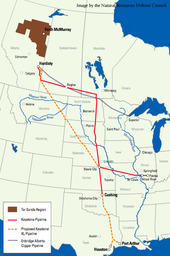
- Keystone XL Facts | TarSands Action
- NRDC: Natural Resources Defense Council
→ Click transit map for larger version →
- Politico
- Urge State Department to Stop Attempts to Obliterate Endangered Species | Animal Petitions
- The Keystone XL Pipeline | November-December 2013 - Harvard Magazine
- Keystone XL Tar Sands Pipeline | Voices for Progress
"Construction of the Keystone XL pipeline will greatly hinder our ability to prevent a global climate catastrophe. Its direct impact on climate is significant—the equivalent of seven coal-fired power plants operating continuously or having 6.2 million cars on the road for 50 years, according to EPA calculations."
- Keystone XL Pipeline | Inhabitat
- EXCLUSIVE: State Deptartment Hid Contractor's Ties to Keystone XL Pipeline Company | March 21, 2013 - Mother Jones
"Another ERM employee who contributed to State's Keystone report—and whose prior work history was also redacted—previously worked for Shell Oil; a third worked as a consultant for Koch Gateway Pipeline Company, a subsidiary of Koch Industries. Shell and Koch* have a significant financial interest in the construction of the Keystone XL pipeline. ERM itself has worked for Chevron, which has invested in Canadian tar sands extraction, according to its website."
- Keystone XL Pipeline | The Wildlife News
Toxic waste from tar sands mining contains
ammonia, cyanide, arsenic and other known carcinogens.
- Energy, Oil, Natural Gas, Coal, Nuclear, Gasoline, Solar, Wind
- "Coal Ash is More Radioactive than Nuclear Waste"
from Scientific American, December 13, 2007, by Mara Hvistendahl
- Fossil Fuels versus Renewable Energy
- Fossil Fuels | University of Michigan
- Fossil Fuel Facts
- Interesting Energy Facts
- Alternative Energy Sources | University of Utah
- Alternative Energy | About.com
-- What are the most common sources of alternative energy?
- The Most Common Alternative Energy Sources | Blog
- Alternative Energy News
News and information resources about renewable energy technologies
- Encyclopedia of Alternative Energy and Sustainable Living
Entries in the Encyclopedia of Science
- Renewable Energy Sources
Latest trends in research and development
- Renewable Energy Resources
A Research Guide for Students
- Renewable Energy Nonprofit Organizations in the World
- Wind Power | Union of Concerned Scientists
- Ideas into Action for Peace, Justice, and the Environment | Institue for Policy Studies
- GreenNet
GreenNet is part of the only global computer network specifically designed for environment, peace, human rights and development groups. Clear summaries of international scientific documents.
- The Whirled Bank Group
- Oil Watchdog
- OilWatch
"Oilwatch is a resistance network that opposes the activities of oil companies in tropical countries."
- Timeline of the Deepwater Horizon Oil Spill | Wikipedia
- The Deep Water Horizon Threat
By S. Elizabeth Birnbaum and Jaqueline Savitz - April 16, 2014 - The New York Times
- Exclusive: 4 Years After BP Disaster, Ousted Drilling Chief Warns U.S. at Risk of Another Oil Spill
April 21, 2014 - Video plus Transcript - Democracy Now!

- Beyond the Deepwater Horizon | April 21, 2014 - Mission Blue
- 4 years later, Obama and the feds risk another BP-sized catastrophe
April 17, 2014 - Stuart Smith
- Deep-Water Horizon Court Supervised Settlement Program
- List of Animals Affected and Endangered by the Gulf of Mexicao BP Oil Spill
PICTURES
- Congressman Polis Introduces Bill to Force DOI, OIL Industry to Abide by Endangered Species Act
Press Release, July 27, 2010
- Effects of Oil Spills on Marine and Coastal Wildlife
PDF File - Holly Ober - Department of Wildlife Ecology and Conservation - University of Florida
Peace|Religion

- Pathways To Peace
Pathways To Peace (PTP) is an international PeaceBuilding, Educational and Consulting organization.
- Peace Corps
In 1961, President John F. Kennedy established the Peace Corps to promote world peace and friendship.
- Peace Brigades International
Promoting non-violence and protecting human rights defenders since 1981.
- GlobalCorps
GlobalCorps, a division of XL Associates, is dedicated to our mission of matching the most qualified professionals in the development, humanitarian and disaster relief field with organizations looking for these individuals.
- CEIP: Carnegie Endowment for International Peace
Founded in 1910, the Carnegie Endowment for International Peace is a private nonprofit organization dedicated to advancing cooperation among nations and promoting active international engagement by the United States. The nonprofit, nonpartisan organization publishes Foreign Policy magazine, conducts research, publishes books and policy papers, and sponsors conferences on international topics. Founded in 1910 by Andrew Carnegie, the organization has a long history of studying war and promoting peace and international cooperation.
- "Foreign Policy"
A magazine devoted to global politics, economics and ideas
"Our mission is to explain how the world works—in particular, how the process of global integration is reshaping nations, institutions, cultures, and, more fundamentally, our daily lives."
- Berkley Center for Religion, Peace and World Affairs
- The Fund for Peace
The Fund for Peace is an independent, nonpartisan research and educational organization that works to prevent war and alleviate the conditions that cause conflict.
- Peace.Org
A resource for peace and co-existence
- USIP: United States Institute of Peace
USIP is the independent, nonpartisan conflict management center created by Congress to prevent and mitigate international conflict without resorting to violence.
- All Nobel Peace Prizes
- The International Day of Peace
September 21, 2010
- Seeds of Peace
Founded in 1993 by journalist John Wallach, Seeds of Peace is dedicated to empowering young leaders from regions of conflict with the leadership skills required to advance reconciliation and coexistence.
- Principia Cybernetica
Systems Theorists; this page is philosophically oriented.
- Simon Wiesenthal Center: Museum Of Tolerance
- The Talk.Origins Archive
Exploring the Creation/Evolution/Intelligent Design Controversy
- THE WELL
"The WELL is an online gathering place like no other. Since 1985 this literate watering hole has drawn thinkers from all walks of life -- people who like an intelligent and uninhibited conversation in a members-only environment."
- Maps of War:: Visual History of War, Religion and Government
- Virtual Religion Index | Rutgers University
- The United Religions Organization
- United Religions Initiative
- United Religions Initiative | Wikipedia
The URI is composed of 426 Cooperation Circles (CCs) in 72 countries worldwide as of November 2009.
- United Religions Initiative at the United Nations
- Religion -- World Religions -- Comparative Religion
just the facts
- Religious Tolerance
Over 5300 essays
- World Religions Today: Chapter 01: Introduction
By John L. Esposito, Darrel J. Fasching, Todd Lewis | Oxford University Press
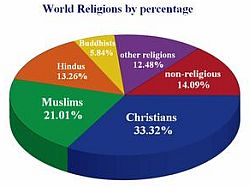
- Wikipedia
- Patheos | Hosting the Conversation on Faith
- Judaism 101
- Torah.org - The Judaism Site
- Gospel | Wikipedia
- The Gospel of Thomas Homepage
- gospels.net
The mission of gospels.net is to facilitate easy access to reliable, up-to-date resources for the study of early Christian gospels not included in the New Testament, especially the Gospel of Thomas.
- Early Christian Writings
- Gospel of Mary of Magdala
- The Secular Web
- Early Jewish Writings
- The Gnosis Society: Resources on Gnosticism and Gnostic Tradition
- The Reluctant Messenger of Science and Religion
- 'Gospel of Judas' Surfaces after 1700 Years | New York Times
- Internet Sacred Texts Archive

- Siberian Shamanism
- Tlinget Creation Story
- Shamanism Among the Peoples of Western and Eastern Siberia
- Shamanic Teacher Links
- Shamanism: Foundation for Shemanic Studies
- International School of Shamanism
- Mysticism - Stanford Encyclopedia of Philosophy
- Theism & Shamanism
- Aboriginal Culture | Australia
- FORE: Overview of World Religions and Ecology
- Council for a Parliament of the World's Religions

- Religion-Latin America: Indigenous Peoples Divided by Faith | IPS - Inter Press News Service
- Indigenous Traditional Religions | PDF File
- United Communities of Spirit
- Taoism and the Philosophy of Tai Chi Chuan
- Taoism: Ageless Wisdom for A Modern World
- The Wei Wu Wei Archives
This site is intended as a resource for those interested in or curious about Buddhist/Taoist philosopher and essayist Wei Wu Wei.
- BuddhaNet - Worldwide Buddhist Information & Education Network
- Basics of Buddhism | PBS
- Zen Cyber Bones: Electronic Resources on Zen Buddhism
- Japanese Zen Buddhist Philosophy
Stanford Encyclopedia of Philosophy
- D. T. Suzuki | Wikipedia
- Zen Guide: Comprehensive Guide to Zen & Buddhism
- Zen Buddhism - Thematic Essay | Metropolitan Museum of Art

- Expressions of Spirit
- Sacred Texts: Buddhism
- Manas: Religions of India
- Religion in India | Wikipedia
- Distribution of Religions in India
- Indian Religions
- Religions of India: Table of Contents
- Welcome to the Heart of Hinduism
- Hinduism Home Page
- African Traditional Religion
- Africa | African Cultural Center
- Freedom of Religious Belief in China
Information Office of the State Council Of the People's Republic of China | October 1997, Beijing
- Chinese Religion Origins, History, Beliefs
- Religion in China | Council on Foreign Relations
- [Culture] Religions & Beliefs in China - China Political & Defence Forum
- IARF: International Association for Religious Freedon
- General Essay on The Religions of Latin America
- Home - Religion in Latin America - Yale University Subject Guides
- Religion in Latin America
PDF File | by Lee M. Penyak and Walter J. Petry
- Religion & Theology in Latin America | LANIC - University of Texas
- Wikipedia
- Map of Religion in Middle East | The Gulf Blog
- Global Connections - The Middle East: Religion | PBS
- The Distribution of Religion in the Middle East - Map
- Religious Beliefs and Violence in the Middle East
By Jim Walker
- Discover the Networks
This website describes the networks and agendas of the political Left.
- Sharia Law
- Sharia | Wikipedia
- Islam: Governing Under Sharia | Council on Foreign Relations
- Windows to the Universe
- Peace and Justice Studies Association
- lists.essential.org
DIRECTORY of mailing lists
- Tile.net - Email List Directory
- Listservs/Mailing Lists
- American University Listserv
Server
Conflict Resolution
- U.S. Institute of Peace
The United States Institute of Peace (USIP) provides the analysis, training and tools that help to prevent, manage and end violent international conflicts, promote stability and professionalize the field of peacebuilding.
- Dispute Resolution Organizations
- Association for Conflict Resolution
- Alliance for International Conflict Resolution and Prevention
- CRI
Conflict Resolution Research and Resource Institute
"Our Mission is to teach and practice the prevention, management and resolution of conflict in the community, the nation and the world through the utilization of time-tested theories, processes and techniques which ensure equitable, practical and lasting agreements."
- IISS: The International Institute for Strategic Studies
Founded in 1958, IISS is an independent centre for research, information and debate on the problems of conflict.
- ELDIS: The Gateway to Development Information
- Beyond Intractability -- More Constructive Approaches to Destructive Conflicts
- Peace and Conflict Home on the Web
- College of Behavioral and Social Sciences
University of Maryland
- CIDCM
Center for International Development and Conflict Management at University of Maryland
- International Crisis Group Home Page
The International Crisis Group (ICG) is an independent, non-profit, multinational organisation, with 90 staff members on five continents, working through field-based analysis and high-level advocacy to prevent and resolve deadly conflict.
- "The International Study of Peace/Conflict Resolution Organizations"
PDF File
- International Conflict Resolution: Information Sources
- World For World Organization
- Legacy International | Conflict Resolution Organization
- Center for Nonviolent Communication
- PCCP from Potential Conflict to Cooperation Potential
Water Conflicts
- FMCS: Agency Departments -- International Dispute Resolution
- INCORE
The Initiative on Conflict Resolution and Ethnicity: This is a catalogue of
major data resources in ethnic conflict.
- Search for Common Ground
- Conflict Resolution in the YAHOO Directory
- The History Guy
Countries|Cultures|MAPS
The library has a section on MAPS/Geography.
Performing a GOOGLE IMAGE search on world map will return maps leading to websites.
Plus, if all you're looking for is an interesting and informative map, this is the direct route.
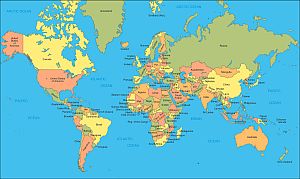 → Click image to the right for larger version ... →
→ Click image to the right for larger version ... →
- Absolutely All of the World's Embassies in a Searchable Database
- U.S. Department of State
Websites of U.S. Embassies, Consulates, and Diplomatic Missions
- UNESCO: United Nations Educational, Scientific and Cultural Organization
- CIA: Central Intelligence Agency
- Countries of the World
Twenty-eight years of CIA World Fact Books
- Europa World Online
Europa World Plus is the online version of the Europa World Year Book and the nine-volume Regional Surveys of the World series.
- United Nations Cartographic Section - Department of Field Support
- Library of Congress
- Global Gateway: World Culture & Resources
- Country Studies: Area Handbook Series
(Library of Congress/Federal Research Division)
"The Country Studies Series presents a description and analysis of the historical setting and the social, economic, political, and national security systems and institutions of countries throughout the world and examines the interrelationships of those systems and the ways they are shaped by cultural factors."
- Library of Congress Map Collections Home Page
- Alexandria Digital Library
The Alexandria Digital Library (ADL) is a distributed digital library with collections of georeferenced materials.
- The Perry-Castaneda Library Map Collection
This growing collection contains more than 250,000 maps world-wide from the University of Texas, Austin.
- World Political Maps, Physical Maps, Satellite Images
From Geology.Com
- The Ryhiner Project
The Ryhiner map collection is one of the most valuable and outstanding collections of the world. It consists of more than 16,000 maps, charts, plans and views from the 16th to the 18th century, covering the whole globe.
- NOAA's Online Chart Viewer
- Maps and Mapping Resources - Geography - US Census Bureau
- List of U.S. States and Territories by Area | Wikipedia
- World by Map: Statistics, Maps and Charts
- Charts & Maps | World Resources Institute
- World Climate
Climate data and sunrise/sunset displayed in charts and tables for 149 countries and regions, more than 12,000 specific locations.
- World Aviation Maps and Charts
These charts are jointly produced by the military of USA, Canada, Australia and Britian.
- University of Idaho Library
- The National Academy of Sciences of Belarus
- Historyteacher.net
- Nations Online Project
- Geographia -- World Travel Destinations, Culture and History Guide
- Encyclopedia of the Nations -- Information about Countries of the World
"The Encyclopedia of the Nations is a complete source for detailed information about one hundred ninety three countries in the world, information about the United Nations and the associated agencies, and World Leaders."
- Open Directory
- Infoplease.com
- History Central
- NationMaster: World Statistics, Country Comparisons
From Mission Statement: "To promote education and understanding about the world. To make it easy to engage with the indicators that shape global commerce, health, politics and ecology."
- Languages Directory
Alpha Dictionary Language Directory
- Ethnologue - Languages of the World
An encyclopedic reference work cataloging all of the world’s 6,909 known living languages.
- Lists of Languages | Wikipedia
- MuturZikin - Language Maps of the World
- Languages of the World
- The 50 Most Widely Spoken Languages in the World
- The 25 Most Influential Languages in the World
- ERIC: Education Resources Information Center
World's largest digital library of education literature
Asia|India
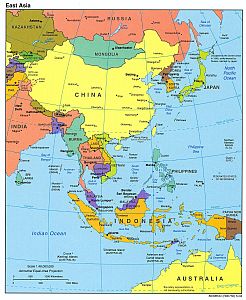
- Map of Asia, Asian Countries, and Asian Landforms and Rivers -- World Atlas
- Maps of Asia: Political Maps
- Political and Physical Maps -- Satellite Images
- Asia | Wikivoyage
- Japan Information Network
- Web Japan
- Tokyo Information Network
- The Star Online: Malaysia News Center
- China: People's Daily Online
- China Gateway
U. S. Department of Commerce
- Chinadaily - US Edition
- U.S. Embassy in Beijing
- Human Rights in China
- General China Information
- BBC News- China's New Leaders | November 15, 2012
- The Cardinal Kung Foundation
- Center for Studies on New Religions
- Falun Dafa Home Page
- American Consulate General Hong Kong & Macau
- Taiwan Security Research
- American Institute in Taiwan
- The Heritage Foundation
Conservative policy research and analysis
- World Wide Web Virtual Library
- Asia Pacific Forum of National Human Rights Institutions
- Paris Principles
PDF File
- The Paris Declaration on Aid Effectiveness and the Accra Agenda on Actiona | PDF File
- YAHOO! NEWS
- FORUMASIA
Asian Forum for Human Rights and Development
- AsiaOne
- Asian Search Engines and Directories
- Asian Search Engines
- Internet Search Engine Guide
- What The Ancients Knew: Indian Metal Workers: Video
- ABS_CBN News | Latest Philippine Headlines
- Philippines News
- East Timor & Indonesia Action Network
- Welcome To Virtual Bangladesh
- Free Tibet
- Tibet Online
- Nepal NEWS
- The Himalayan Times
- The Hindu
Online Edition of India's National Newspaper
- Embassy of India, Washington, D.C.
- IDRF: India Development and Relief Fund
- Expressindia.com | Latest NEWS
- The Lanka Academic
Sri Lanka NEWS Updated 24 Hours a Day.
Russia|Caucasus|Central Asia
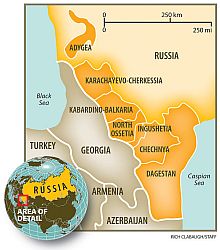
- Russia: History, Geography, Government, and Culture
From Infoplease
- Environmental Policy and Ethics: "The Online Gadfly"
- Political Maps of Russia
- World Map | Mapsofworld
- Russian and the Former Soviet Republics: MAPS
- Russian Caucases
- Caucusus and Central Asia: Regional Maps
- Caucusus and Central Asia Political Map
- Central Europe News | Central Europe Online
- Map of Georgia
Includes European Countries
- Lehigh Around the World: Eastern Europe, Central Asia, Russia and the Caucusus
- A Global View of the Russian Far East
- The Red Book of the Peoples of the Russian Empire
- The Kamchatka Page
- Koryak Texts
- Koryak Language and Culture
- Kamchatka Peninsula Maps
- Aboriginal Peoples of the Russian North
- Siberian Shamanism
- Shamanism in Siberia
A Study in Social Anthropology by M. A. Czaplicka
- Soviet/Russian Intelligence Agencies
- F & P Friends and Partners
Welcome to Friends and Partners, jointly developed by friends in the US and Russia to promote better understanding between the people of our countries.
- Russinfo -- RESOURCES
- MEMORIAL
International historical-Enlightment-Human Rights and Humanitarian Society
- Window-to-Russia Home Page
- EurasiaNet.org
News and Analysis from Central Asia and the Caucusus
- CaucasusWatch.Com
- Cyndi's List of Genealogical Sites
- Romanian Newspapers
- Romainian Newspaers & News Sites
- Romainian Newspapers
- Ziare.COM
Romanian Newspapers in Romainian, no less.
- BosniaLINK
Welcome to BosniaLINK, the official Department of Defense information system about U.S. military activities in Operation JOINT FORGE, the NATO peacekeeping mission in Bosnia.
- MediaFilter Org
- Special and Alternative News Sources on Kosovo
- Afghan Network Interactive
- Afghanistan On-Line
- IDEE
The Institute for Democracy in Eastern Europe (IDEE) is a not-for-profit tax-exempt corporation begun in 1986 to support the growing opposition movements in Eastern Europe seeking democratic change and an end to communism.
Middle East
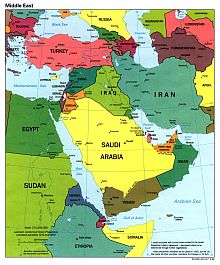
- Global Studies: Middle East | Nations
- Nations Online Project
- The Jewish Virtual Library
- IranNewsWatch
News about Iran
- Israel Forum
- Afghanistan Information Center
- Middle East Directory
- Middle East & Islamic Studies | Columbia University Libraries
- Antique Maps of Entire Middle East
- Antique Maps of the Middle East
- Antique Maps of the Mid East/Holy Land
- Columbia University Libraries
- lookLexic: Africa and Middle East
- Minaret of Freedom Institute
- Arab News
- Jordan Times
- Haaretz - English
- The Gulf Daily News | The Voice of Bahrain
- BBC News - Middle East
- MEMRI
The Middle East Media Research Institute
- WorldLinkTV Mosaic
Mosaic features selections from daily TV news programs produced by national broadcasters throughout the Middle East. The news reports are presented unedited and translated, when necessary, into English.
- Al-Jazeera America
- Watch Al-Jazeera TV in English
- Arabic News
- Beirut NEWS
Includes links to other area news sources, Guides and Directories, World News by Continent in a drop-down menu under REGIONAL
- The Daily Star
The Lebanese Newspaper in English
- Israel News from the Jerusalem Post Internet Edition
- Home Birzeit University | Palestine
- The Palestinian Information Center
- Alternative Information Center
- Palestine Links
Inclides links to other area news sources.
- Palestinian Media Watch
- HOME Arab News
Africa

- Nations Online Project
- African Embassies in the US
- US Embassies in Africa
- Absolutely All of the World's Embassies in a Searchable Database
- African Studies: Embassies, Flags and Missions
Columbia University
- Africa Action: Activism for Africa
- Africa Policy Institute
- African Studies Home Page
from Columbia University
- Africa South of the Sahara - Breaking News
- National Museum of African Art
- EIN NEWSDESK
- Pastoral and Environmental Network in the Horn of Africa
- Royal African Society
The Society was founded in 1901 to commemorate and continue the work of Mary Kingsley, an extensive traveler of the continent and a writer and scientist on the study of Africa. It promotes relations between the UK and Africa as a whole - raising understanding and interest in all issues relating to Africa.
- African Studies
WWW (U. Penn)
- World Map | Mapsofworld
- BlatantWorld - stuff we should know about
- Norwegian Council for Africa
- AllAfrica.COM
AllAfrica.com is updated throughout the day with hundreds of stories from more than 80 African news organizations
- Welcome to the Embassy of the Republic of Angola
- Daily Mail & Guardian Home Page
Zimbabwe
- Algeria-Watch.org
German, French and English
- Sudan
- Congonline
in French
Latin America
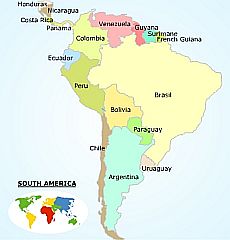
- MAPS of Latin America
- Maps of South America, South American Countries, Landforms, Rivers, etcetera
From World Atlas
- LatinoWeb
- CiberCentro - Your Information Gateway to Latin America
Most complete guide for the 20 Spanish speaking countries
- LANIC
Latin American Network Information Center
- Mexican Academy
for Human Rights
Choice of Spanish or English
- Information on the Zapatista Rebellion in Chiapas, Mexico
- Republic of CUBA
WWW HOME PAGE
- CubaNet News
Alternative News & Information|Events
- Free Speech TV
Free Speech TV is an independent, 24-hour television network and multi-platform digital news source with news, stories and perspectives you won’t find anywhere else.
- Connecting You To The World | Link TV
LinkTV World News is your connection to unique news videos from around the world. From breaking news to stories you haven't seen elsewhere, our vision is to offer video as an entry point to seeing the world from different points of view. Link TV broadcasts programs that engage, educate and activate viewers to become involved in the world. These programs provide a unique perspective on international news, current events, and diverse cultures, presenting issues not often covered in the US media.
- Documentaries
- News & Current Affairs Programming
Link TV delivers international news from diverse sources around the world, and presents a wide array of viewpoints not found in the mainstream media. By looking at the news the way the rest of the world sees it, we offer an inside-out perspective on global affairs and show how America is perceived in other countries.
- Focus Forward - Short Films, Big Ideas
Short Films, Big Ideas is an award-winning series of 30 three-minute stories about innovators—people who are reshaping the world through act or invention—directed by the world's most celebrated documentary filmmakers.
- Participant TV
- PIVOT TV - Documentaries
- ThinkProgress
- Truthdig: Drilling Beneath the Headlines
- Democracy Now!
Democracy Now! is a national, daily, independent, award-winning news program hosted by journalists Amy Goodman and Juan Gonzalez.
- World Information.com
- Disinformation: Everything You Know Is Wrong
- Project Censored
- MHz Networks
"MHz Networks is an independent, non-commercial television broadcaster delivering international, educational programming and providing diverse cultural perspectives for a globally-minded audience."
- The Observers | de France 24
- RT Latest News
RT is the first Russian 24/7 English-language news channel which brings the Russian view on global news.
- NHK World English -- Latest News
- International News | euronews, latest international news
- indymedia
- Stripes -- Independent US Military News from Iraq, Afghanistan and Bases Worldwide
- Alternative News Net
- EIN NEWSDESK
- The Independent Radio Network of Sierra Leone
- List of independnent radio stations | Wikipedia
- Public Reality Radio
- Radio-Locator
Welcome to Radio-Locator.com, the most comprehensive radio station search engine on the internet. We have links to over 13,000 radio stations' web pages and over 7300 stations' audio streams from radio stations in the U.S. and around the world.
- Free Internet Radio Stations Guide
- World Newspapers & Magazines
- People's Agenda for Alternative Regionalisms
- Alternet
- Conspiracy Planet -- The Alternative News & History Network
- The Raw Story -- Investigative News & Politics
- AboveTopSecret.Com -- Conspiracy Theories, UFOs, Politics, etcetera
- Common Dreams | News & Views
- Breaking News | Alternative Media
- World Transformation
- Alternative News Sources
"I hope you don't believe that what they show on the 9 o'clock news is really what goes on in the world. Here are some links to frequently updated sites with different kinds of news."
- The Independent | News | UK and Worldwide
- The Real News Network
- Mathaba: Independent News Agency
- Media Alliance
Training and resources for media workers, activists and community organizations
- Alternative News Sources
Alternative Press Stories and Articles Publications [from "Whole Again"]
- Alternative Insight - Foreign Policy and Politics
- Rainbow Family of Living
Light Unofficial Home Page
- Executive Intelligence Review
- CNN.COM: WORLD NEWS
Not an alternative news source but, here it is to compare.
- The Christian Science Monitor
daily online newspaper
- Myanmar News
- Yangon Globe
Latest news stories and top headlines from Myanmar, Burma
Includes list of other news sources; for example:
- Burma News International
- Kachin News Group
- The TIMES of Central Asia
- SOHU.COM
- Common Courage Press
- ClandestineRadio.com
"Clandestine Radio is a field encompassing journalism, diplomacy, espionage, & war. Created to disseminate propaganda, clandestine radio has played a major role in every conflict around the world. ClandestineRadio.com keeps the pulse on these fascinating radio stations & the groups who sponsor them."
- Alternative Radio
- The Environment Report
- Public Radio International
- Public Broadcasting System (PBS)
- National Geographic
Online
- Asia Pacific News
Business to Business Travel Websites Group
- International News | Global News from Around the World
- The Progressive Review
An online journal of alternative news & information.
NEWS SERVICES
- The World Press
192 countries -- 5,204 daily newspapers
- All Newspapers | Newspapers from all Countries
- Thousands of Newspapers on the Net
- World Newspapers & Magazines
- Newspapers.com | Search Over 10,000 Newspapers Online
- WorldNet Daily
- Daily Times of Pakistan
- YAHOO! has News Services
- BBC HOME
- The Associated Press
- Bloomberg.com
Financial News
- Getty Images
"The world's leading provider of imagery, film and digital services."
- Reuters Group PLC Home
- UPI - United Press International
- UPI Asia
- Voice of America
- Cristian Science Monitor
- Australian Broadcasting Corporation
ABC News Online
- Harrold and Related Roots Online Database
- NewsLink
- 1 World Commuication
- News.com.au | Australia
- Mother Jones.com
- Mideast Web Gateway
Mideast web for middle east peace, education and dialogue
- World News Network
Top stories from world online news services
- The News Lab
- New America Media
- IPS: Inter Press Service: The Global News Agency
- International News | Global News from Around the World
A Sampling of Newsgroups
[for more newsgroups, as well as mailing lists, search TILE.NET]
These newsgroup links operate only if your local browser is
configured to connect to a news server that carries these newsgroups.
|